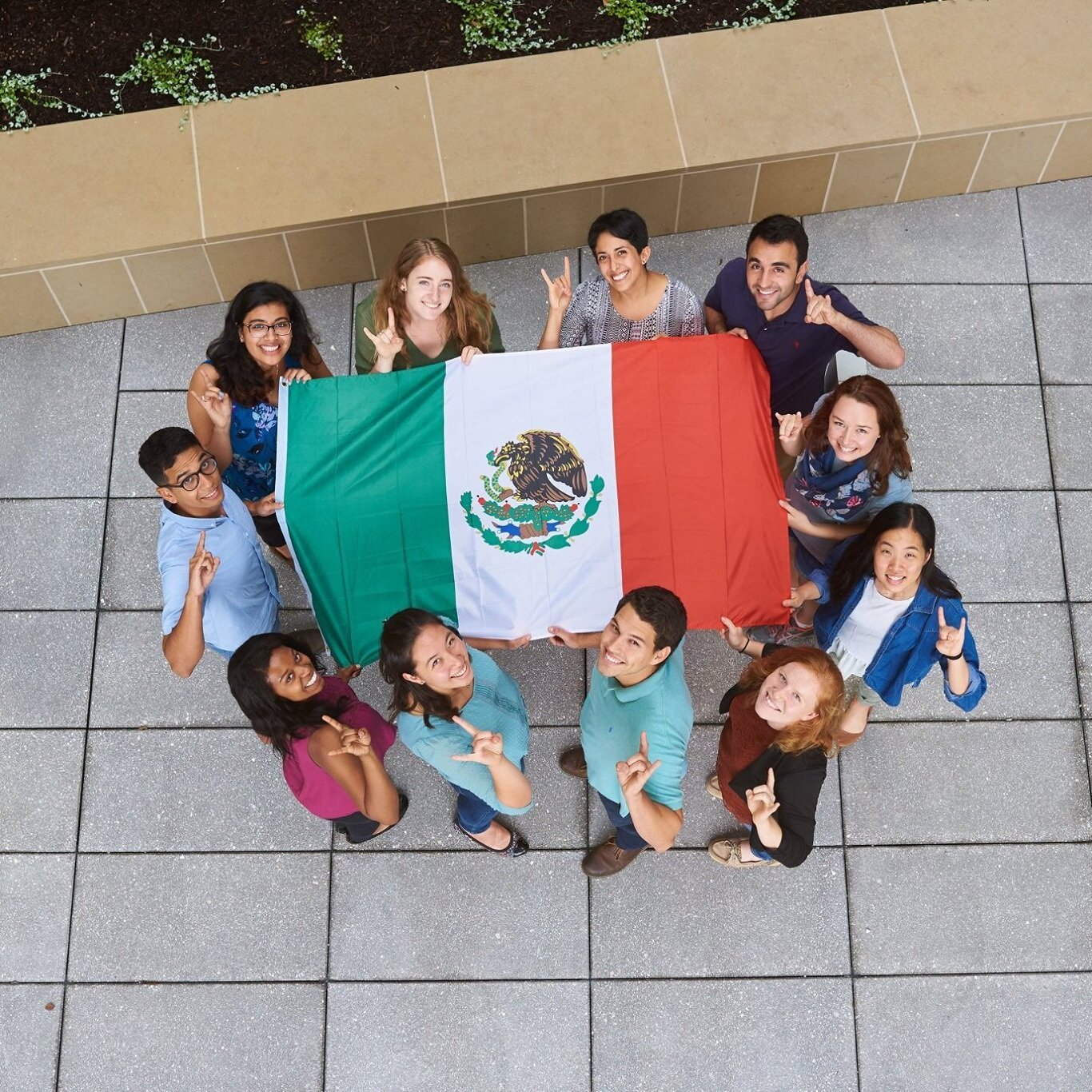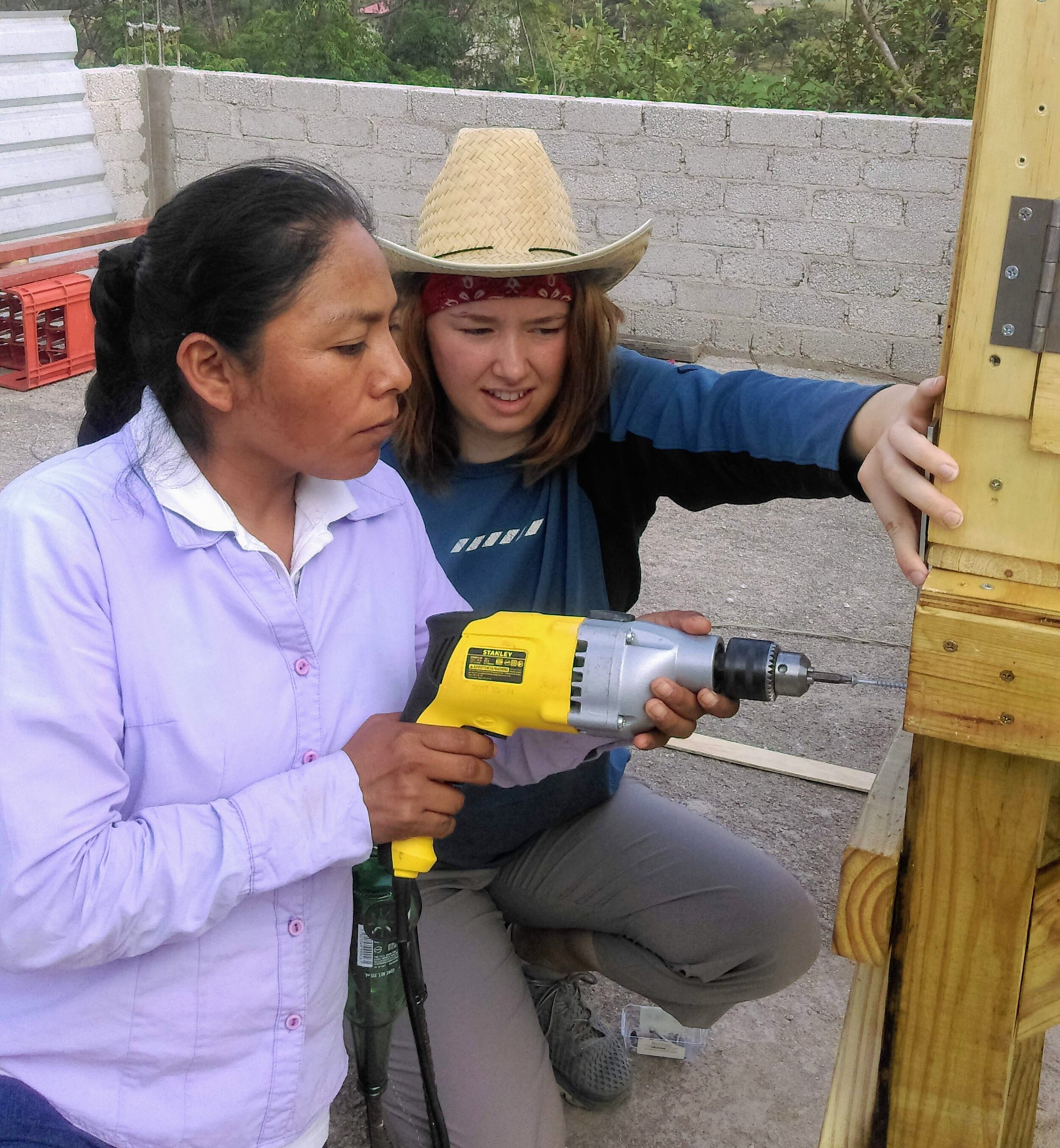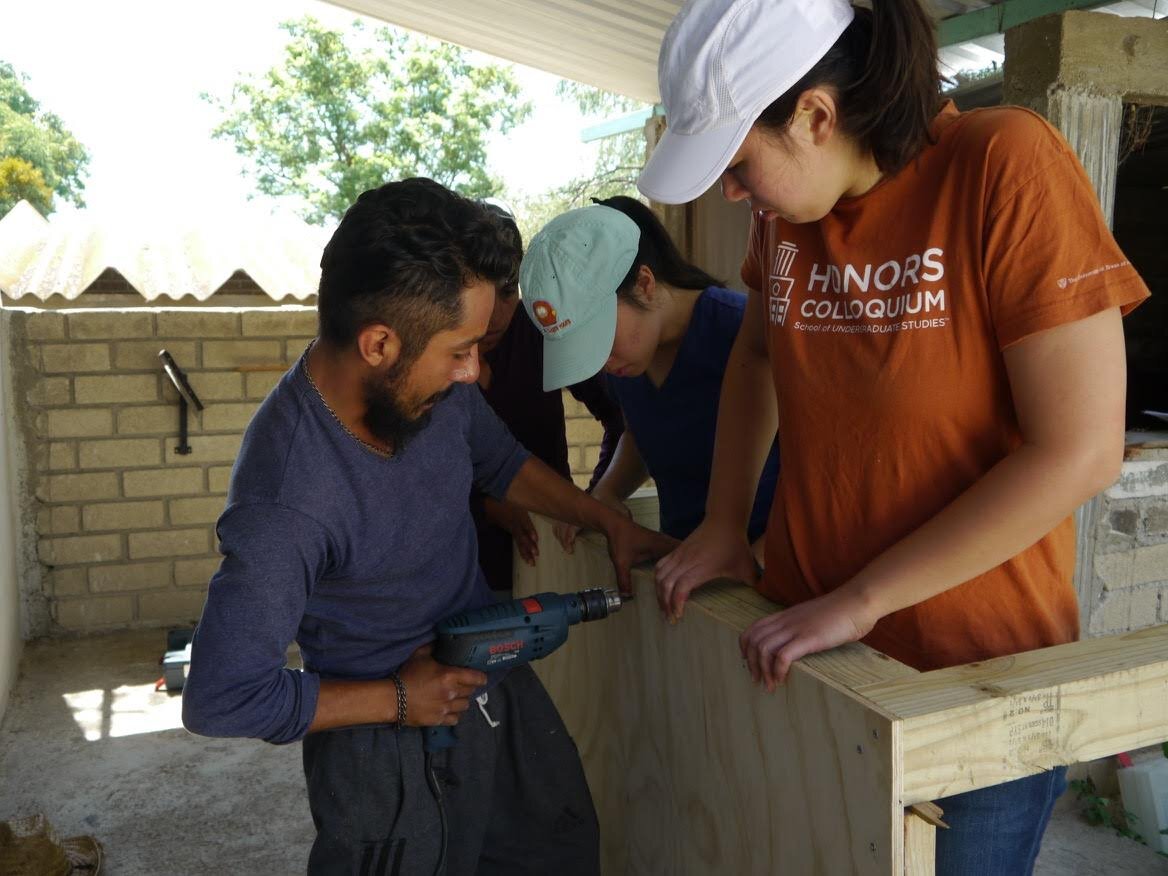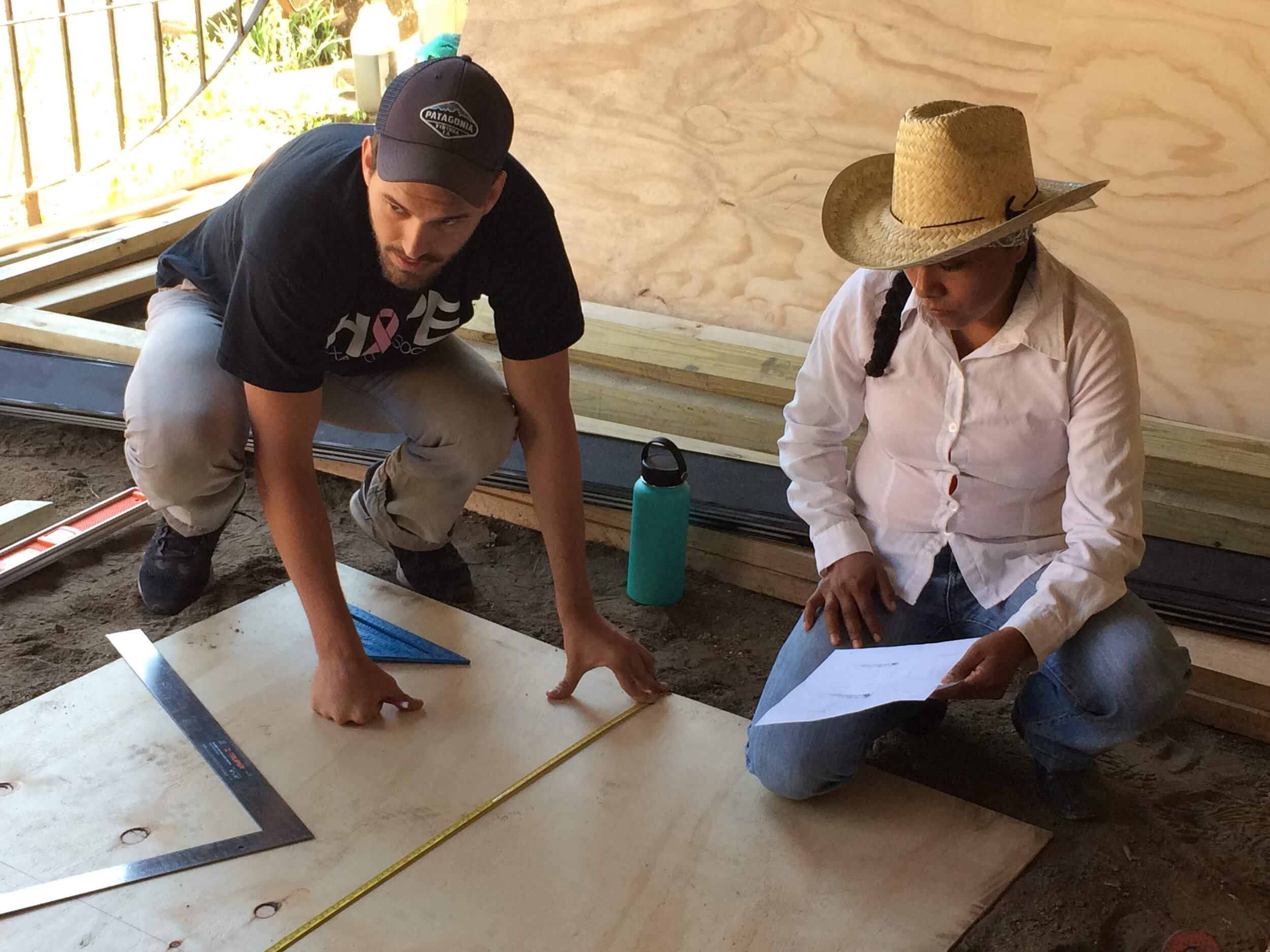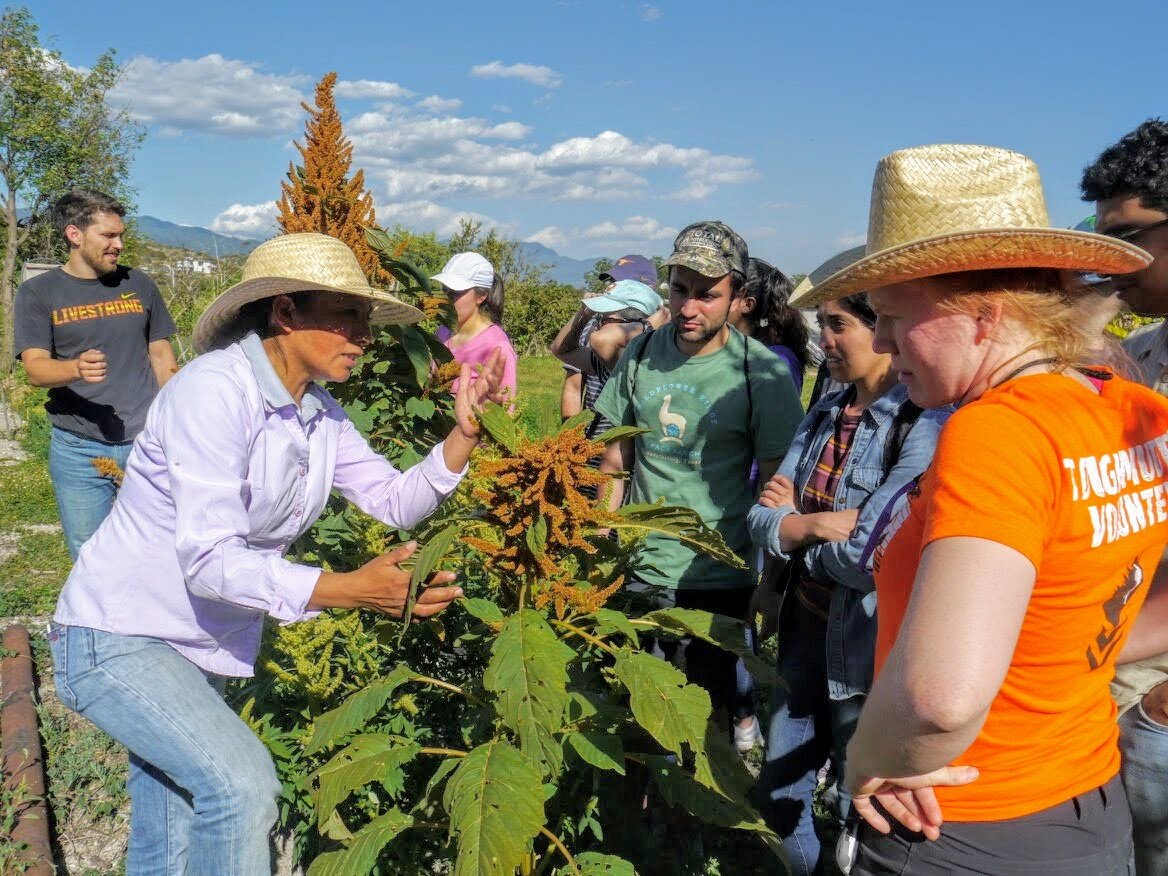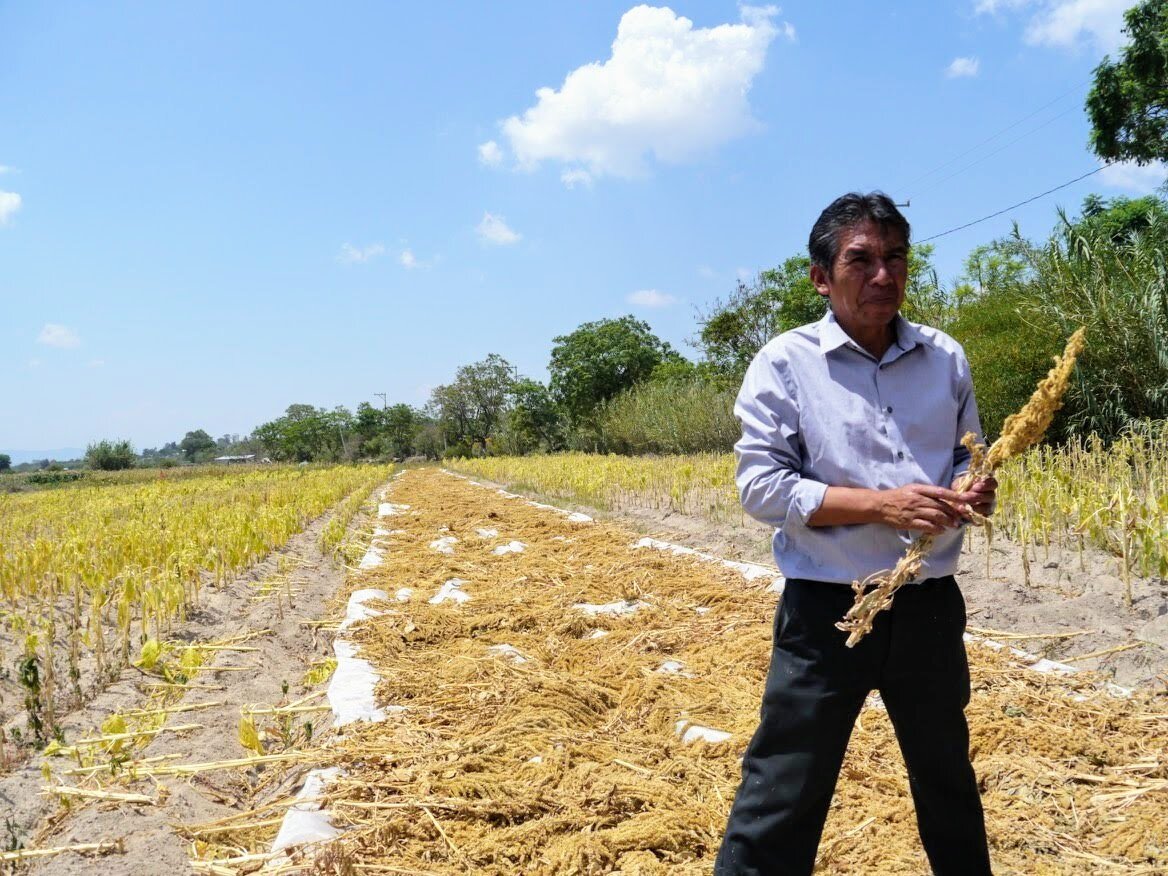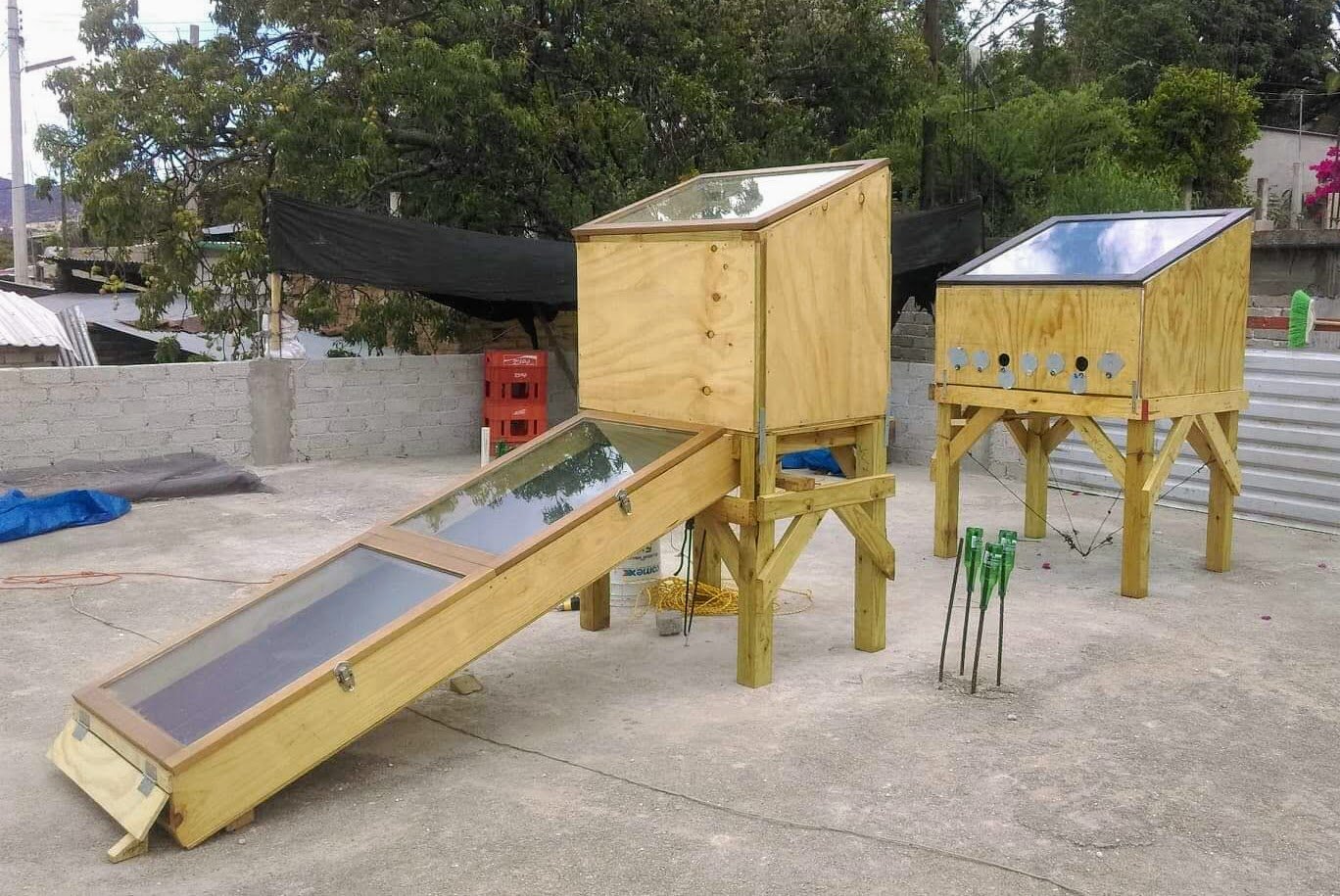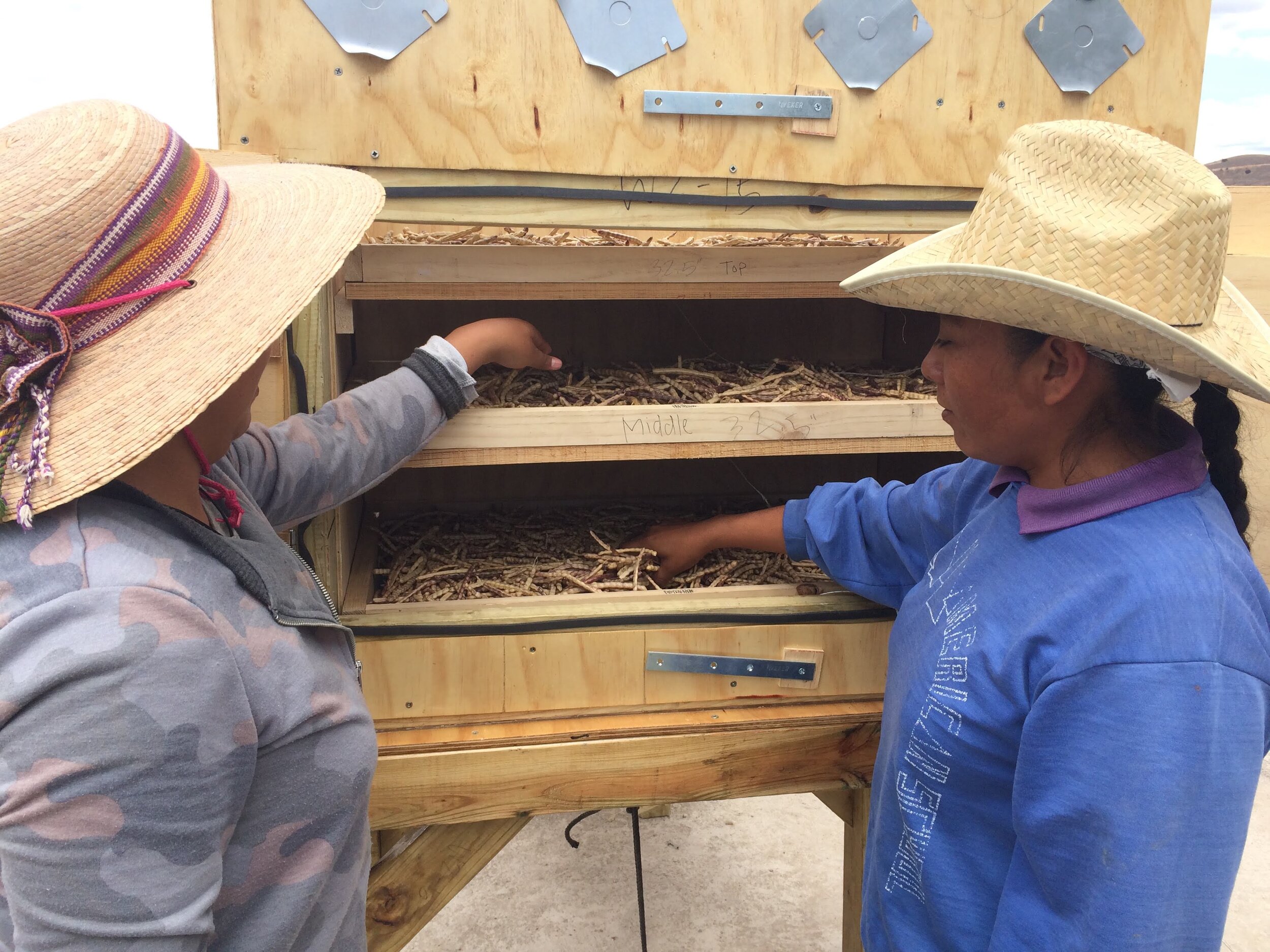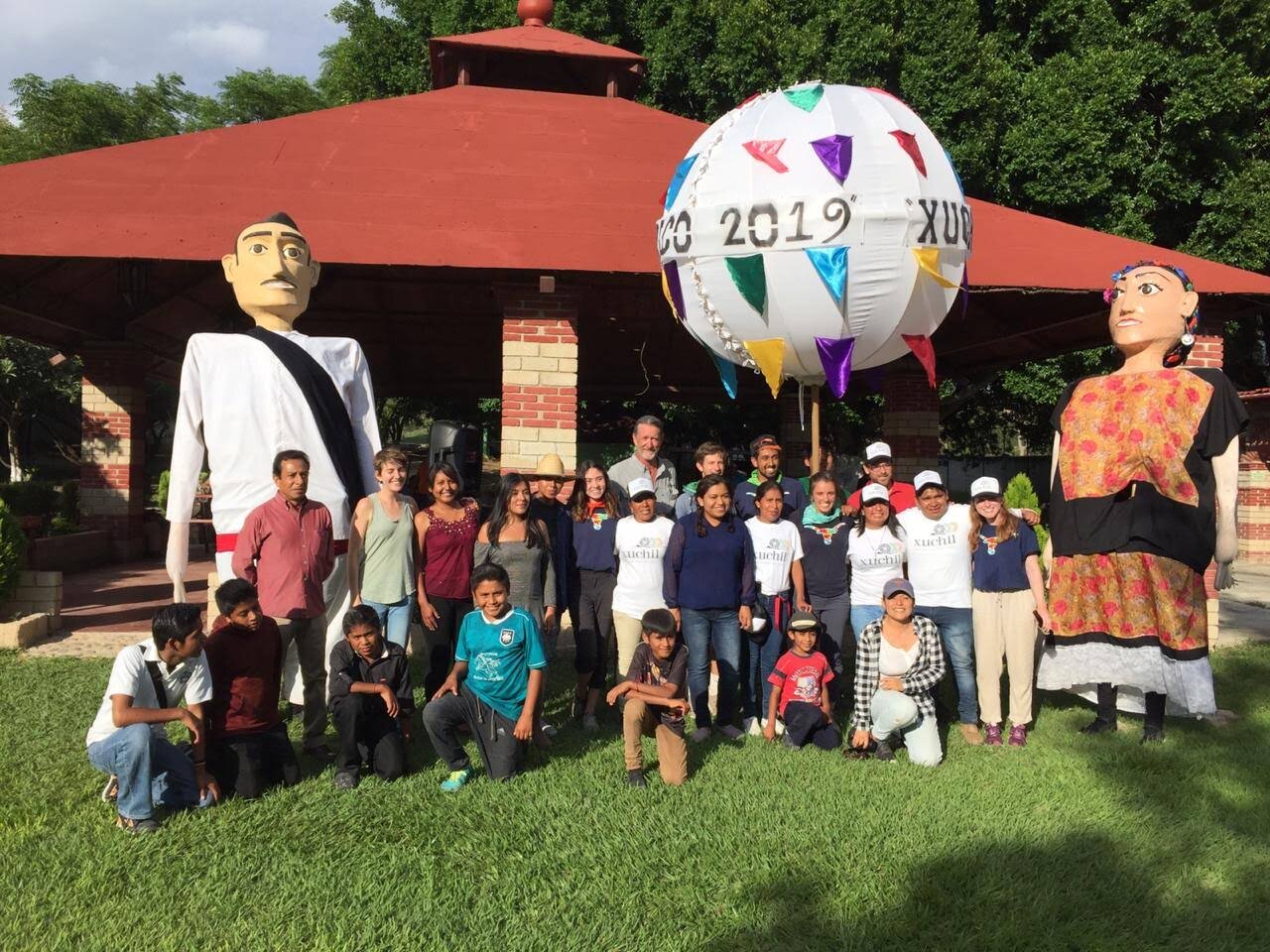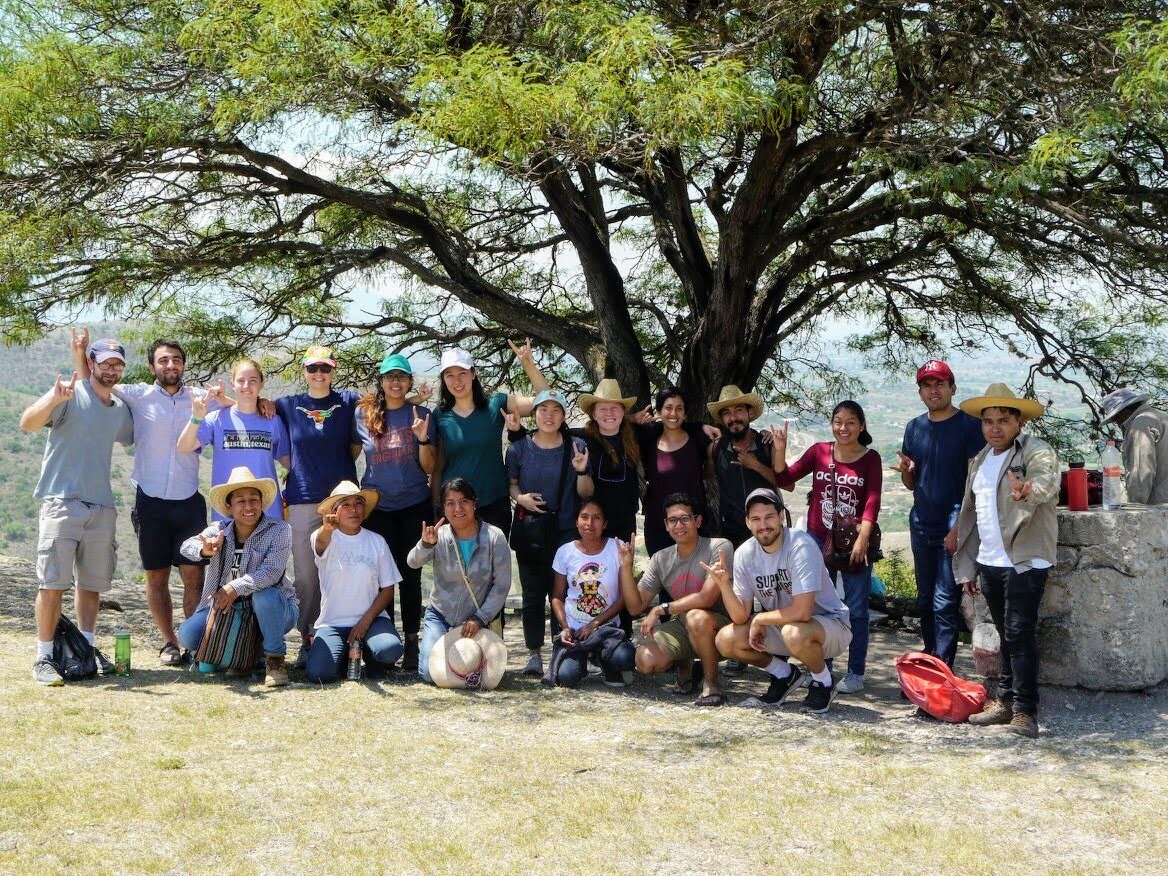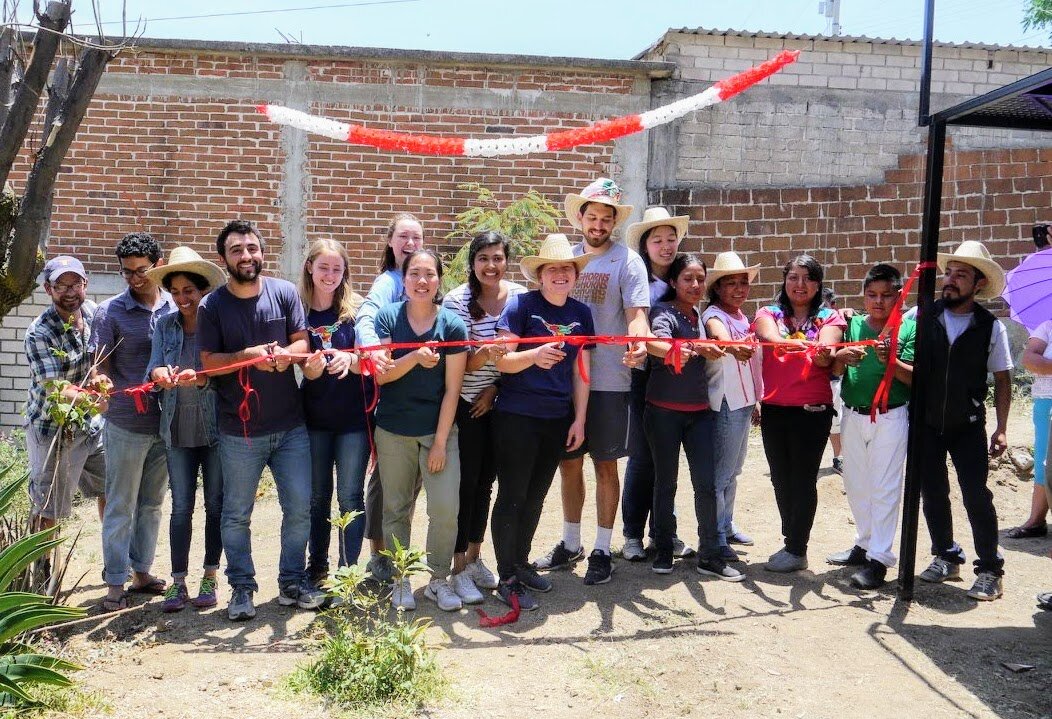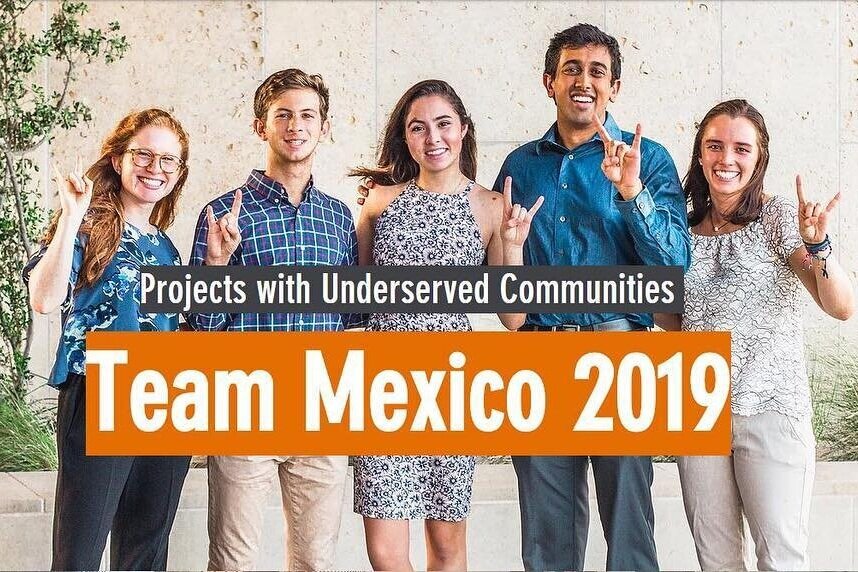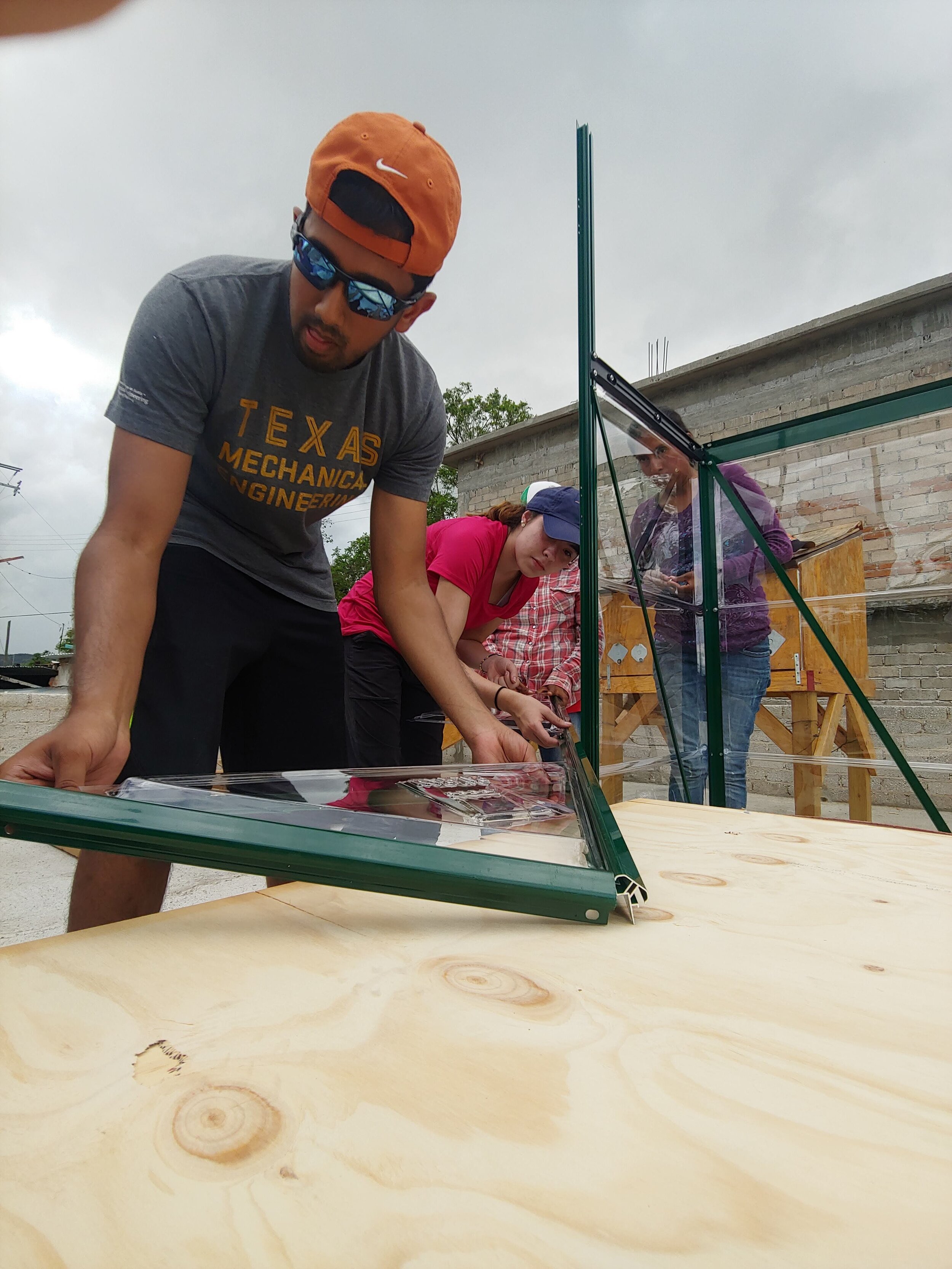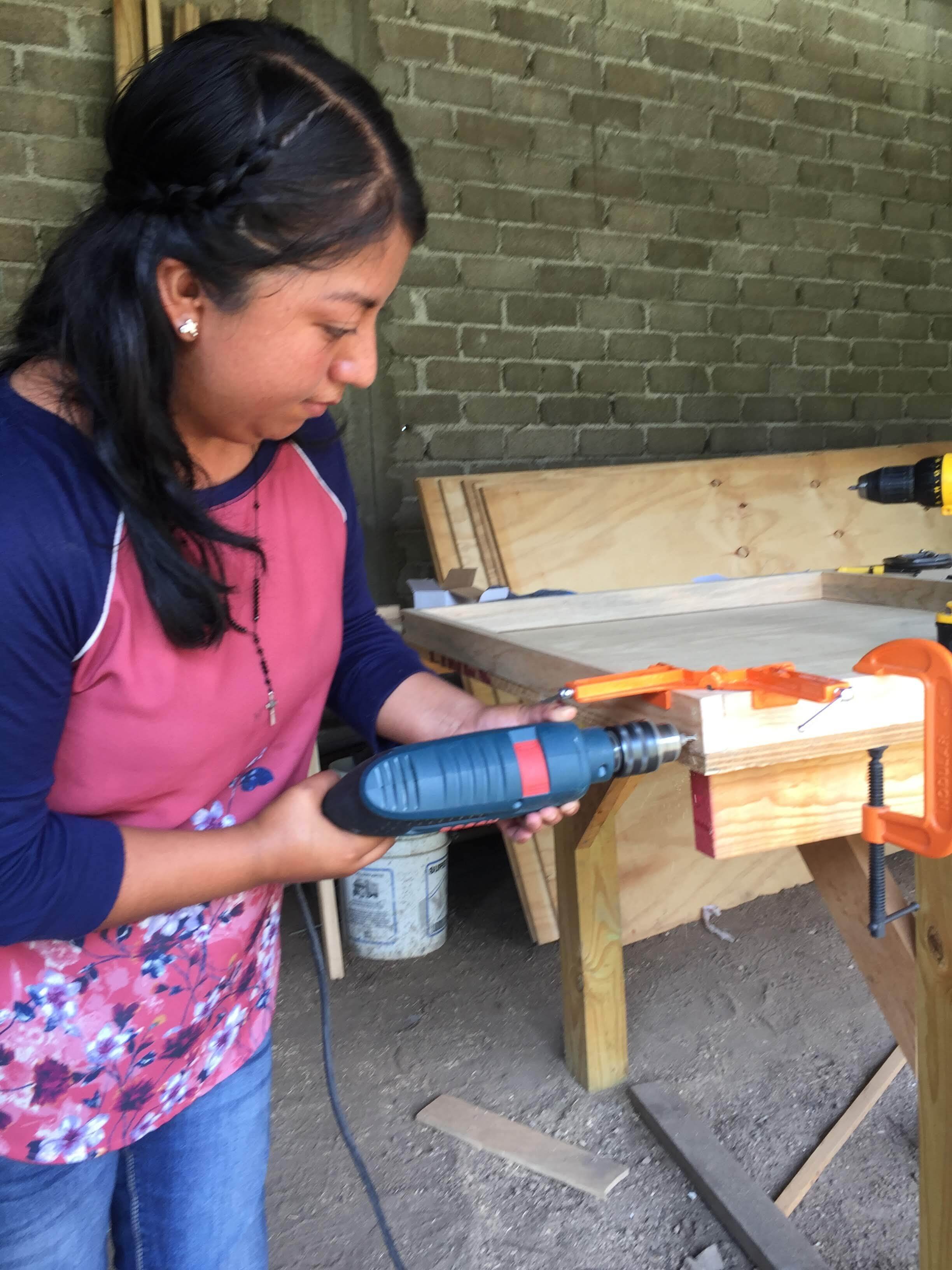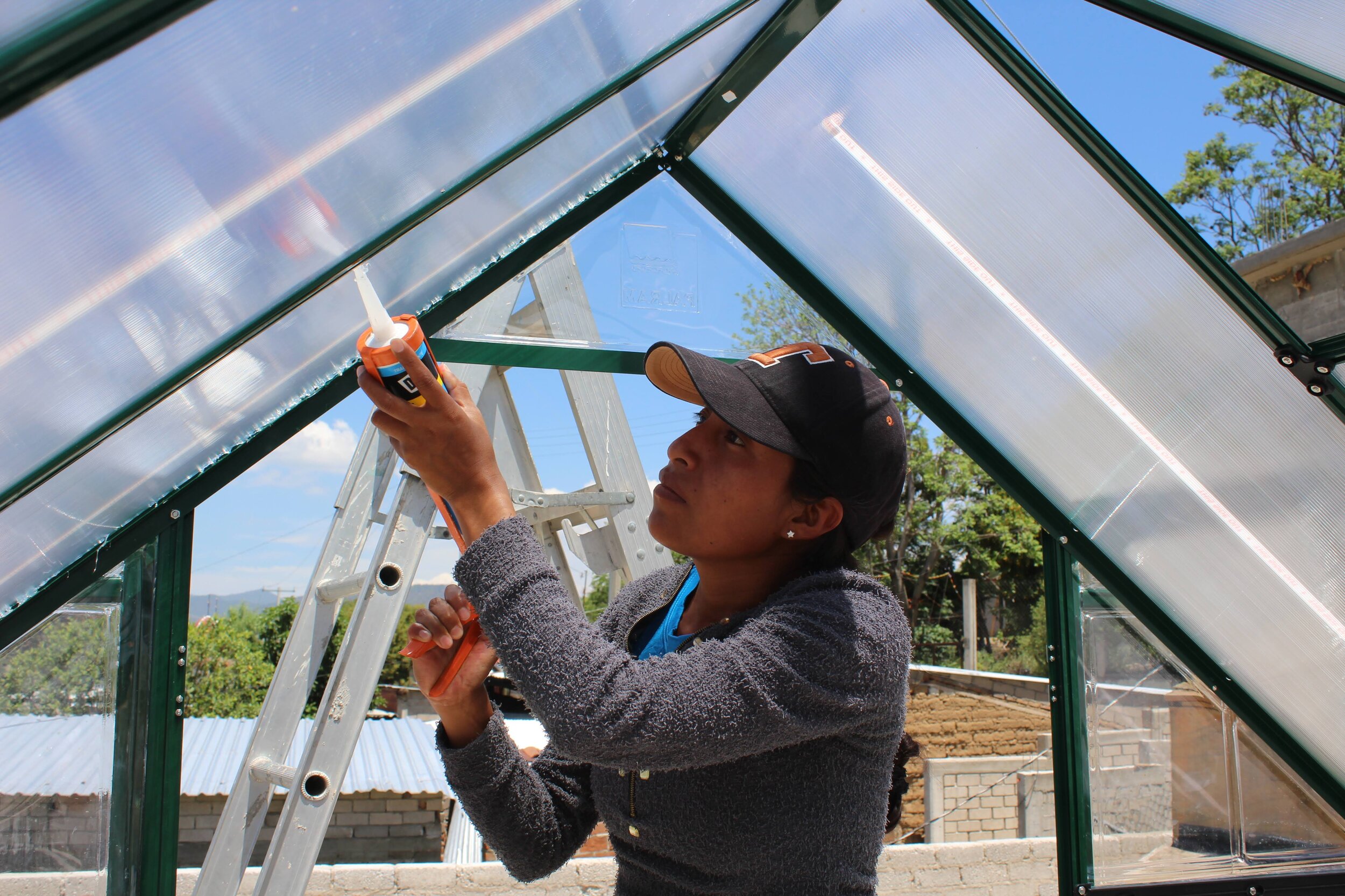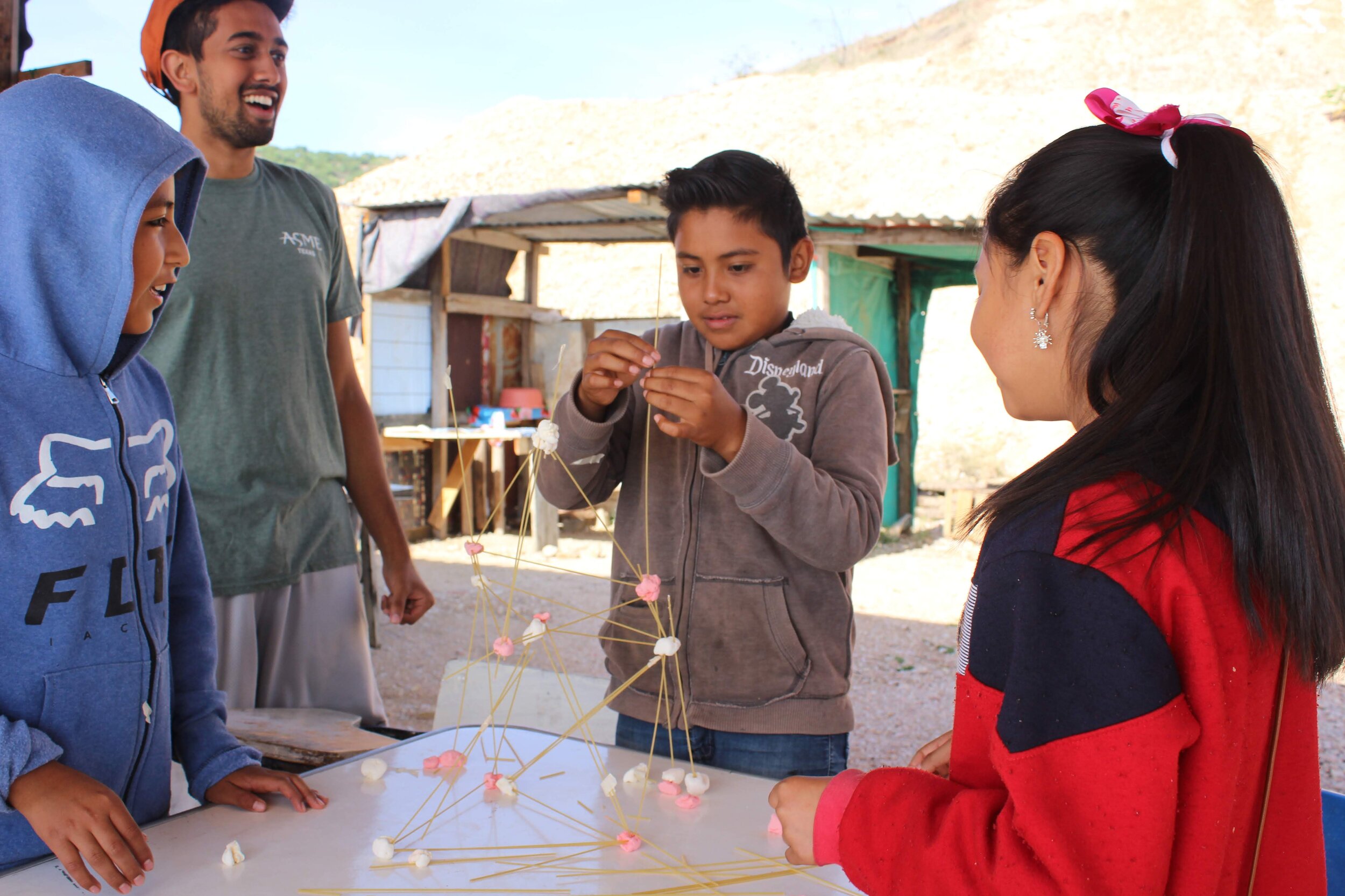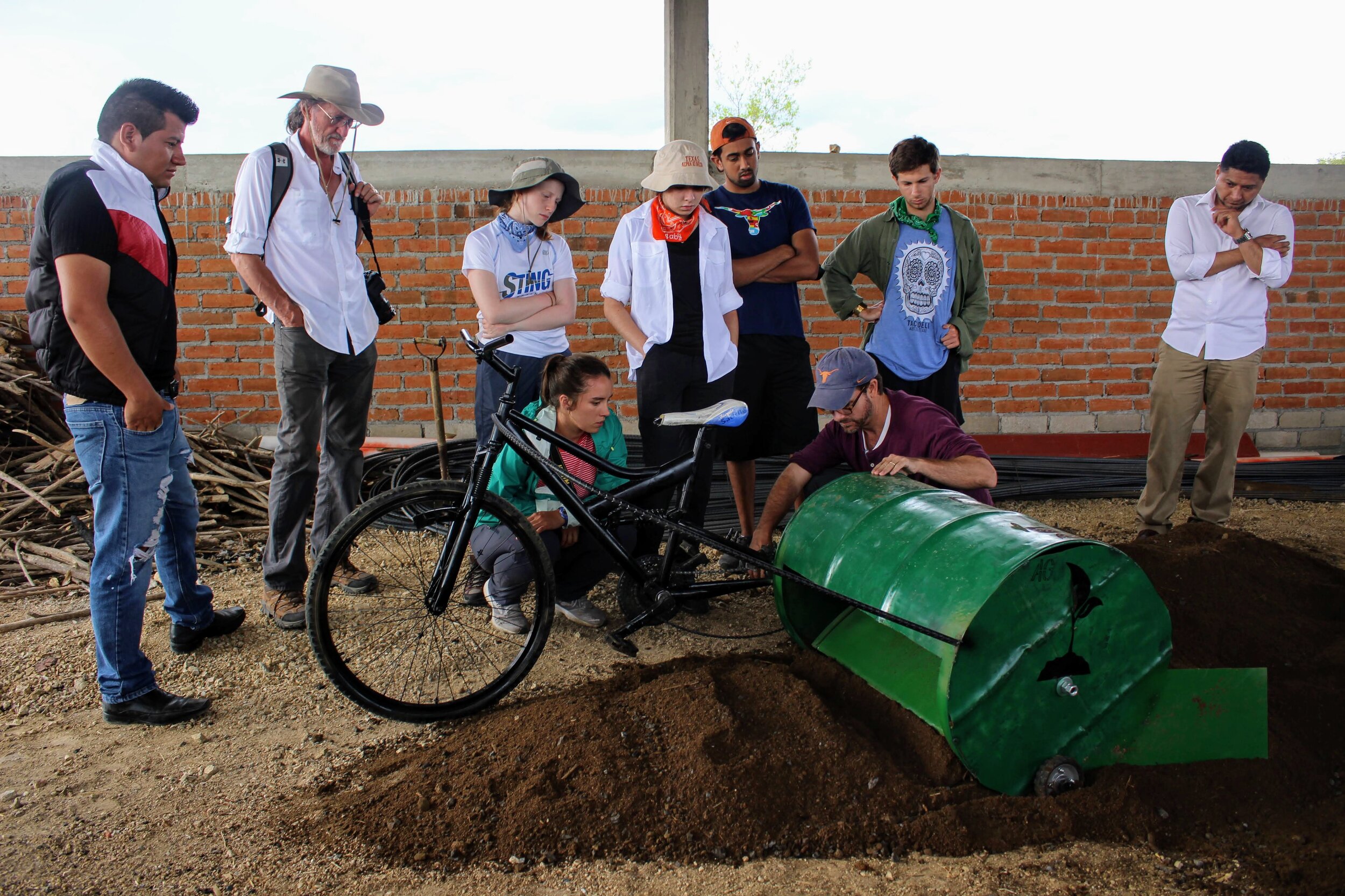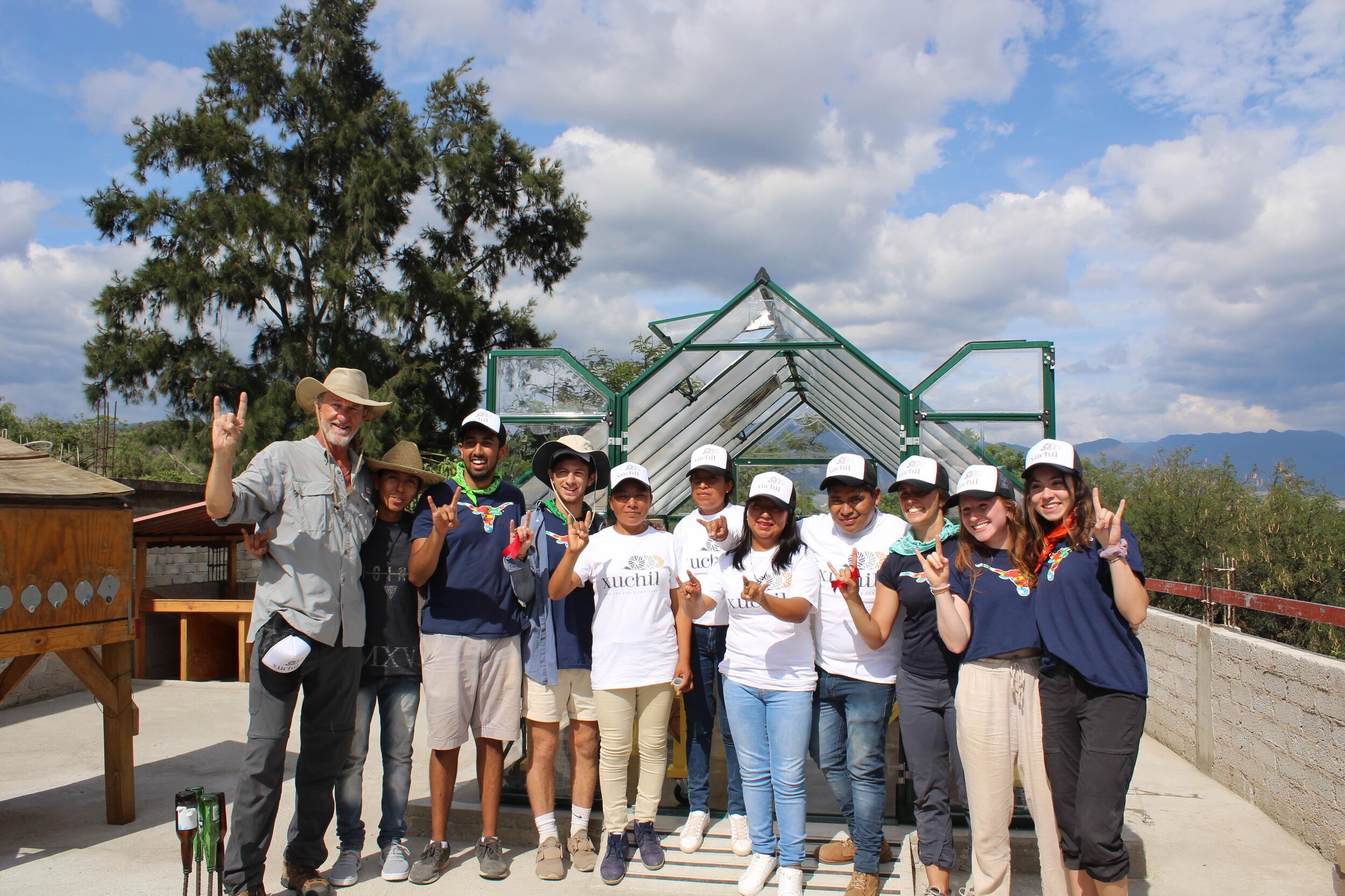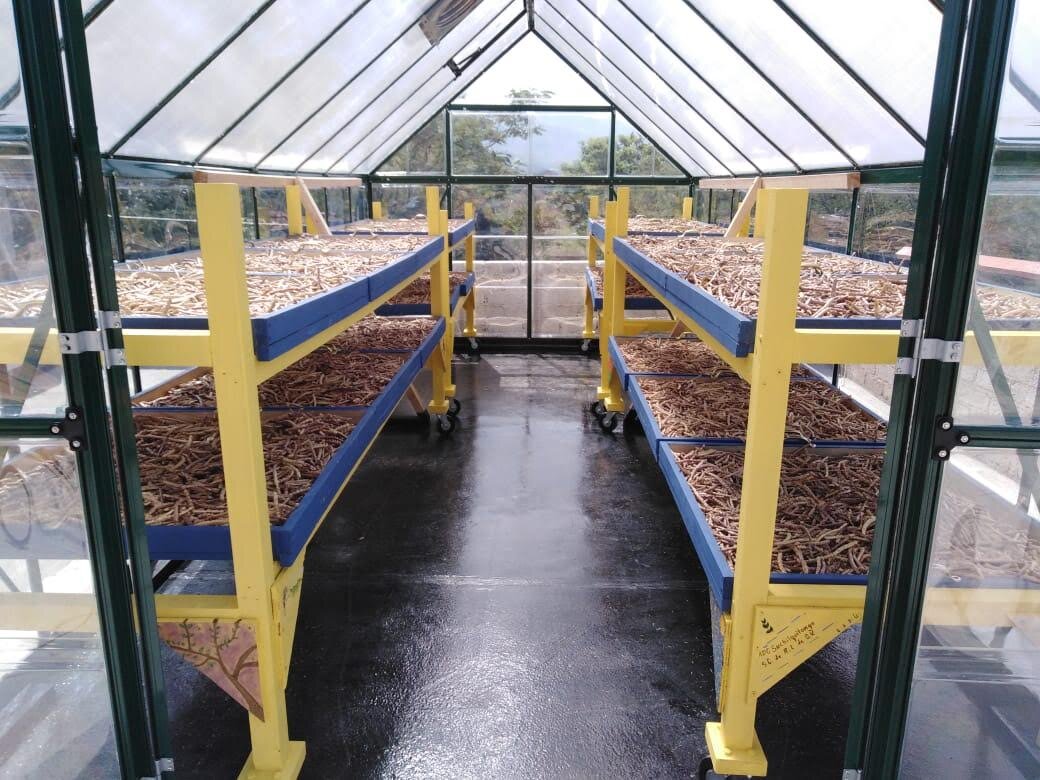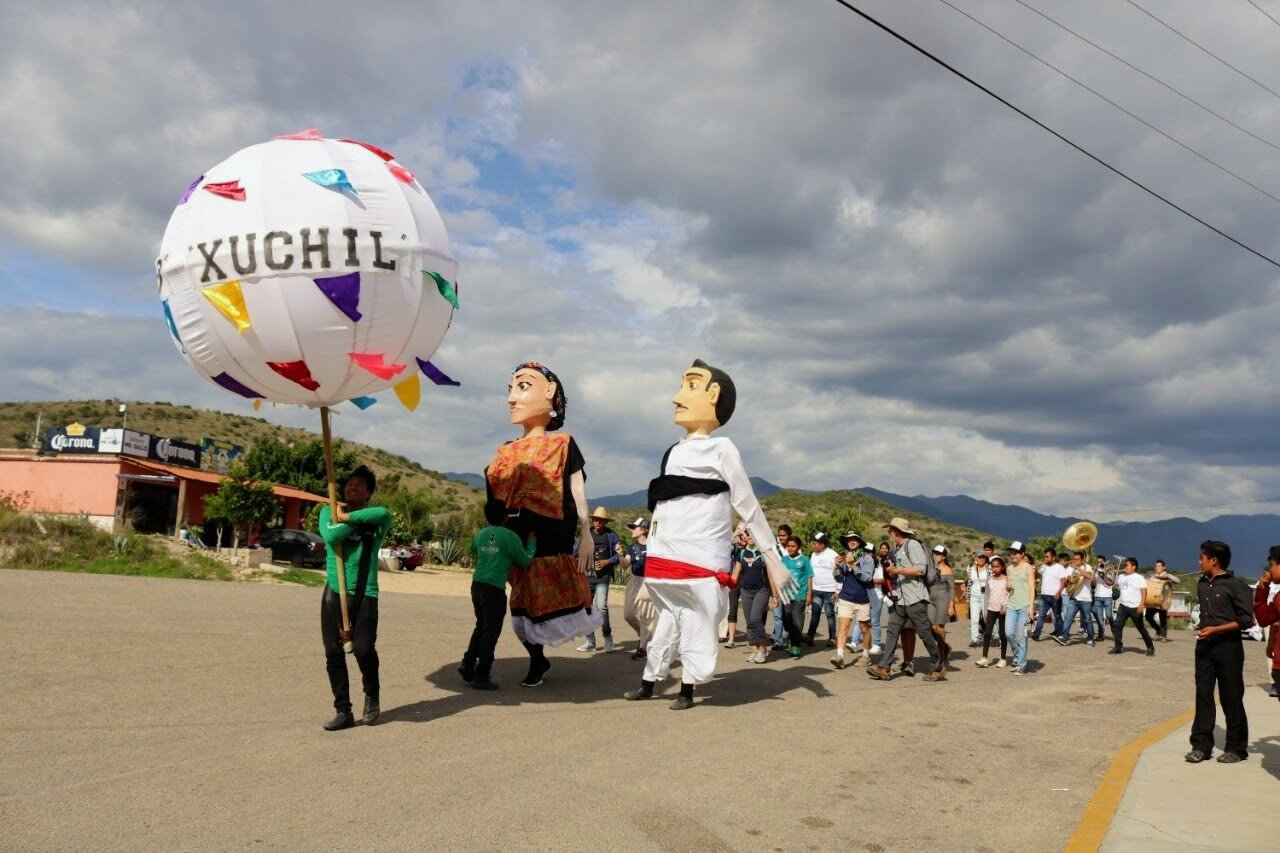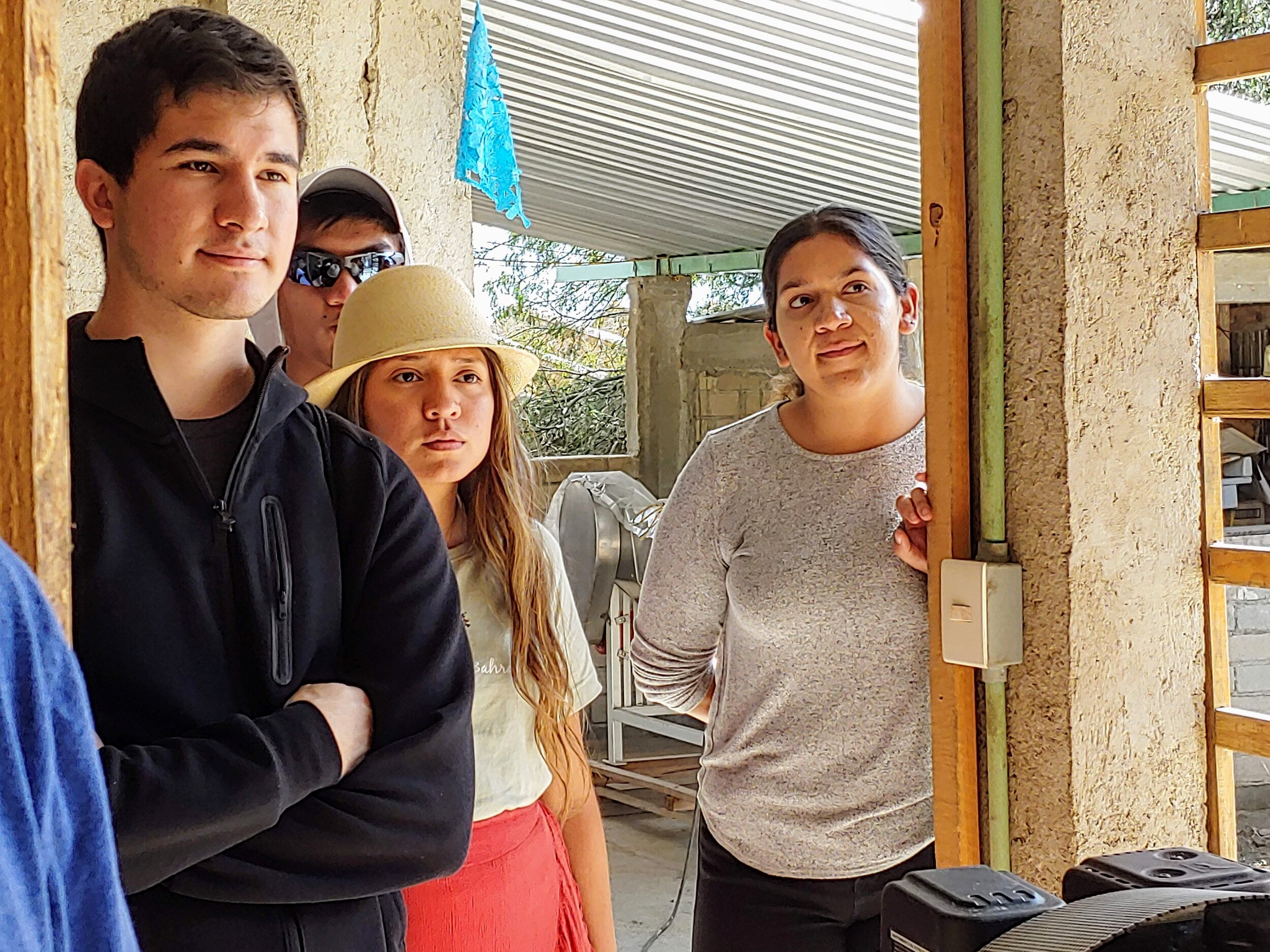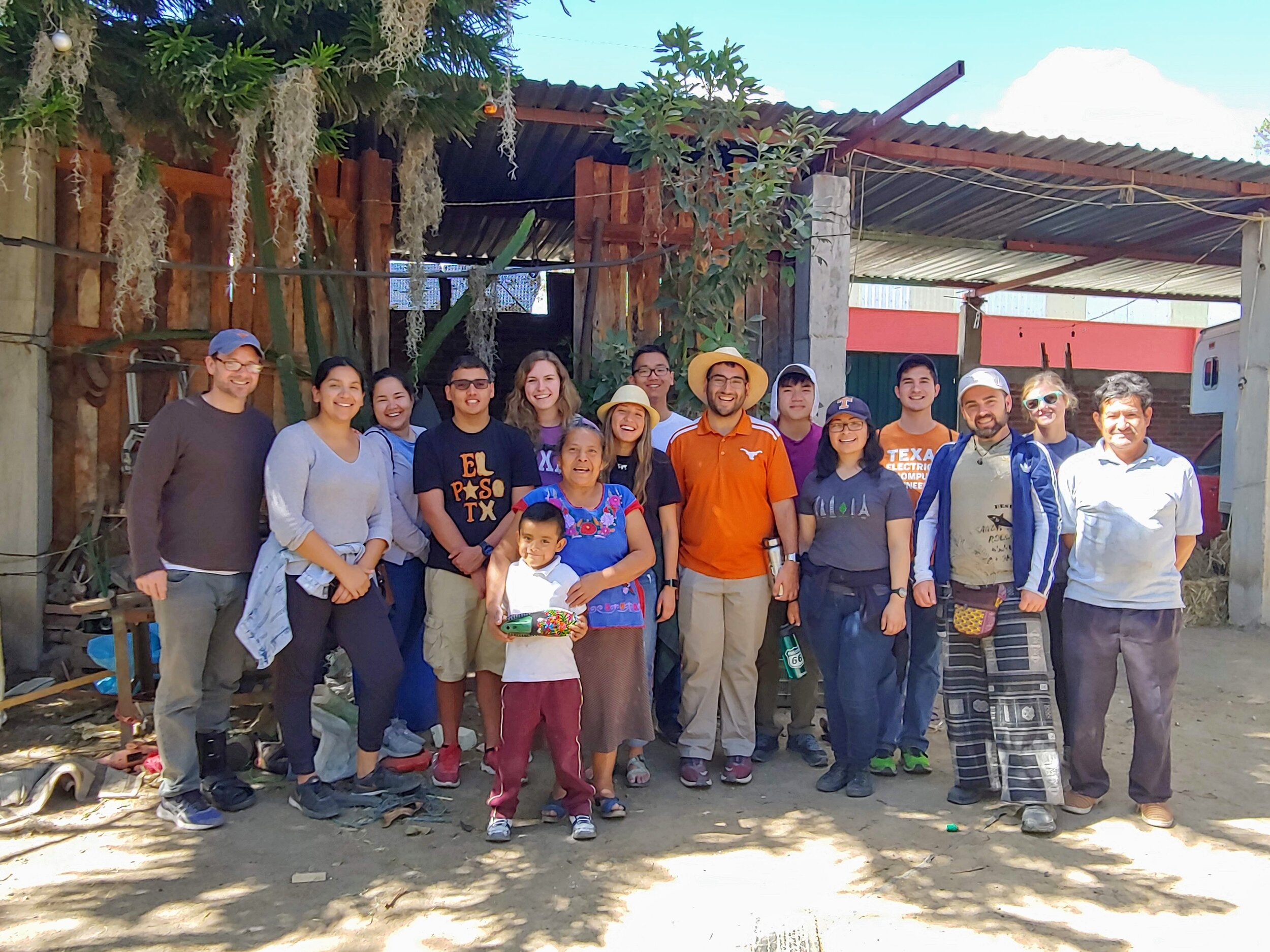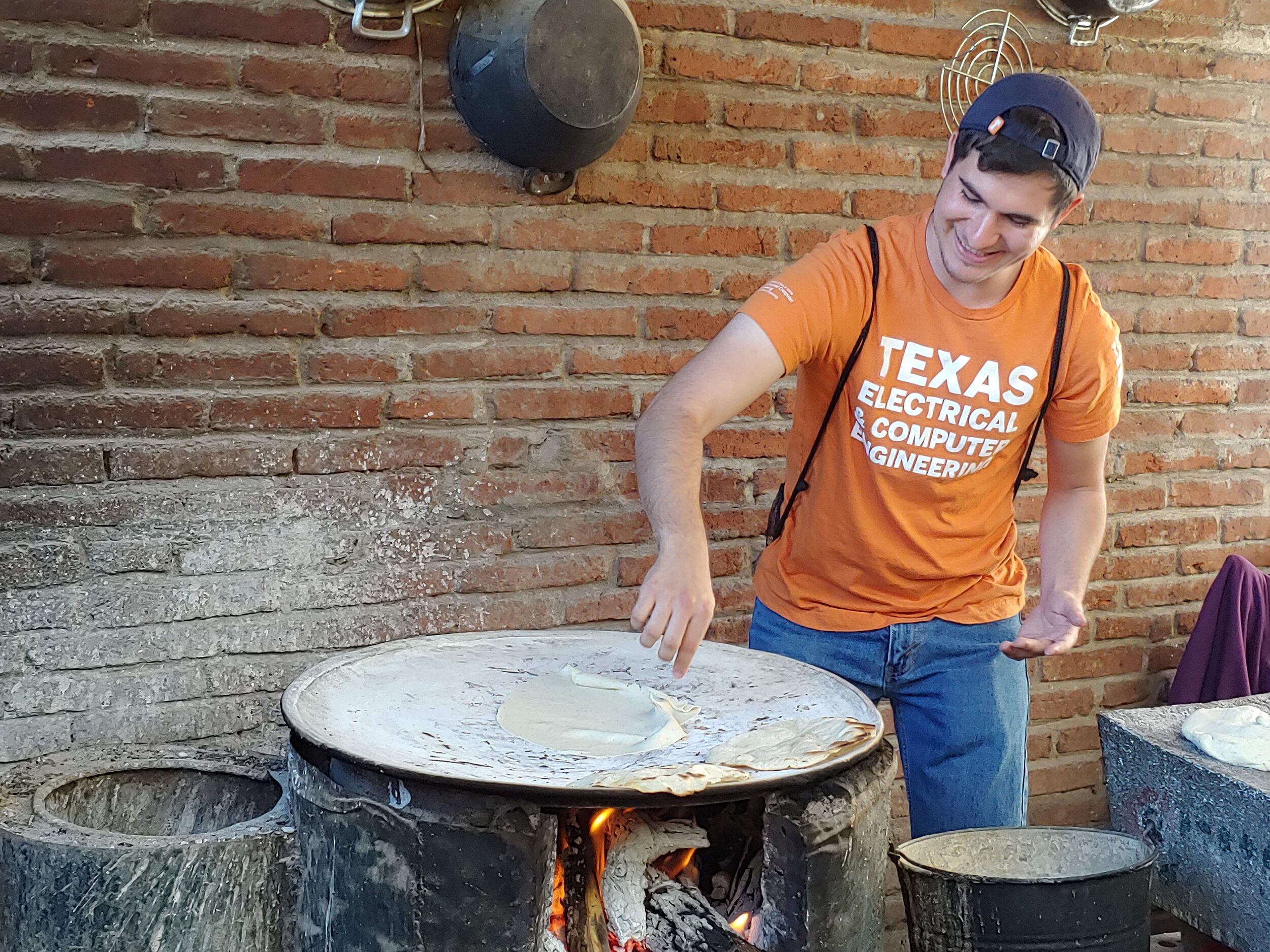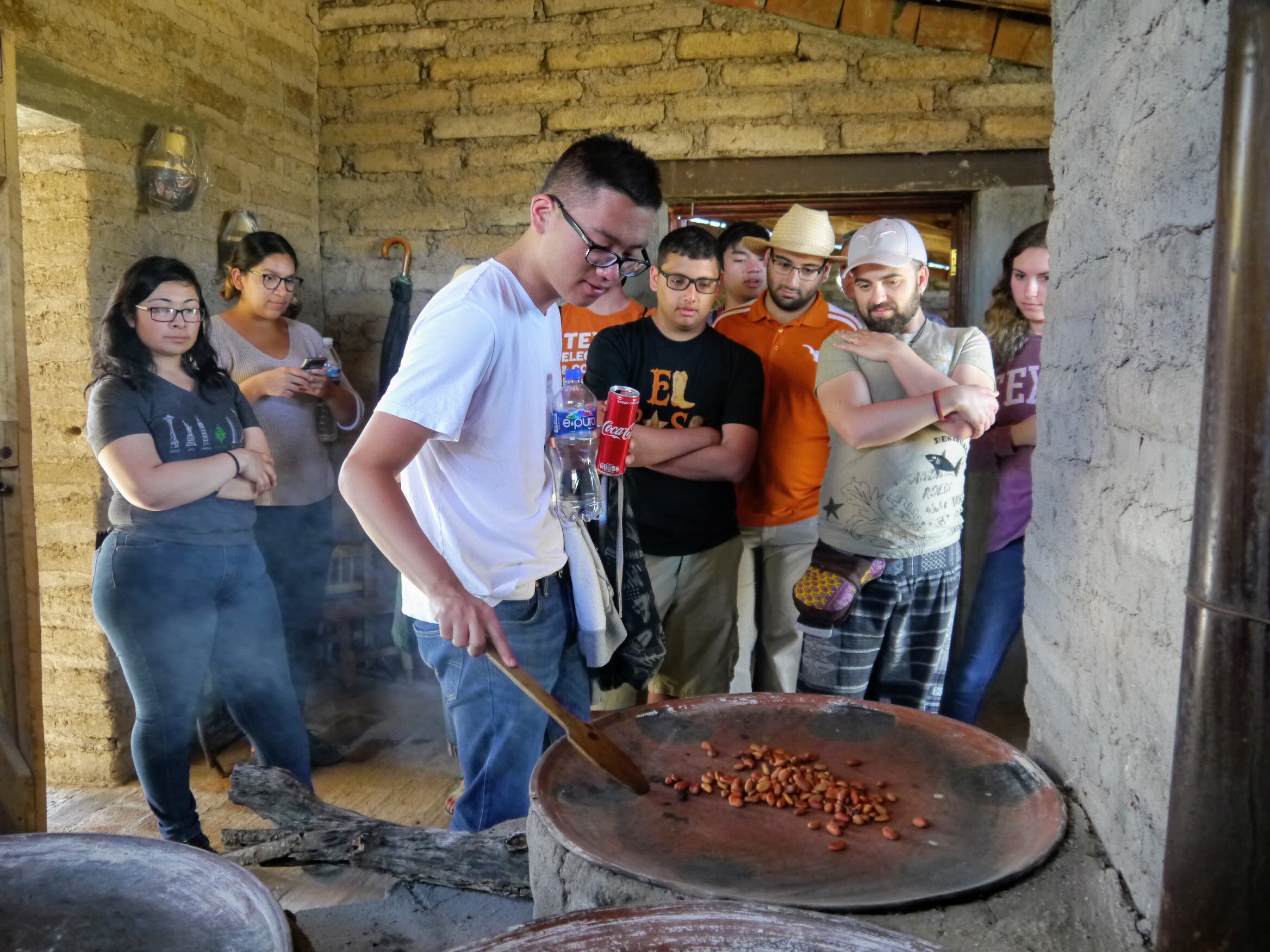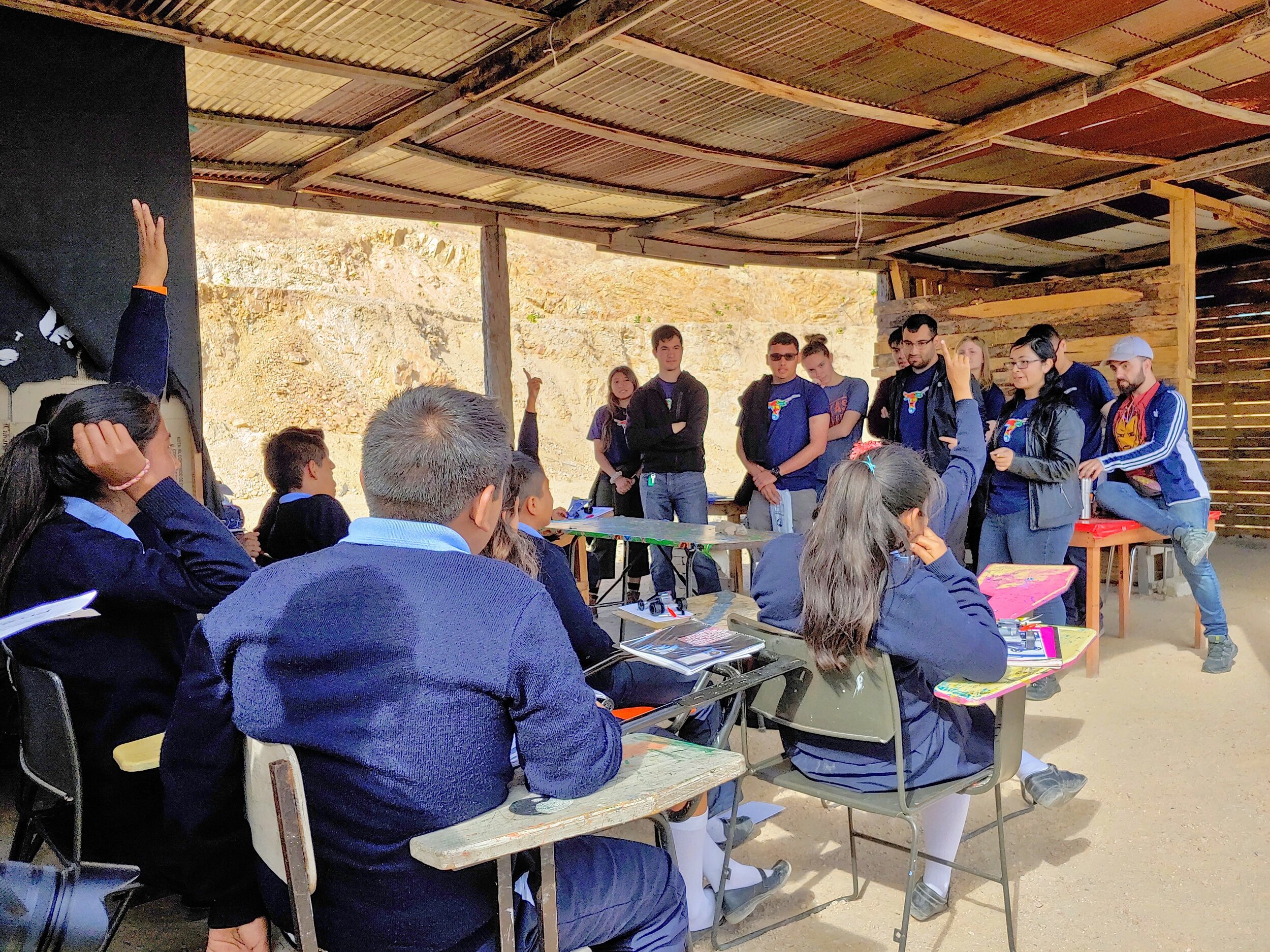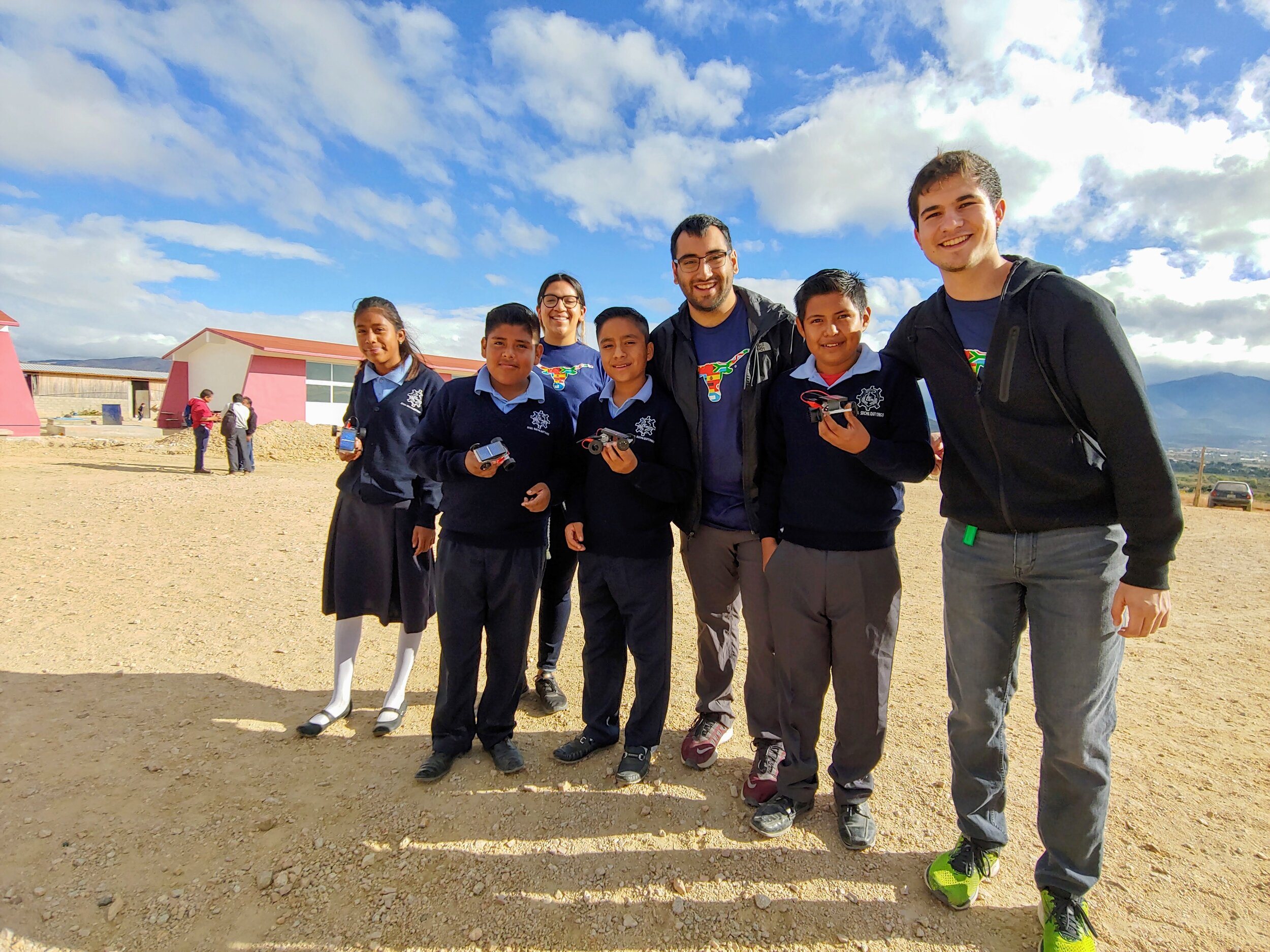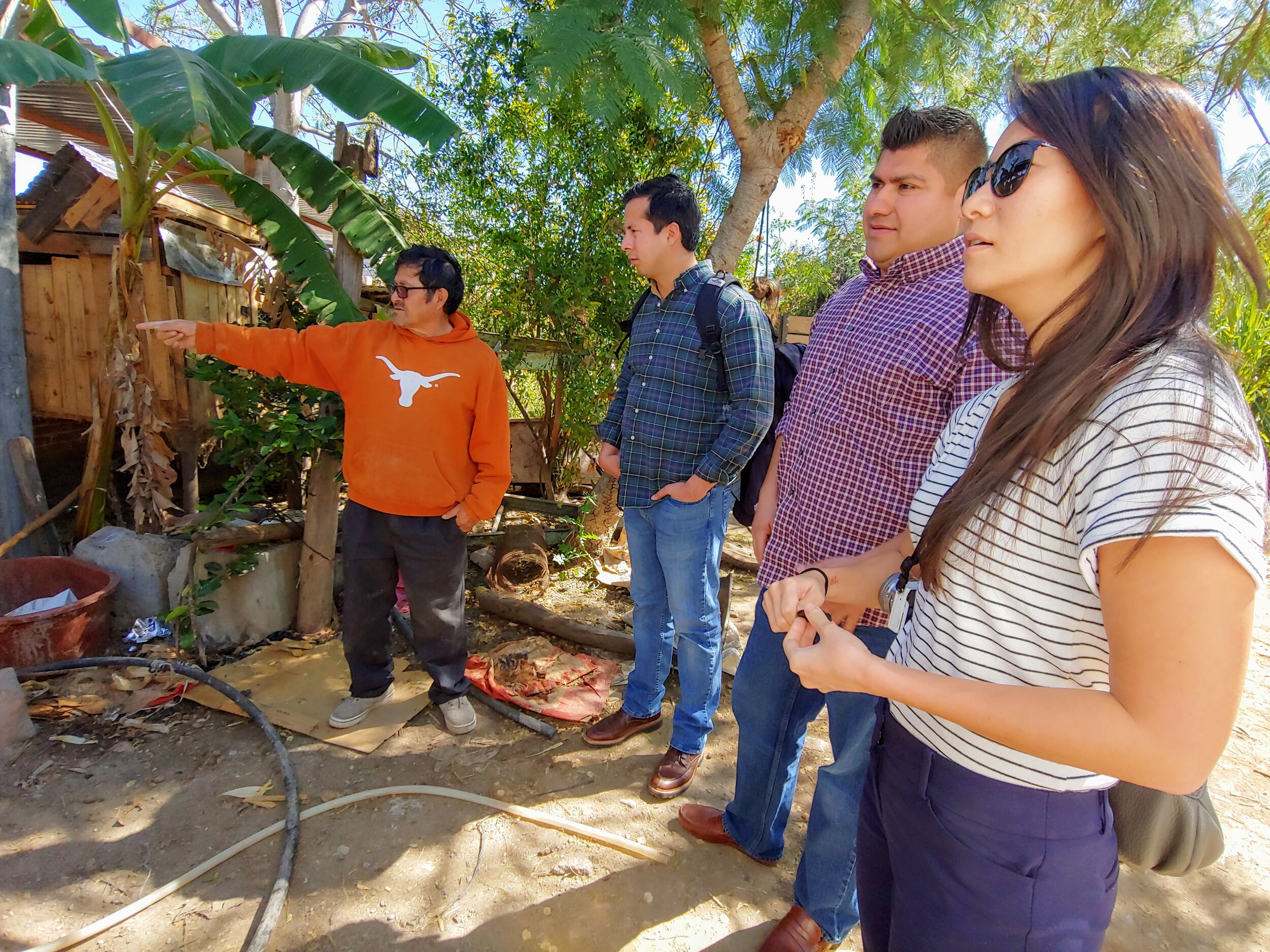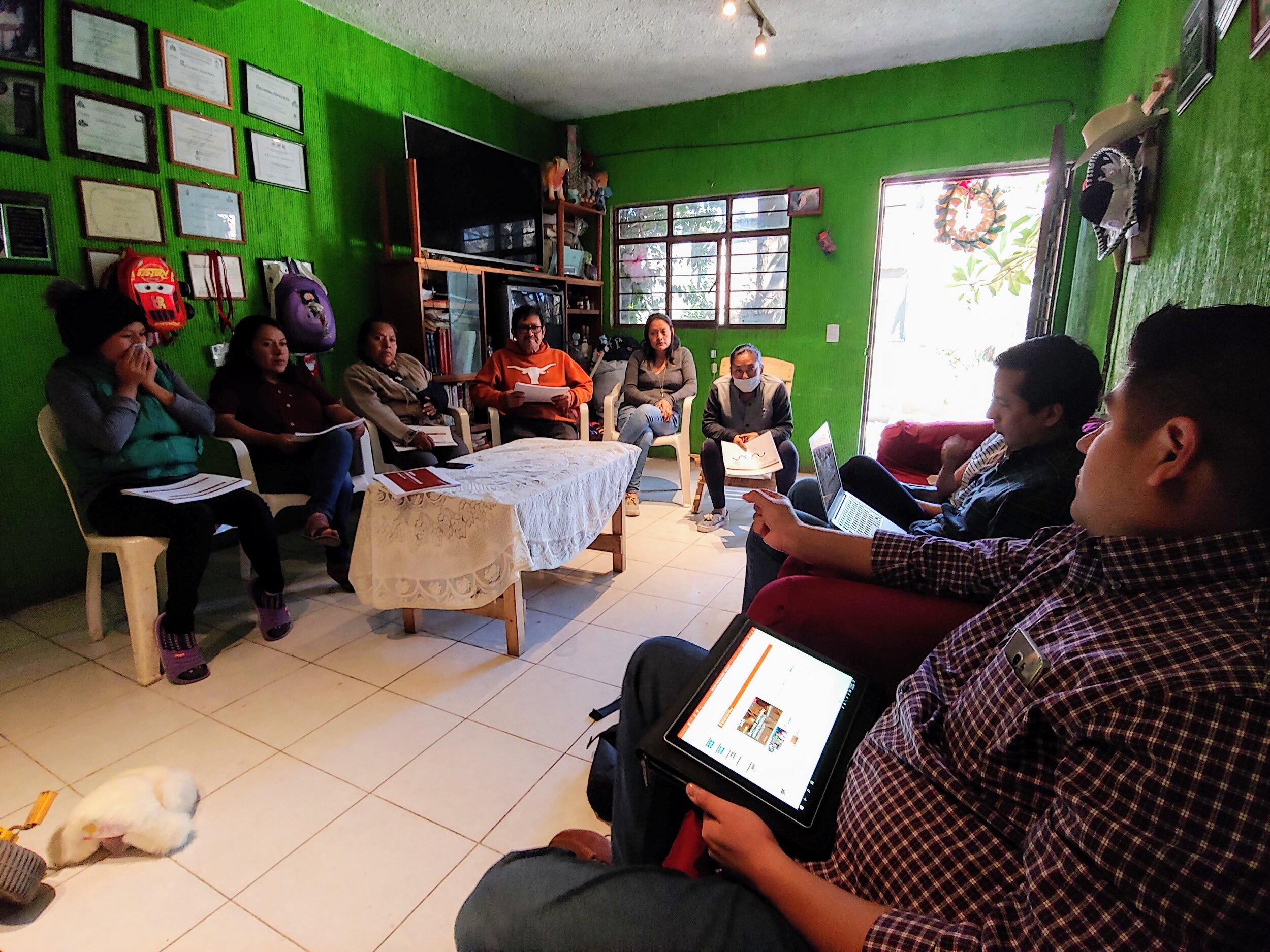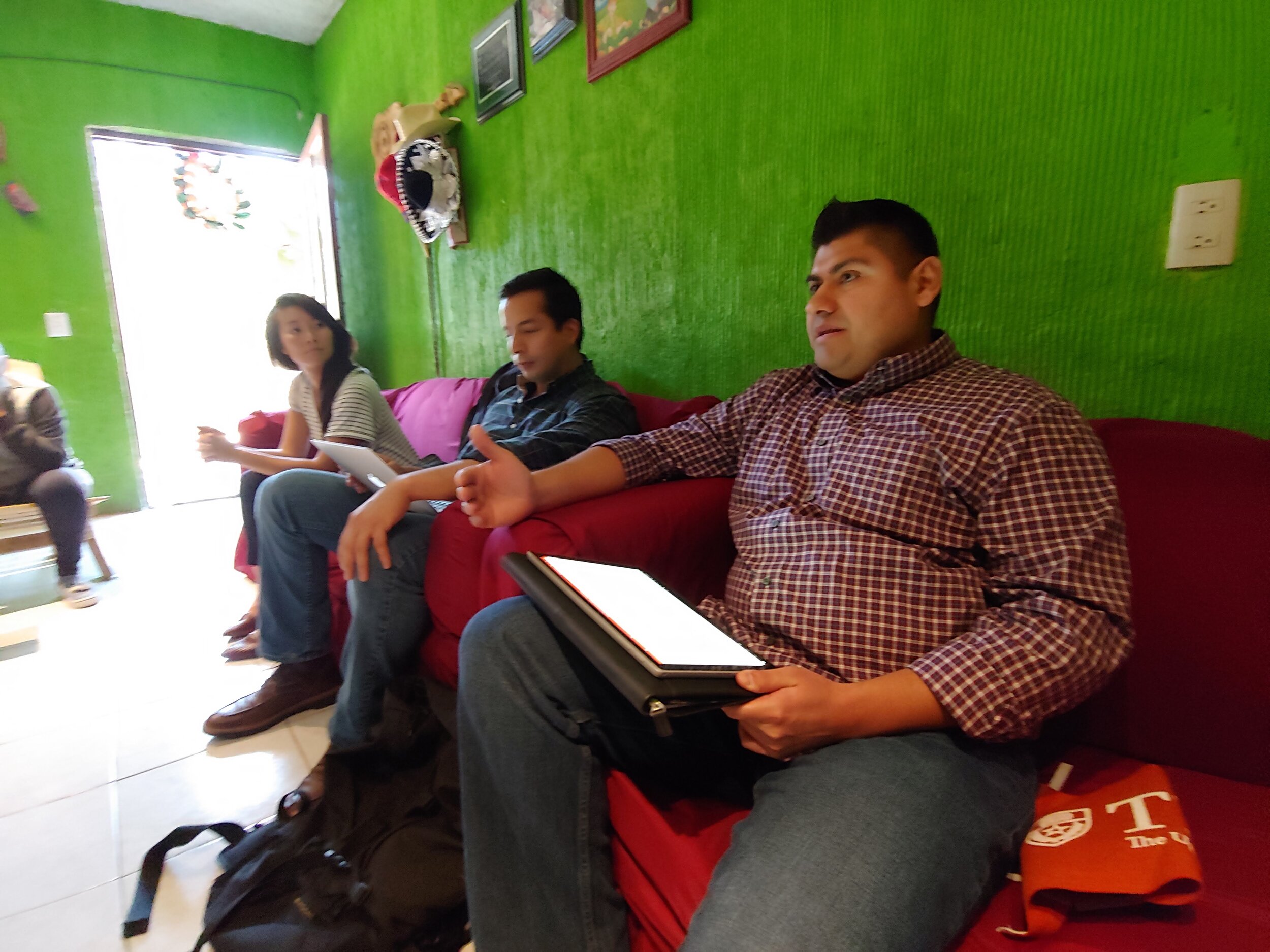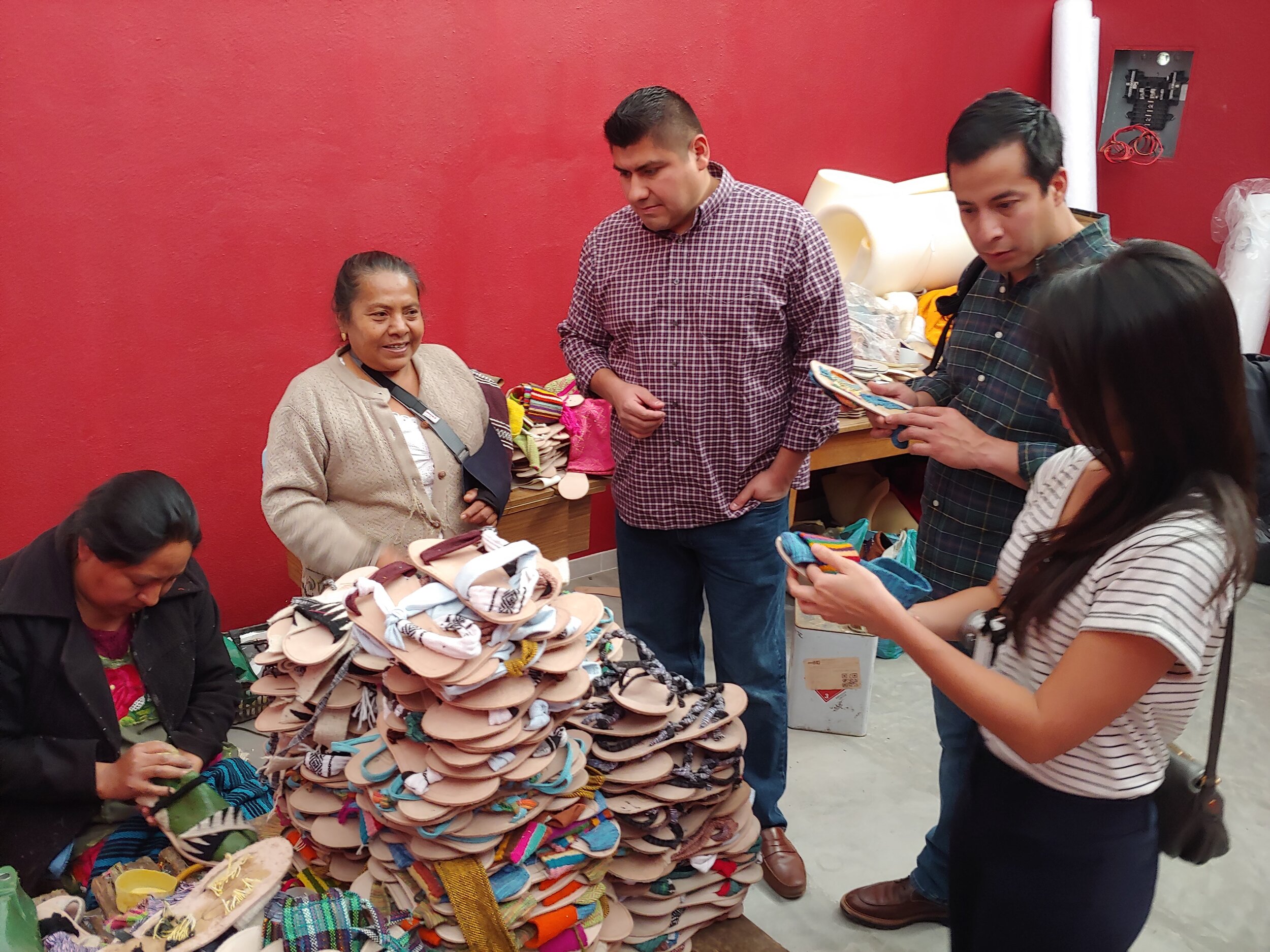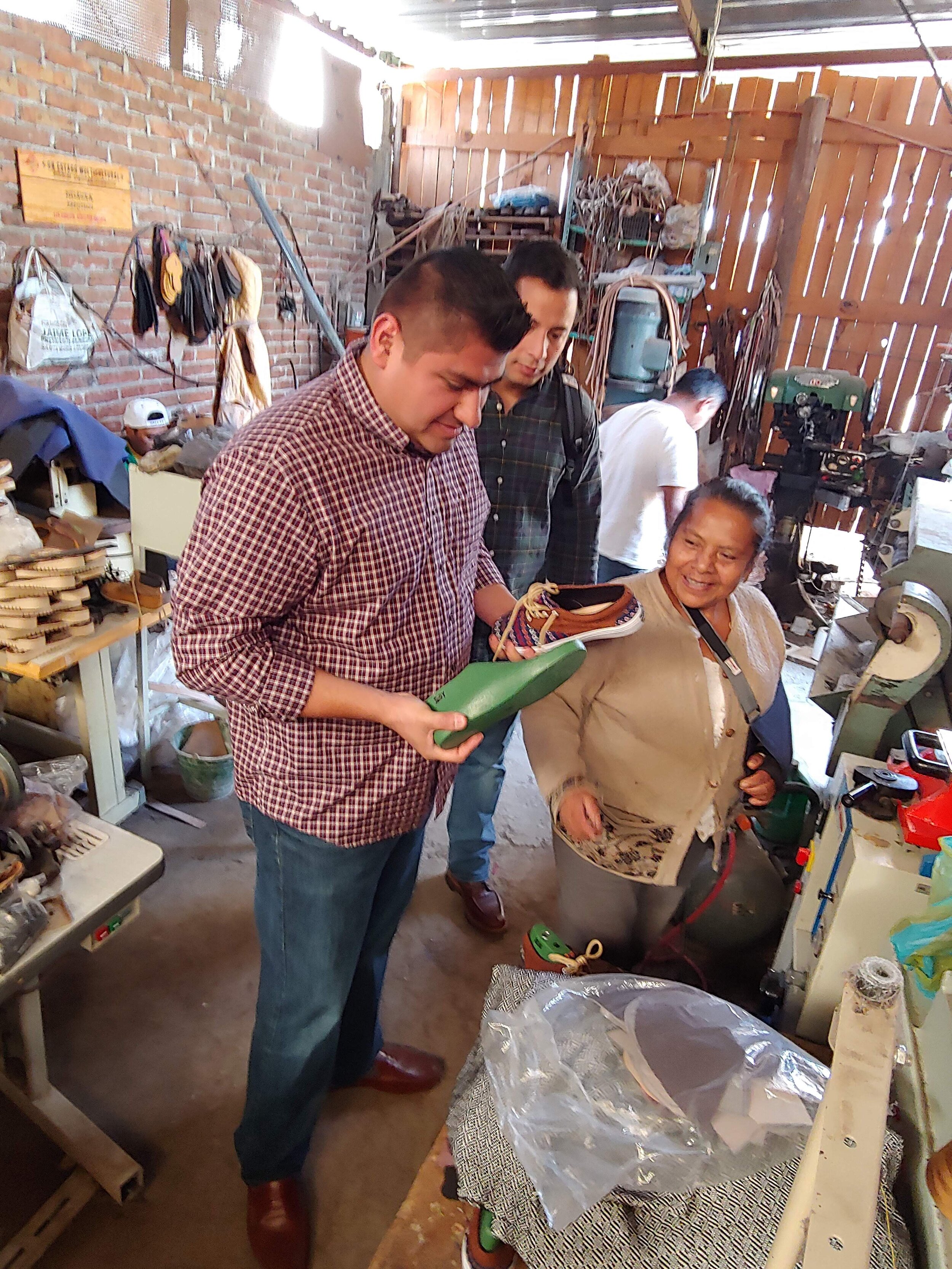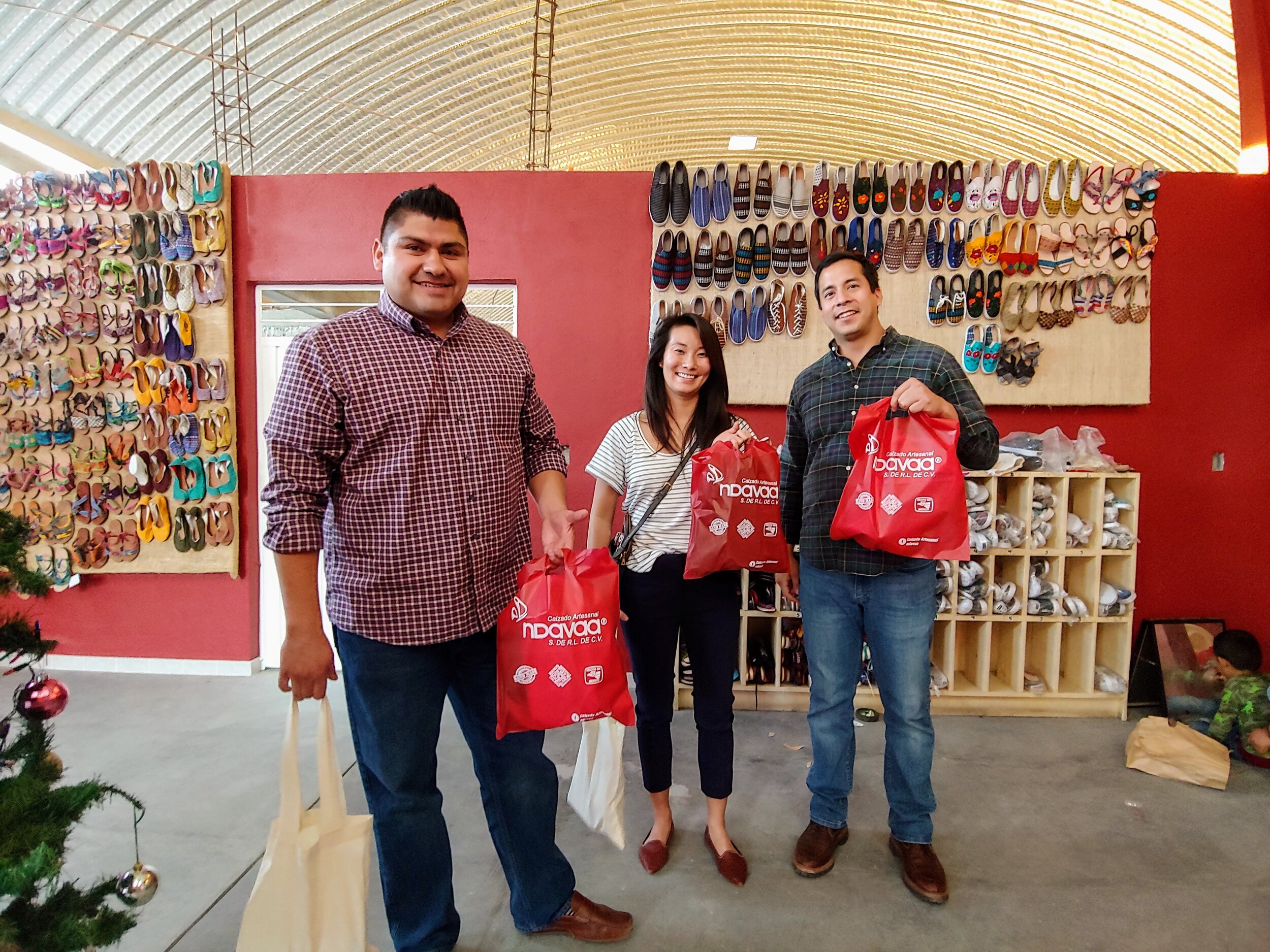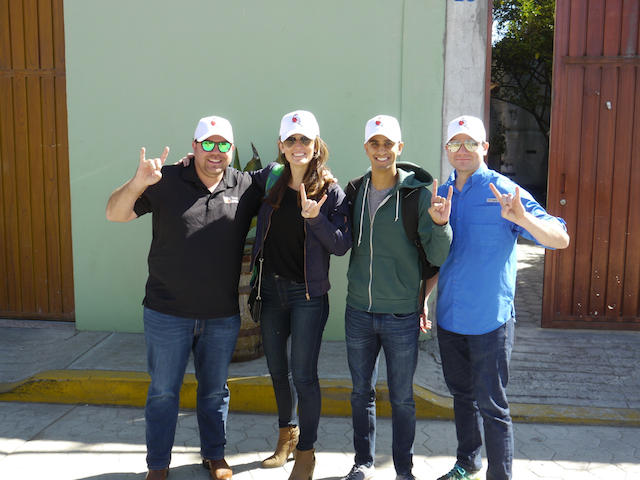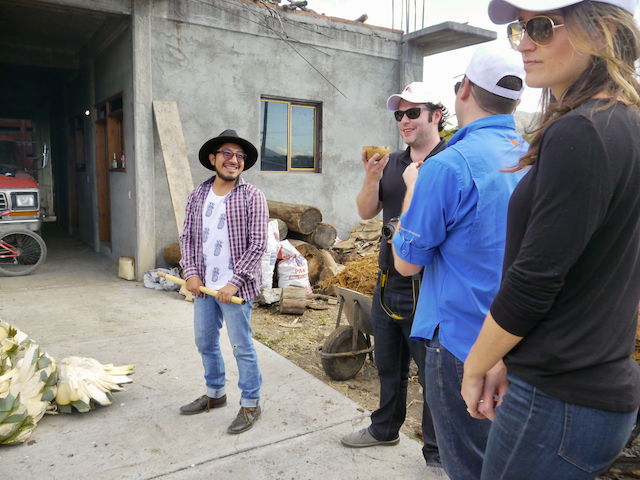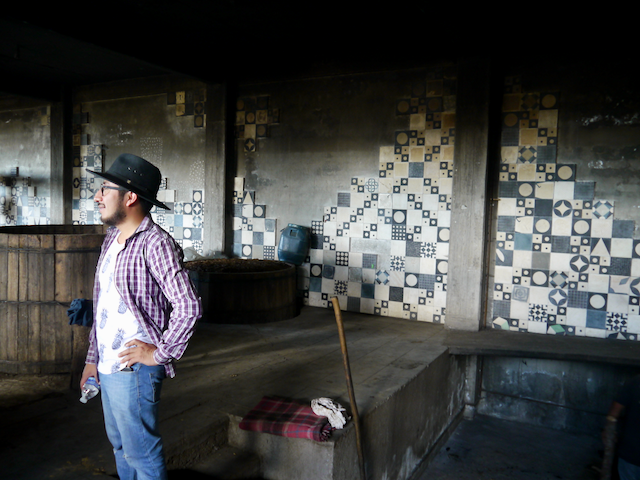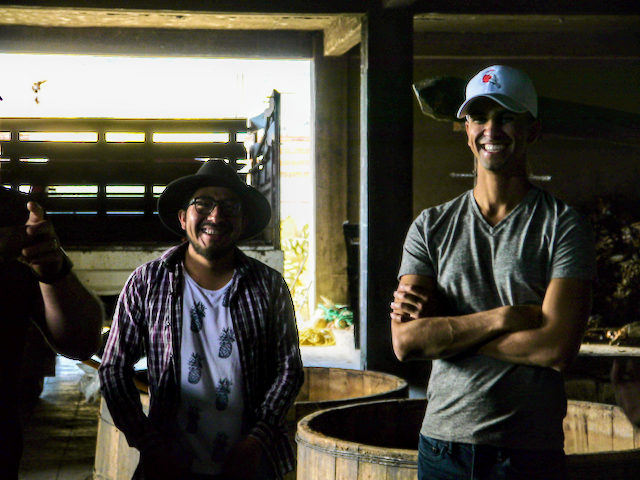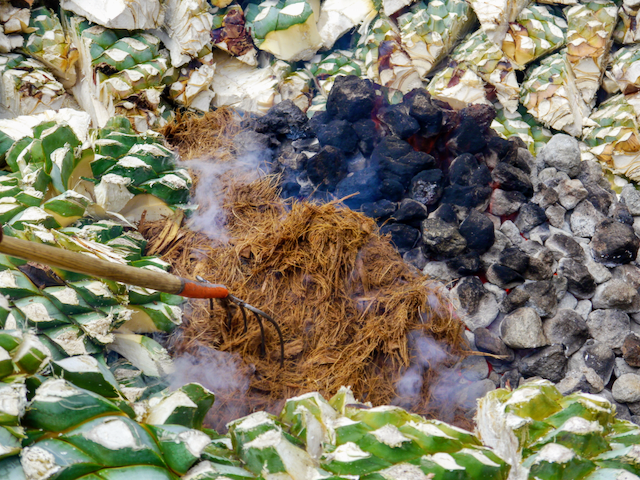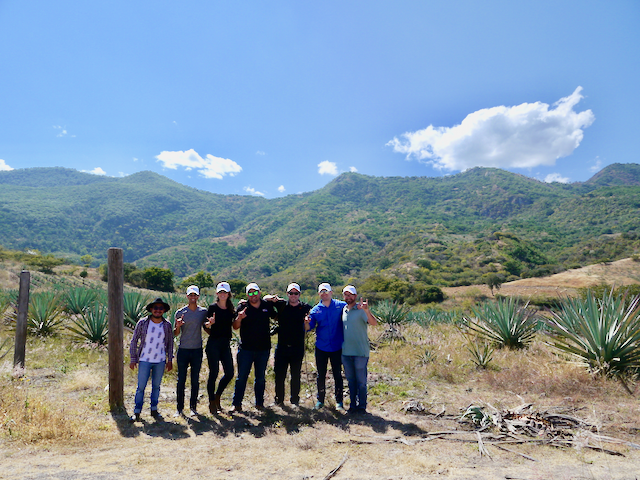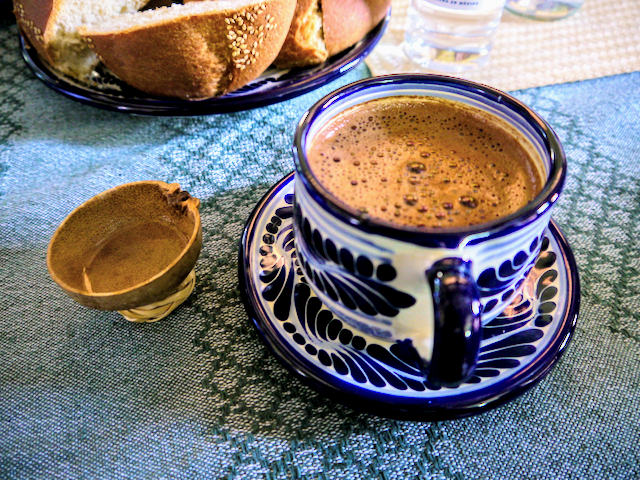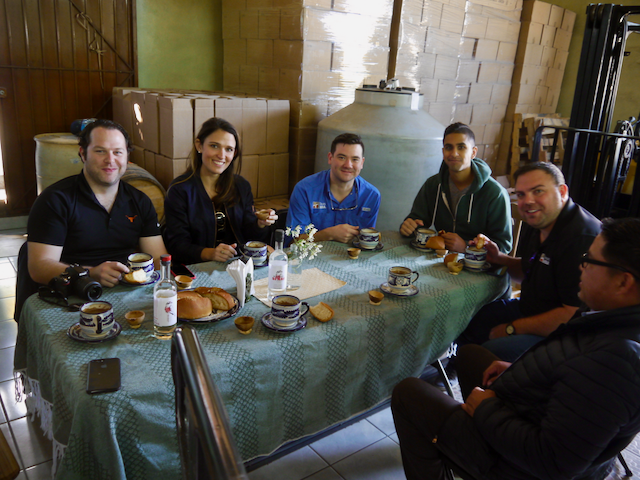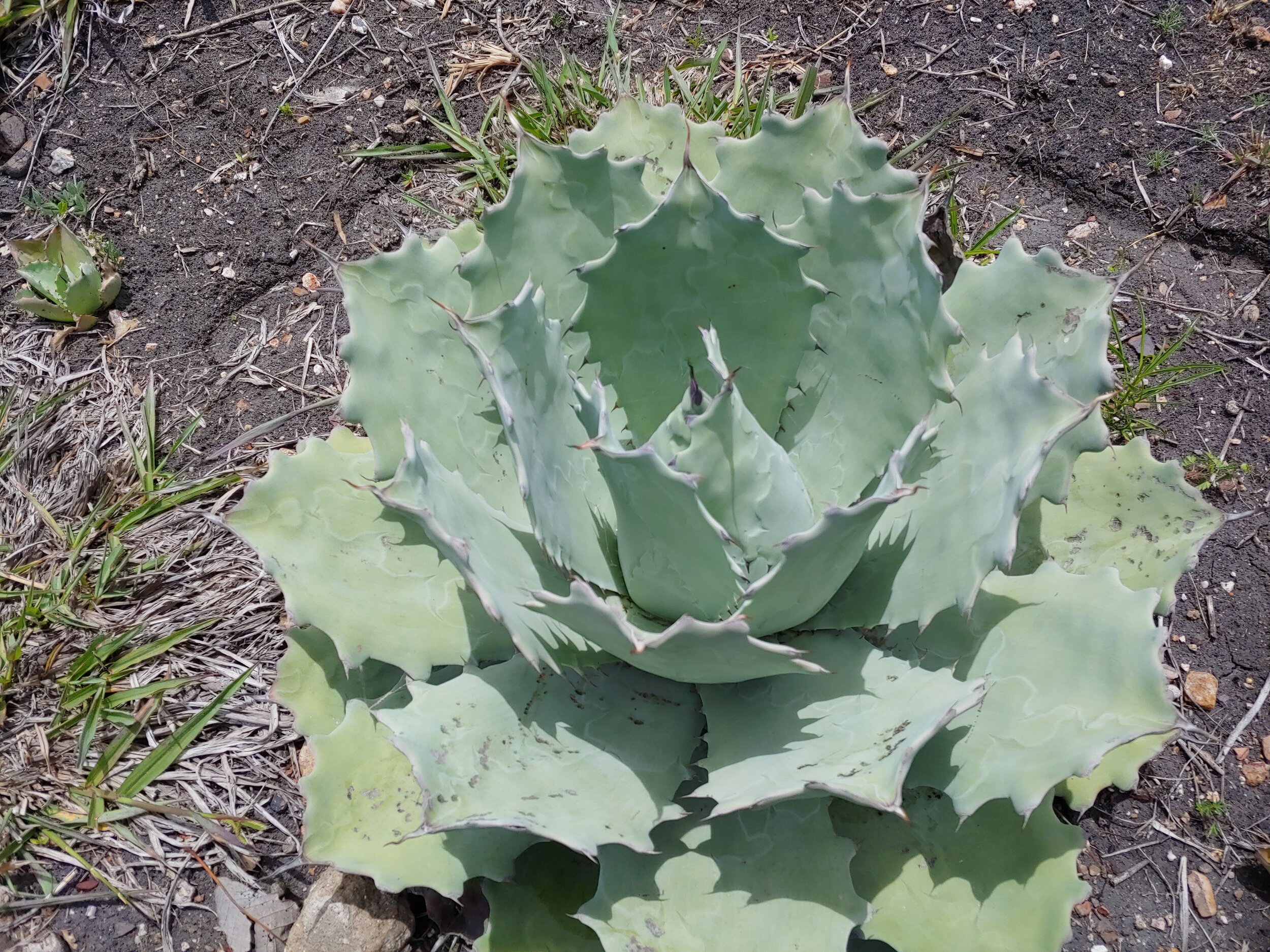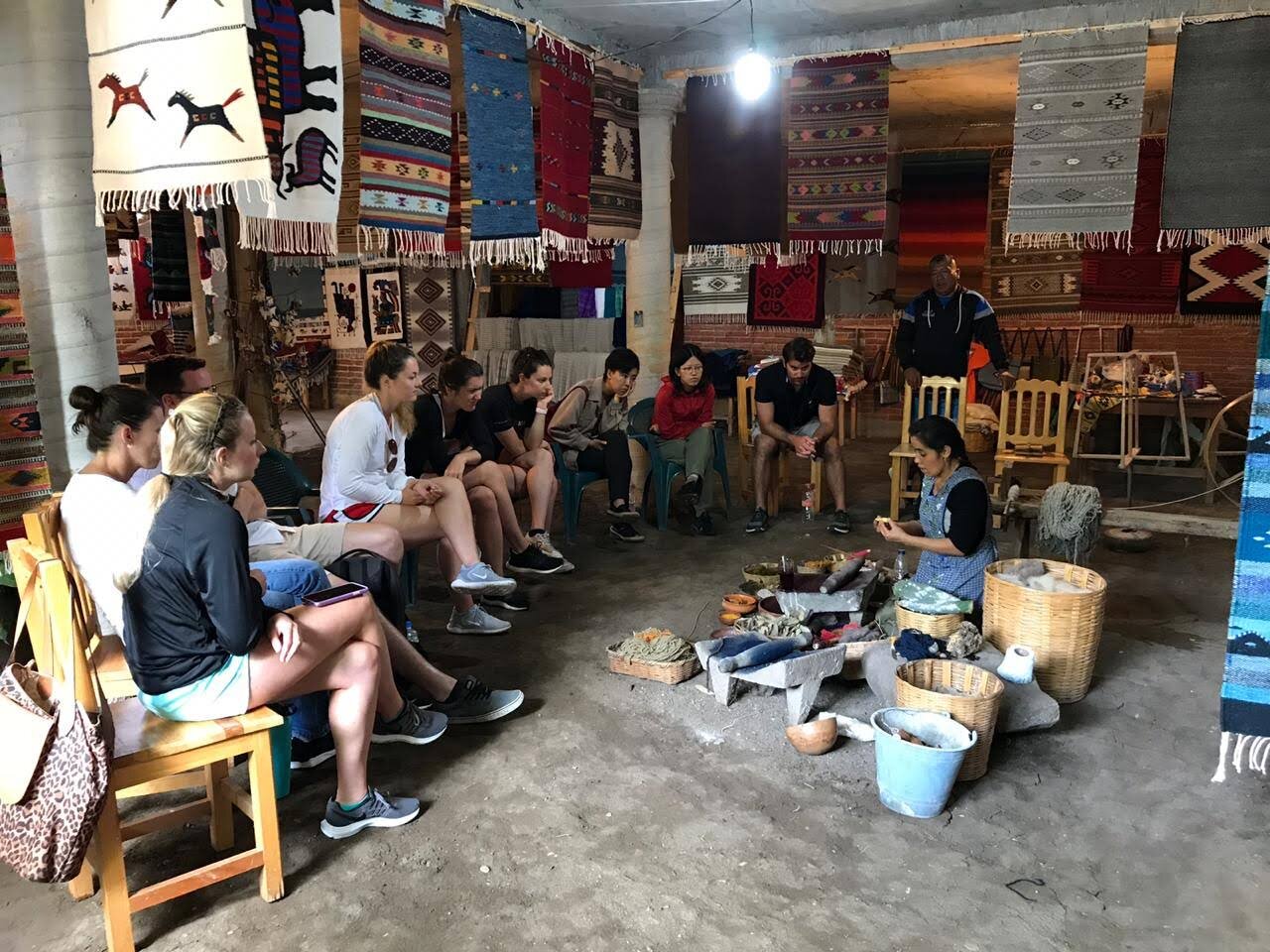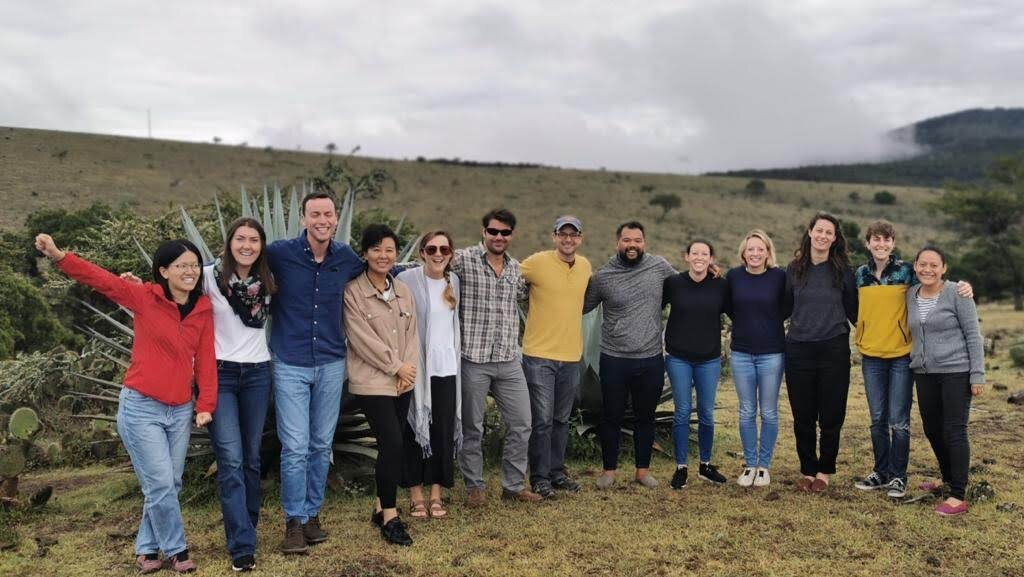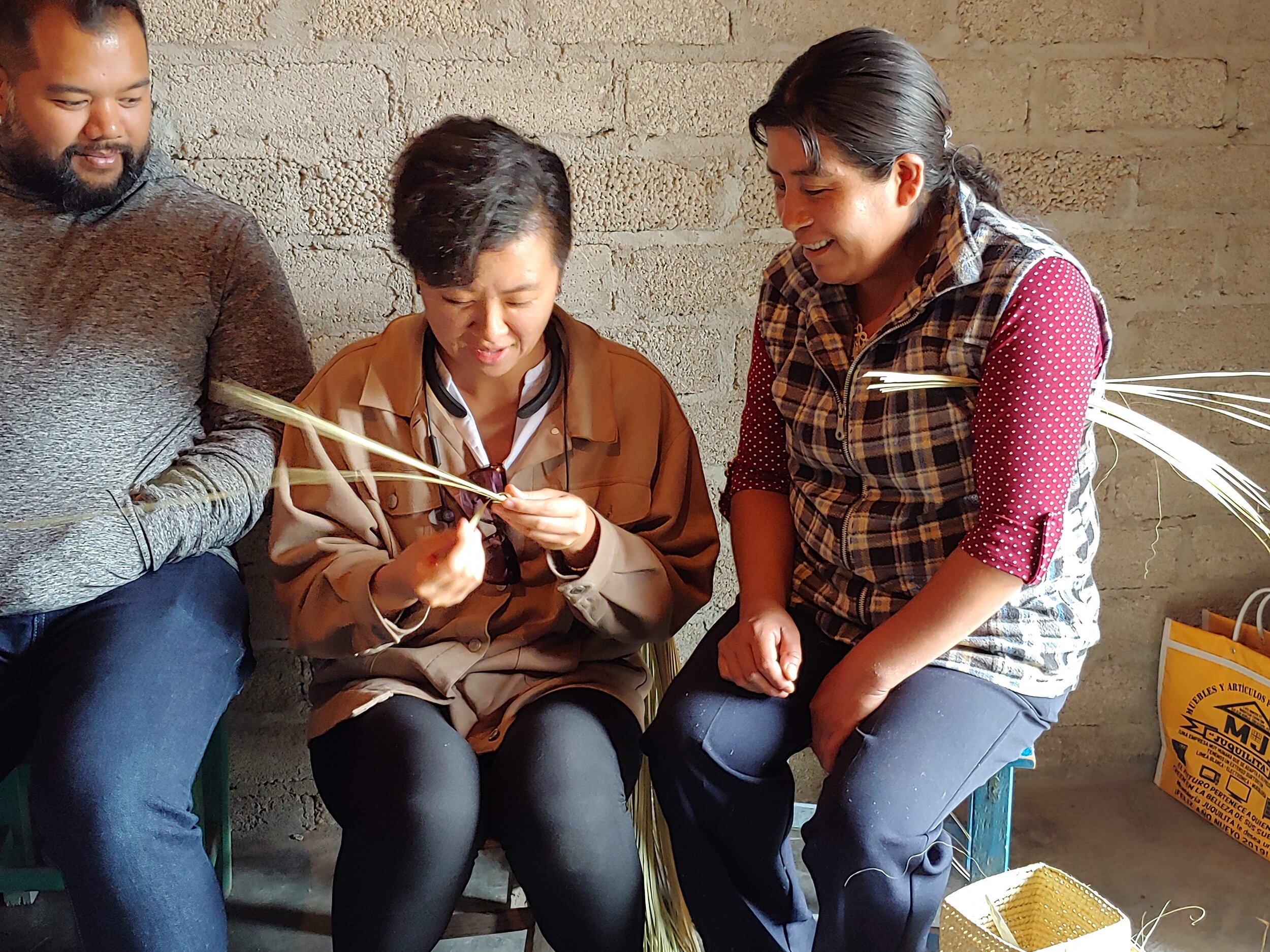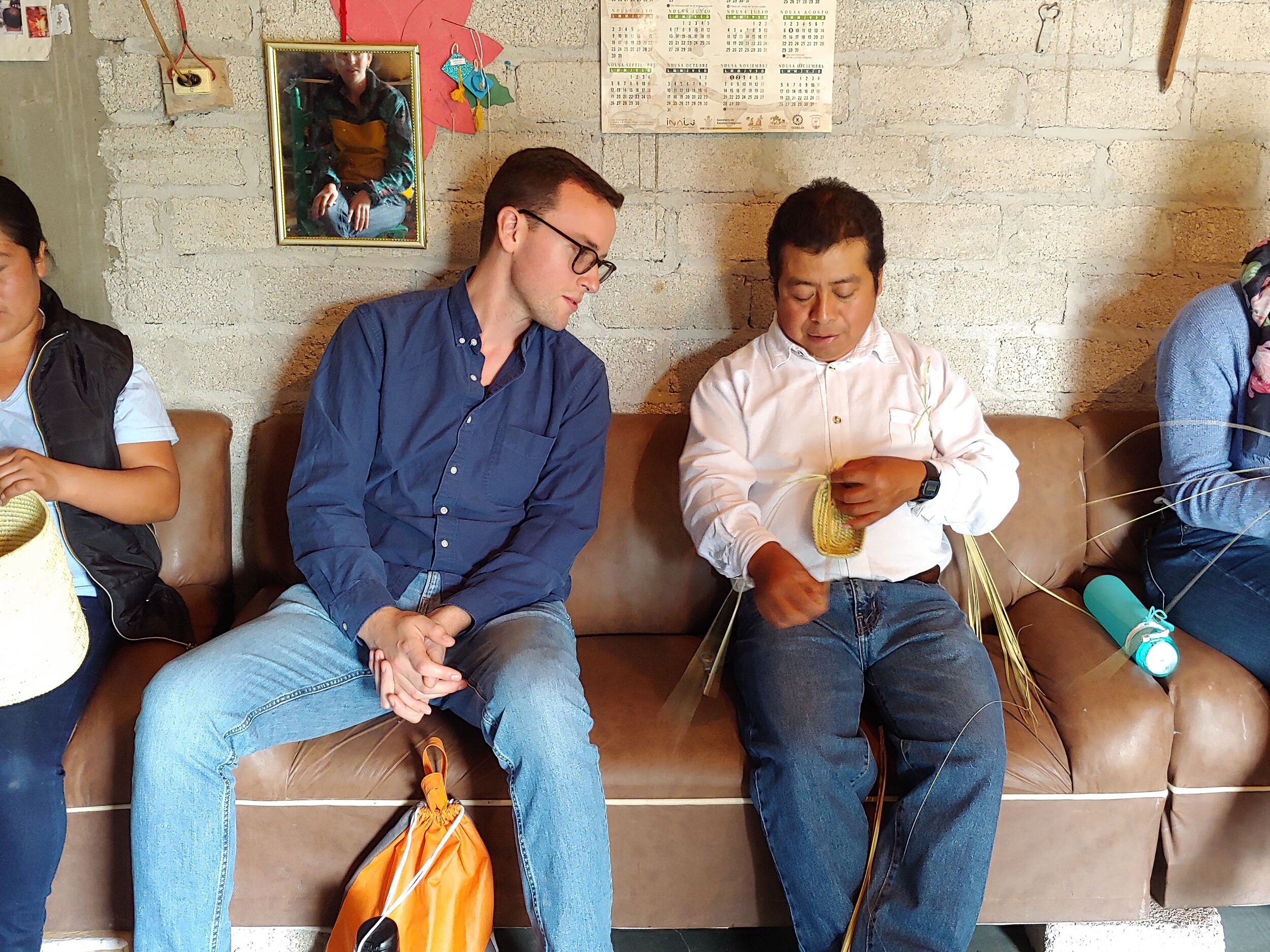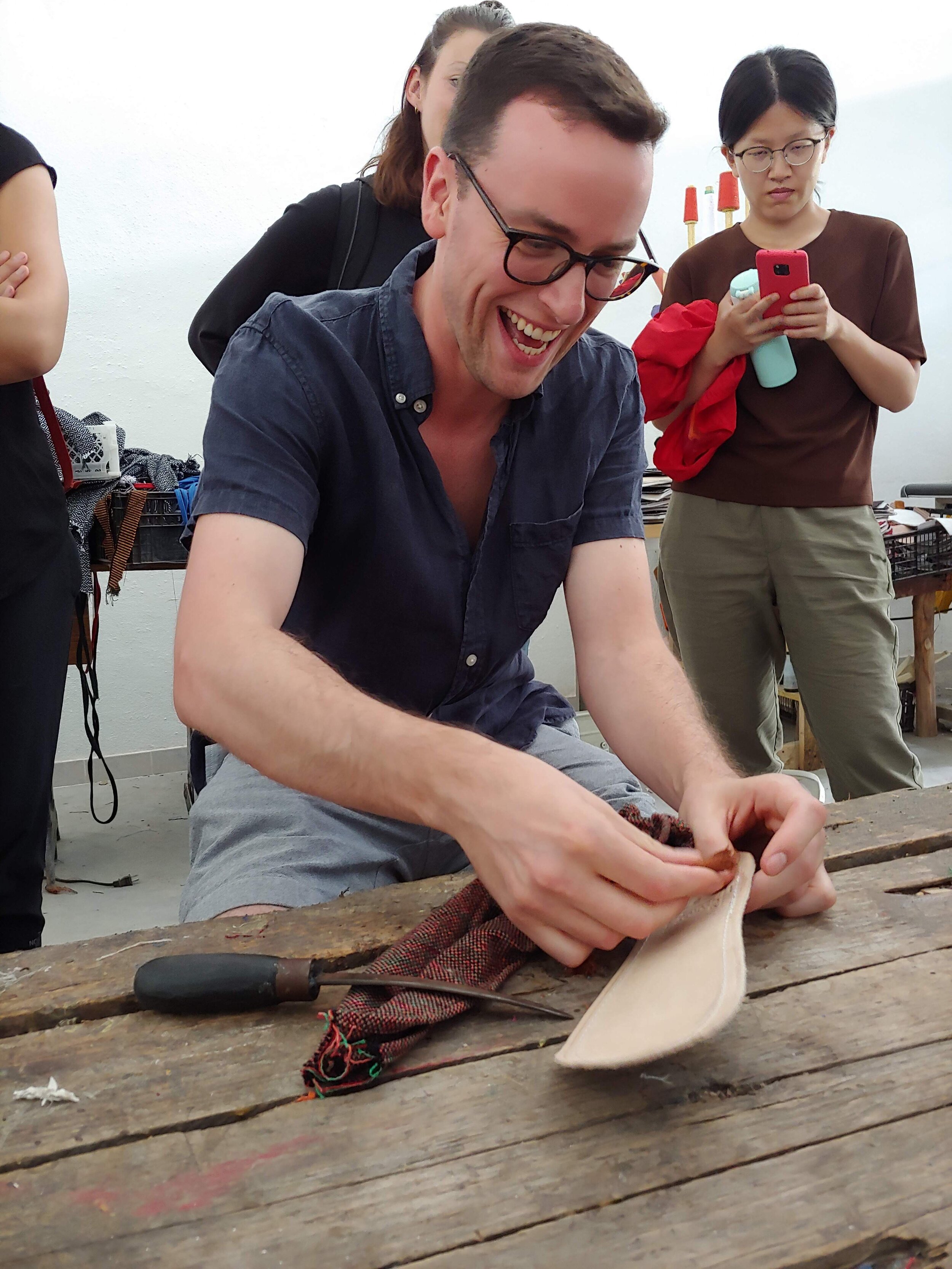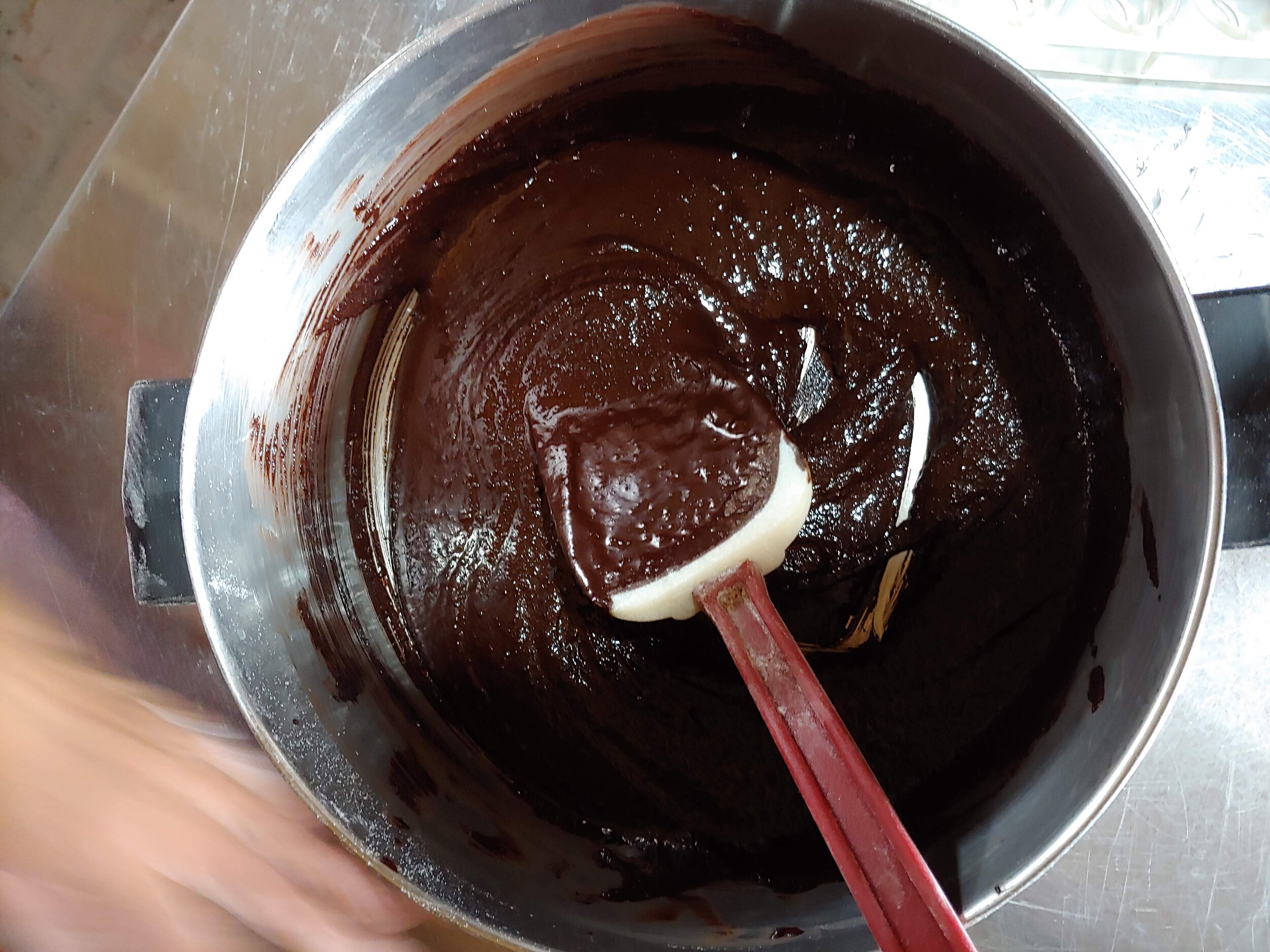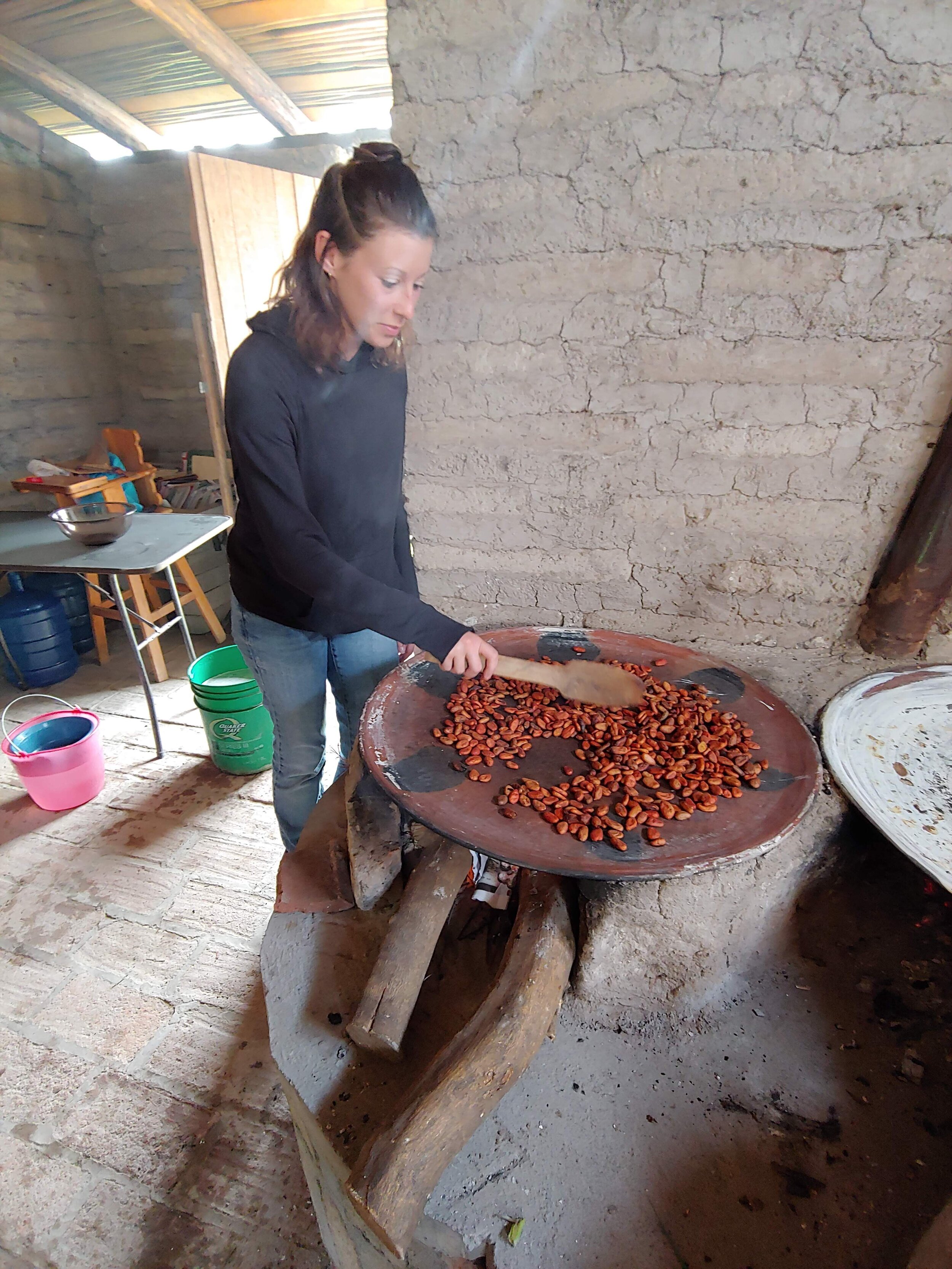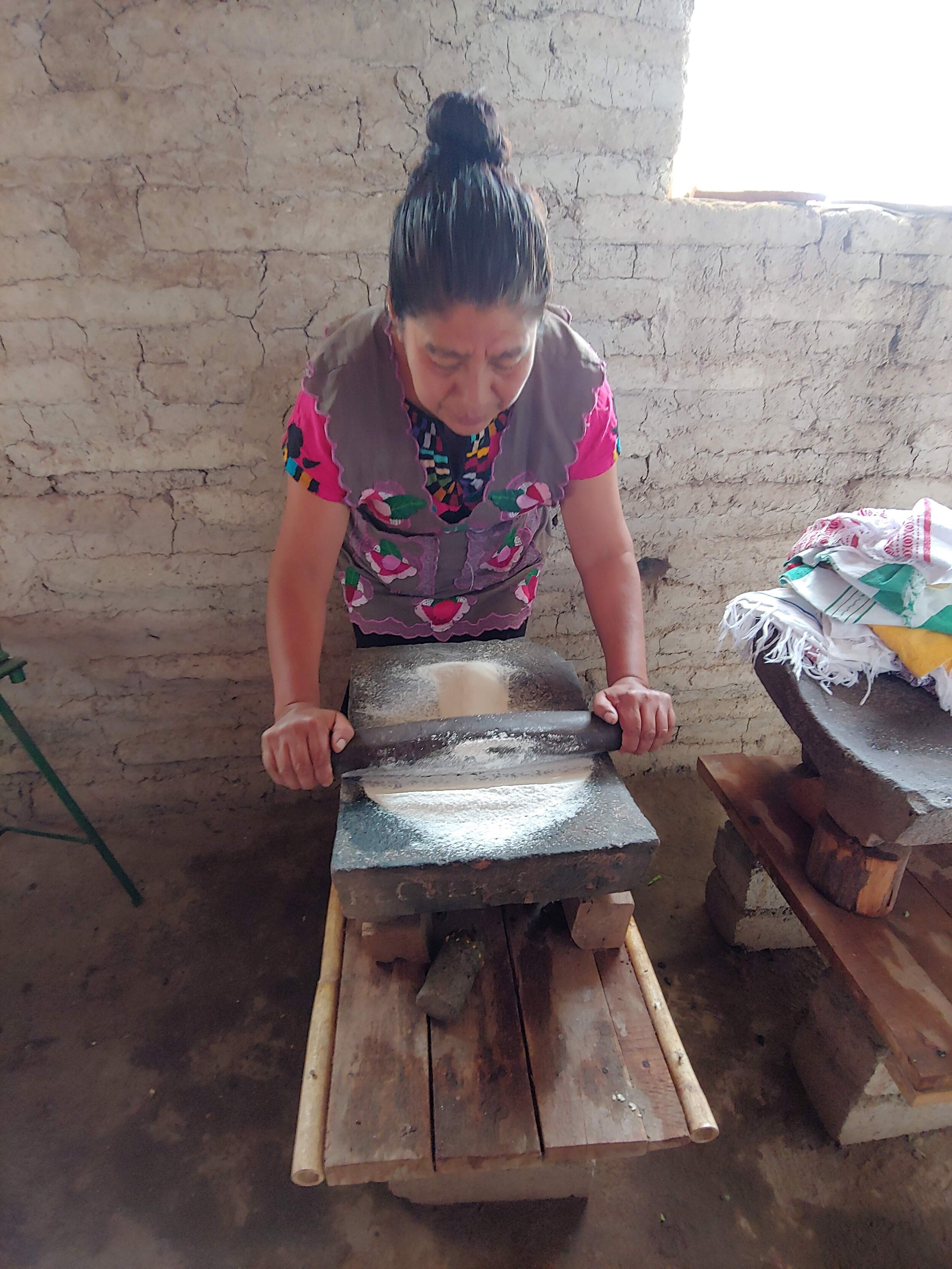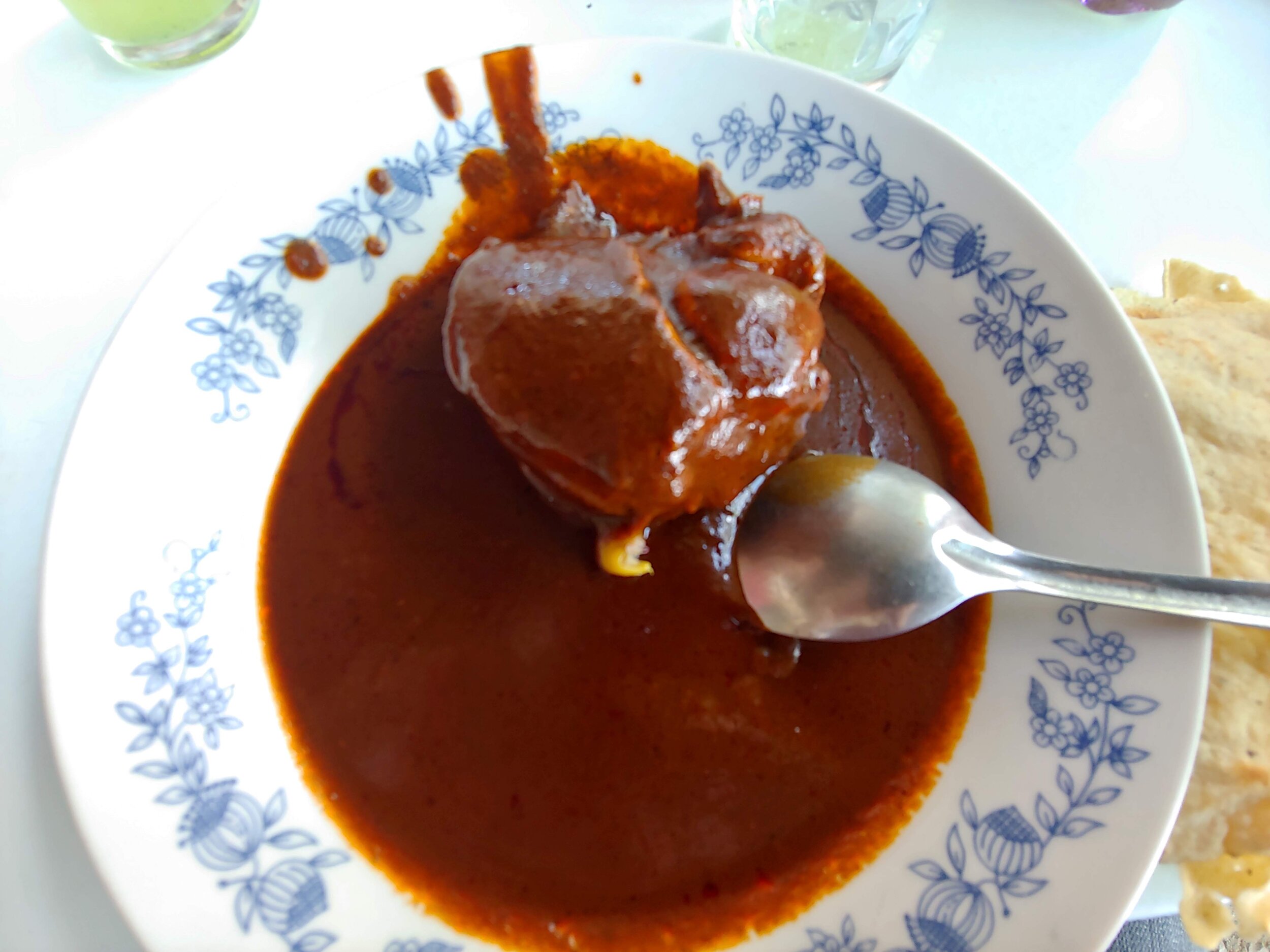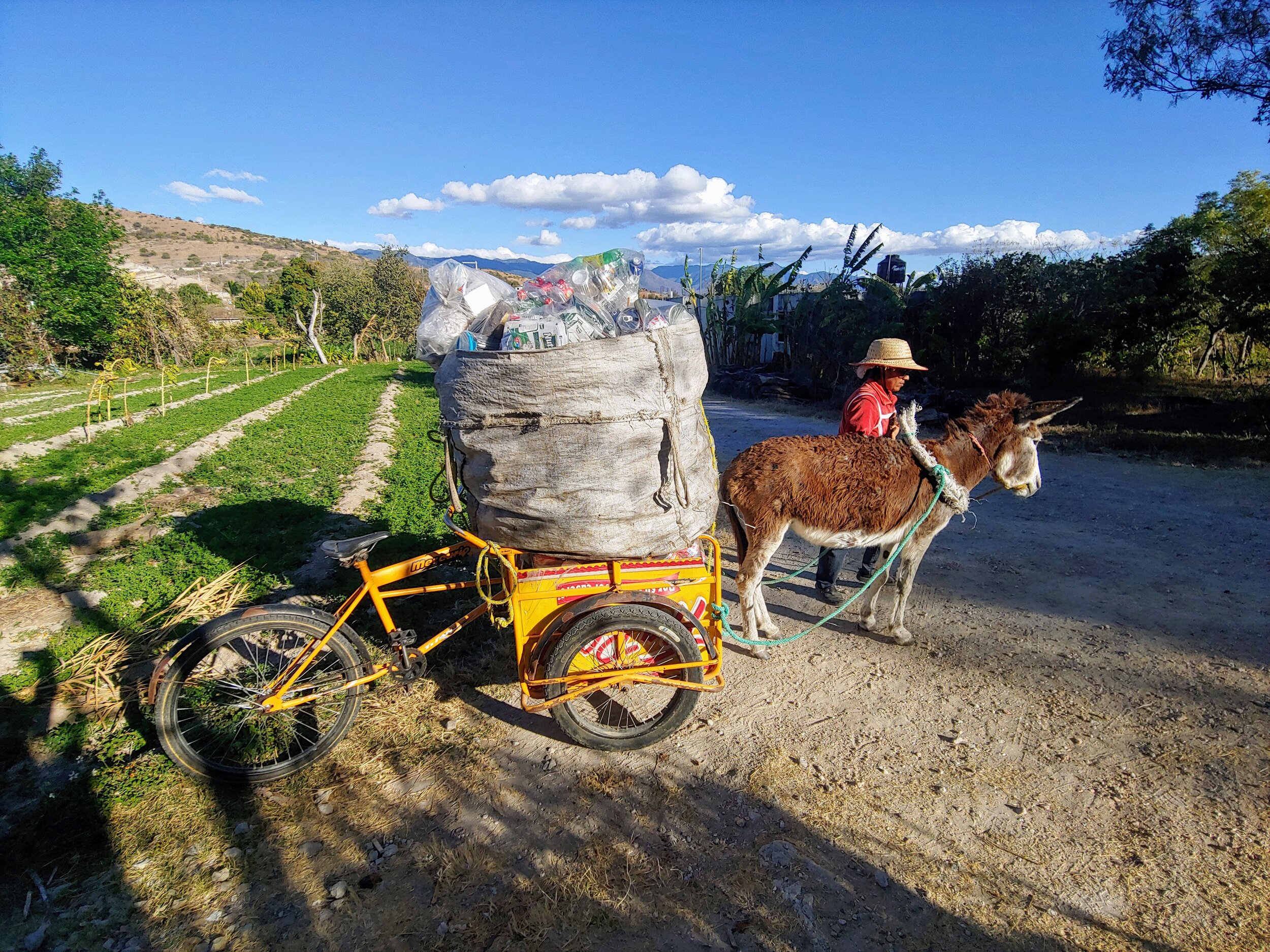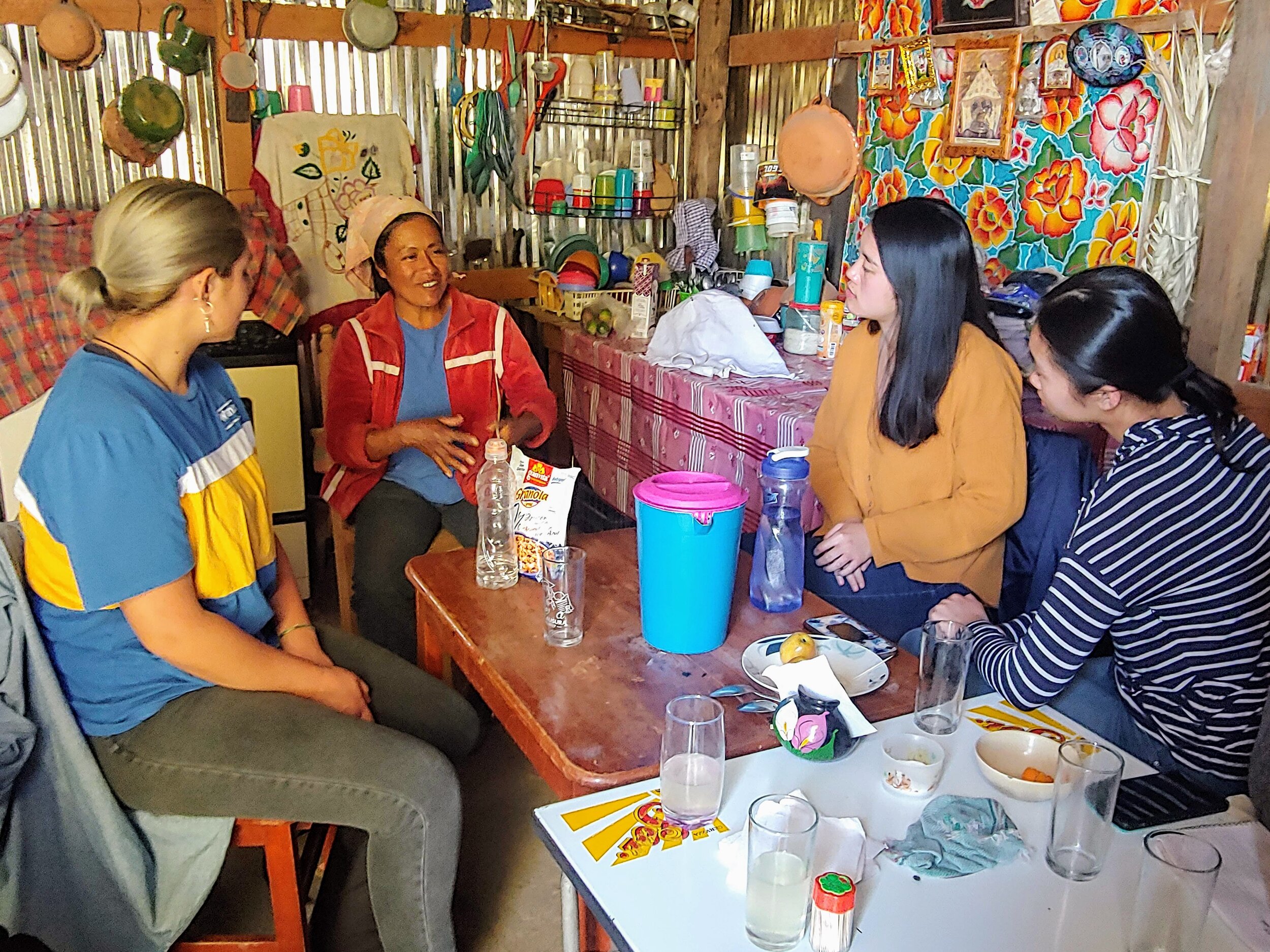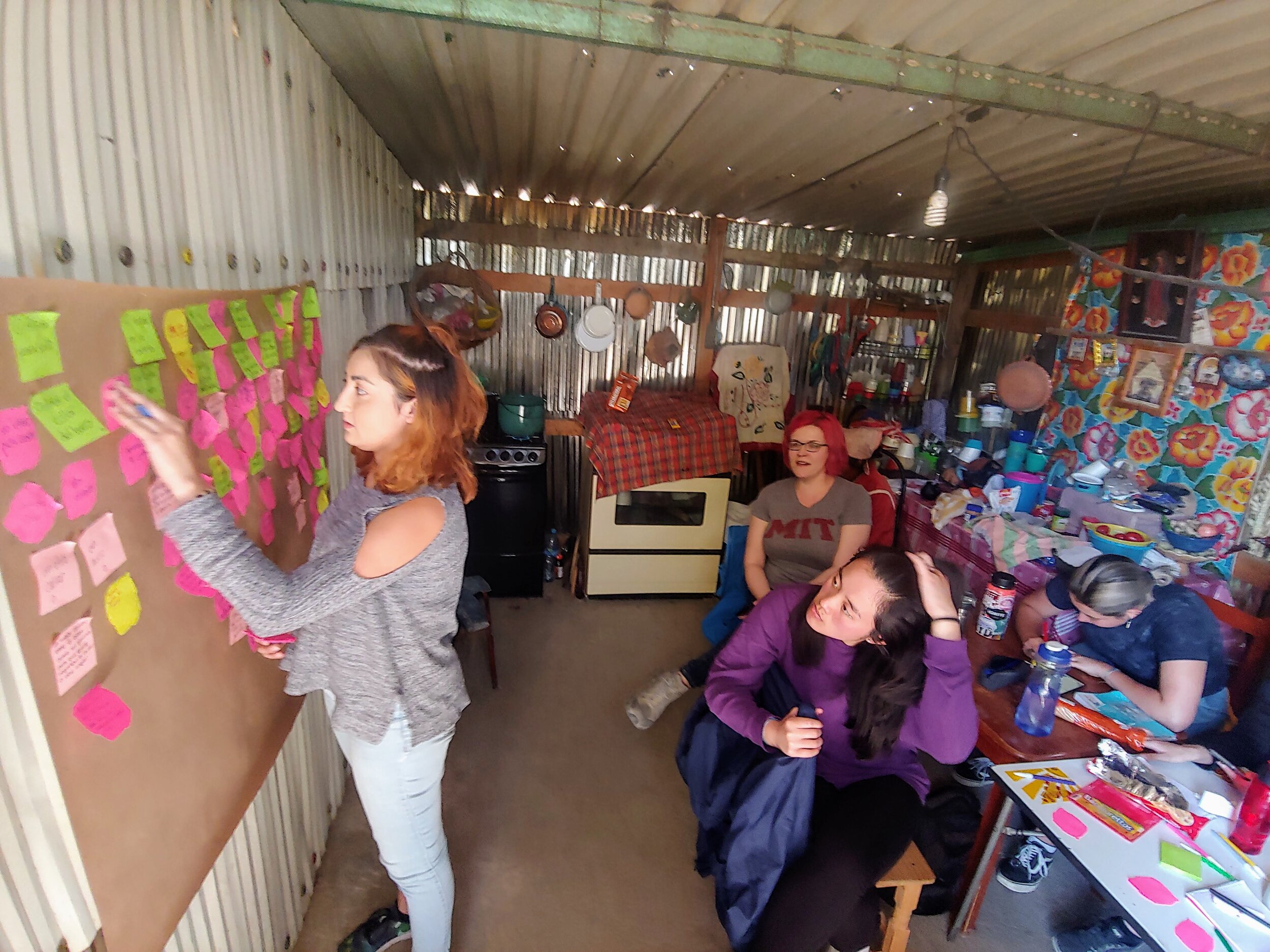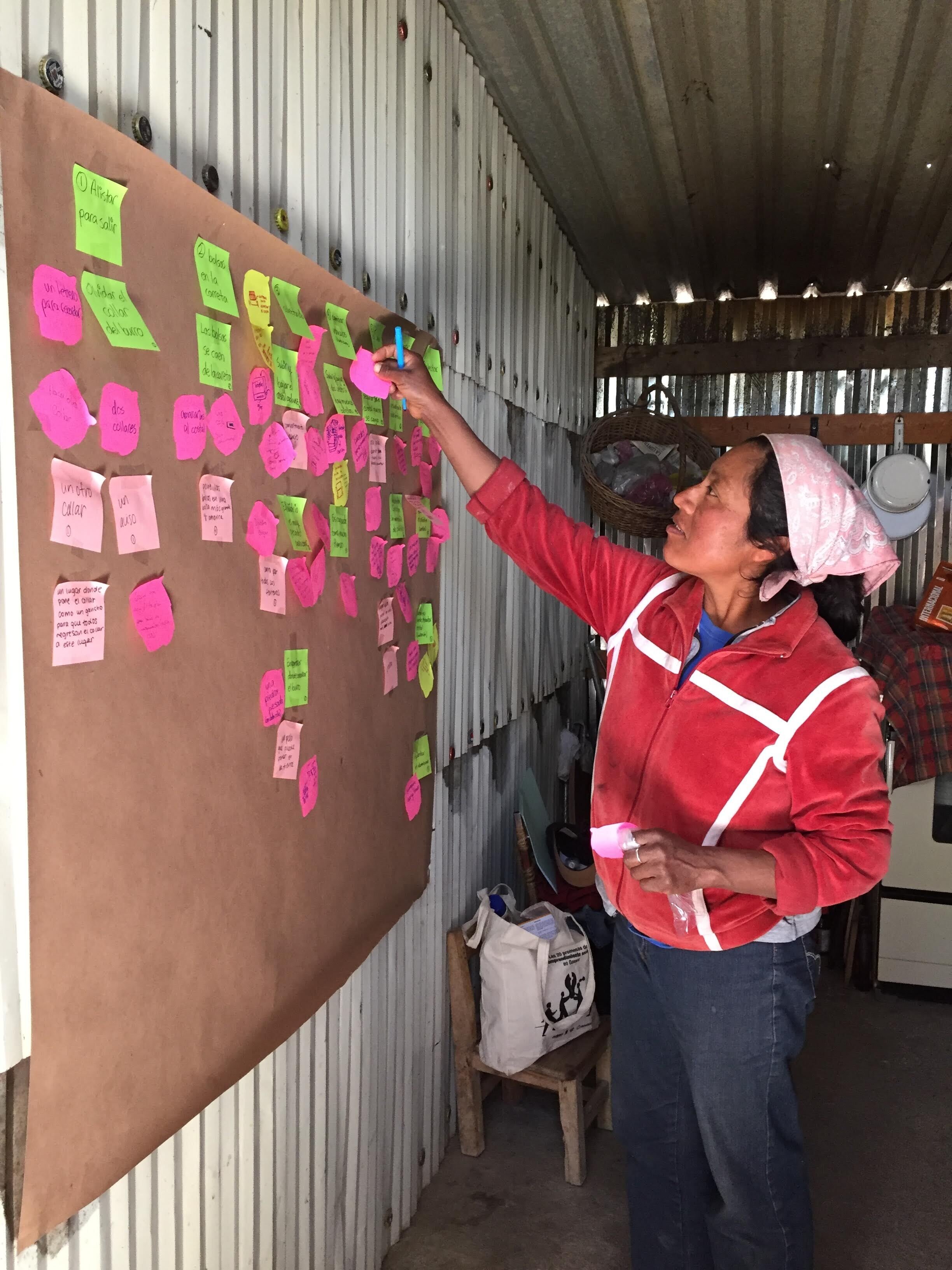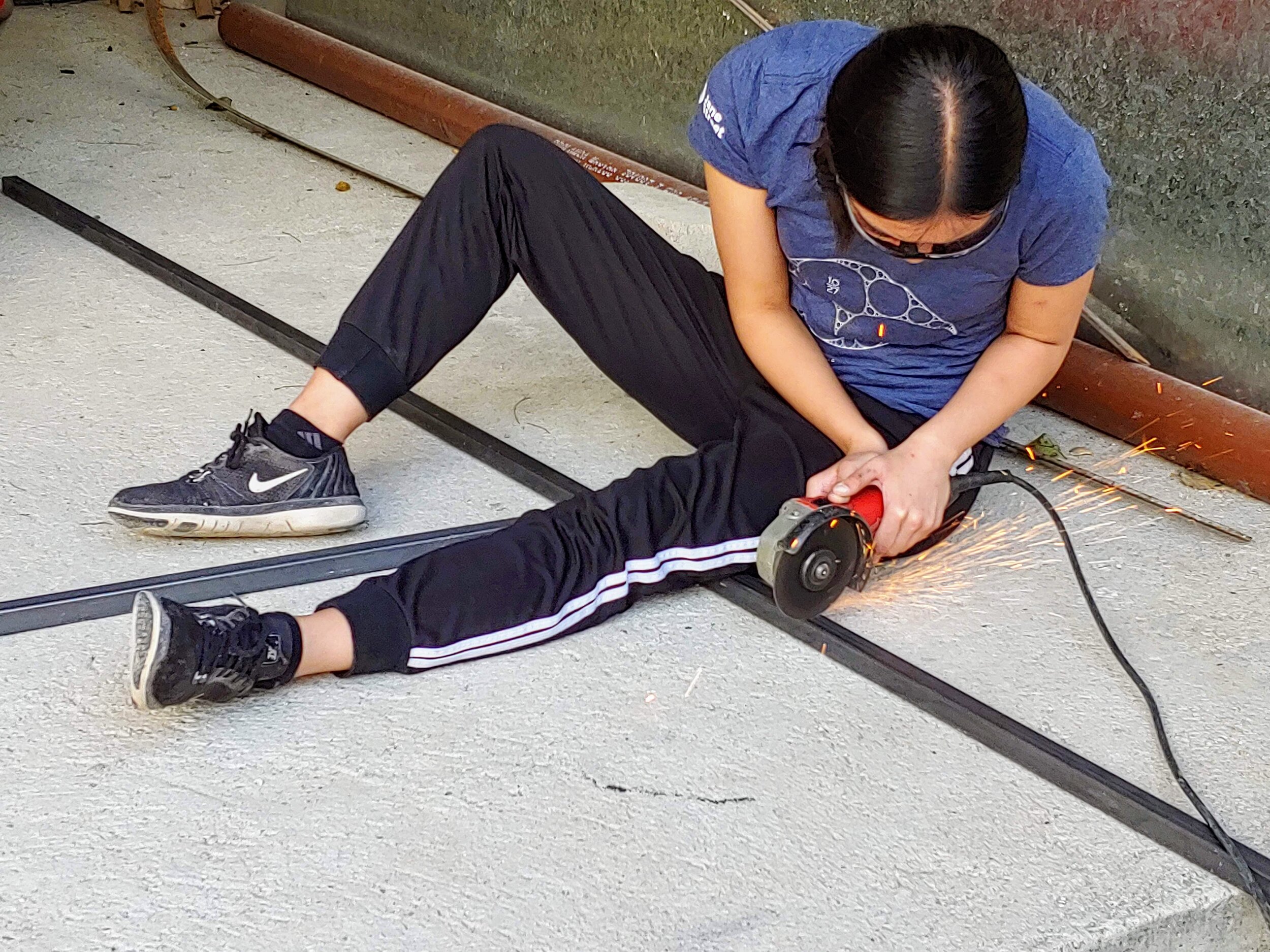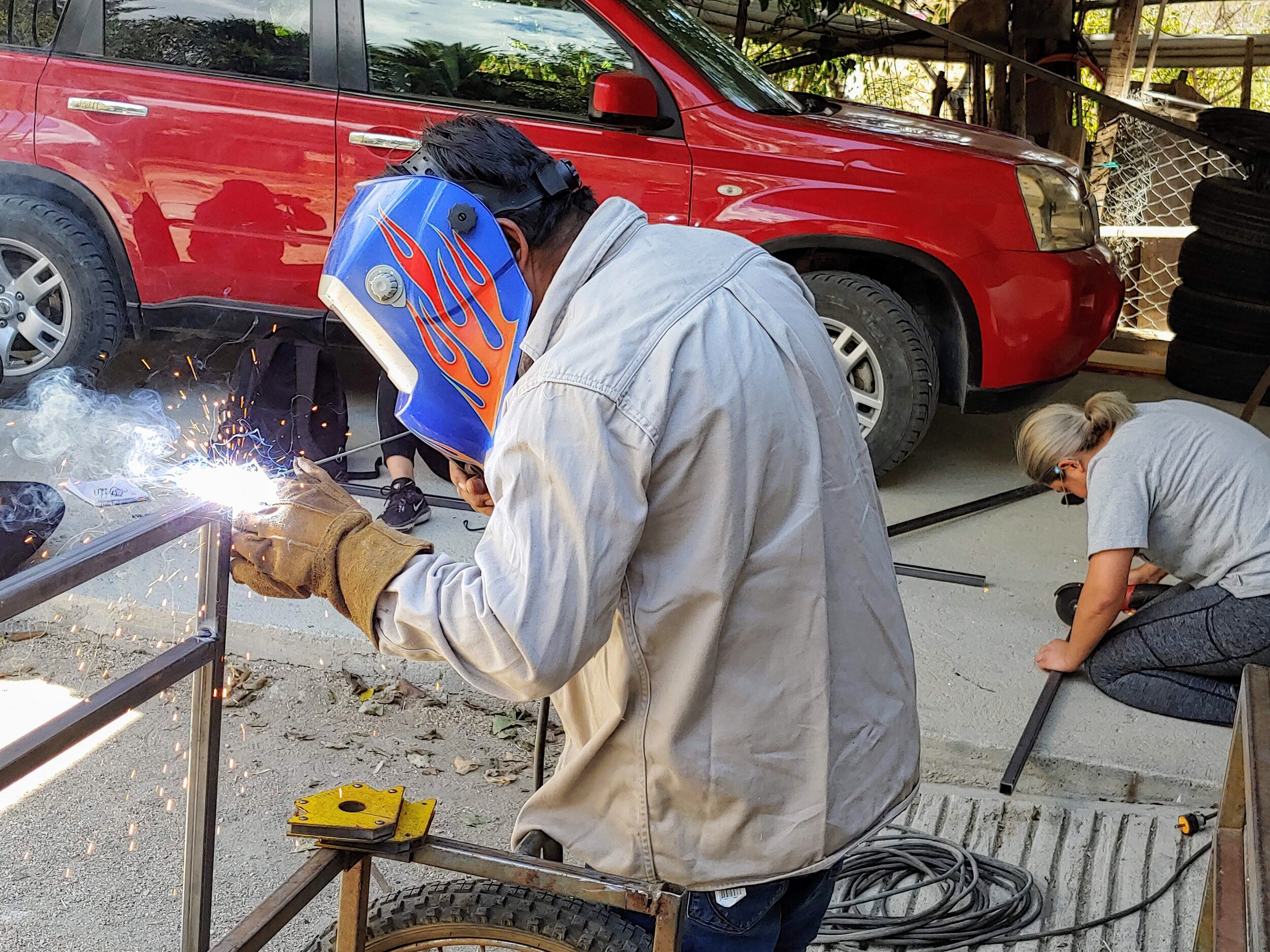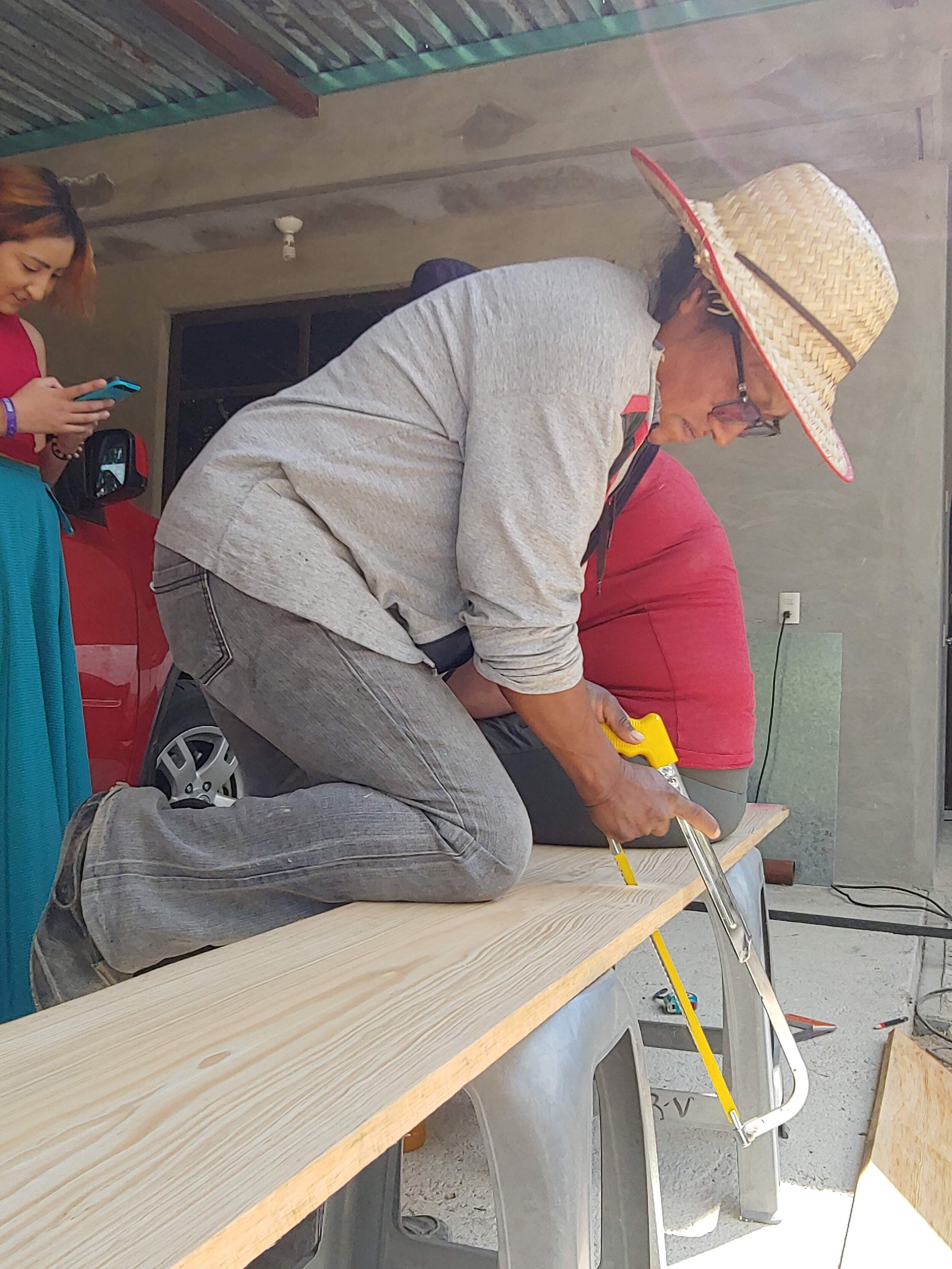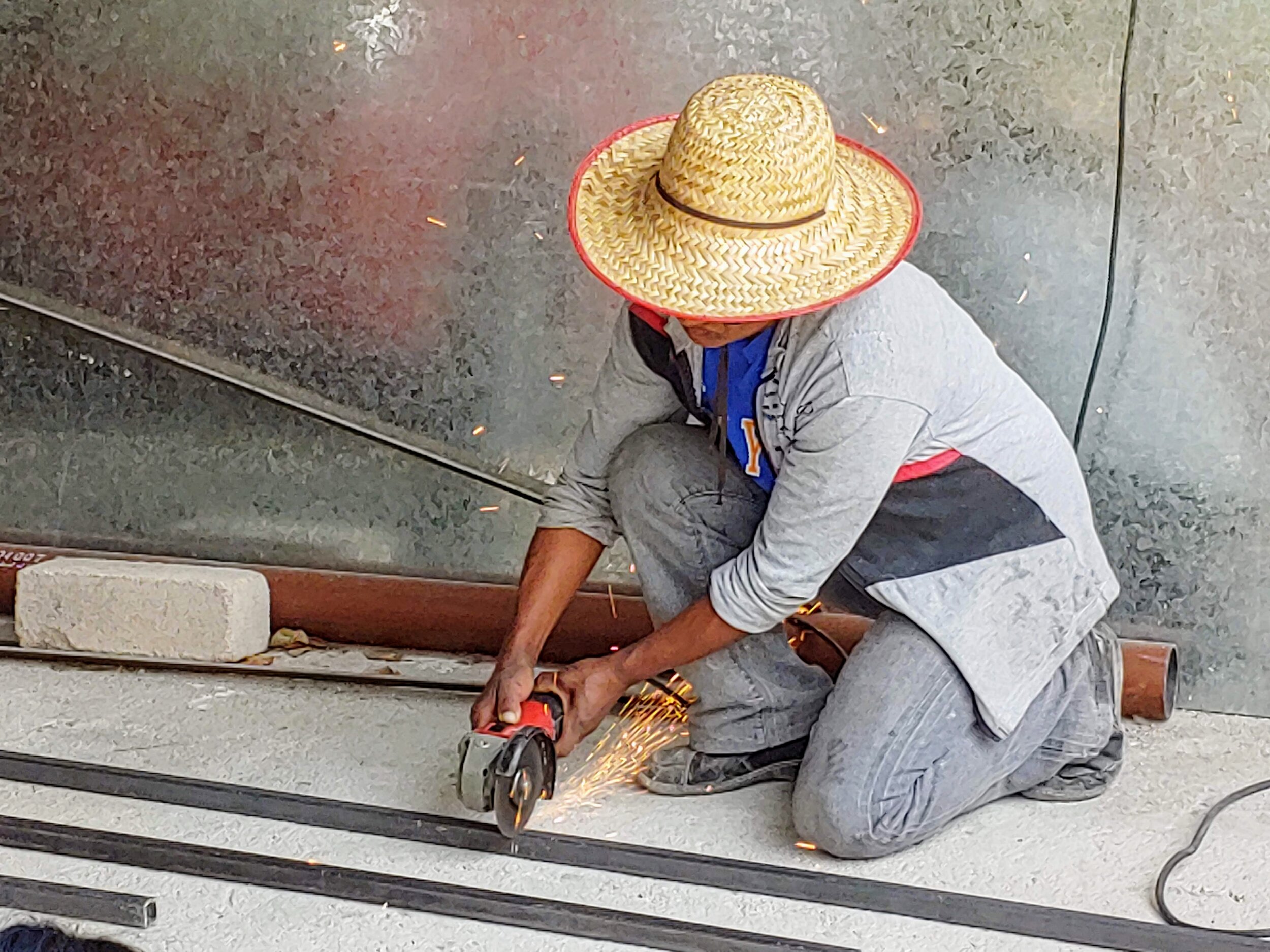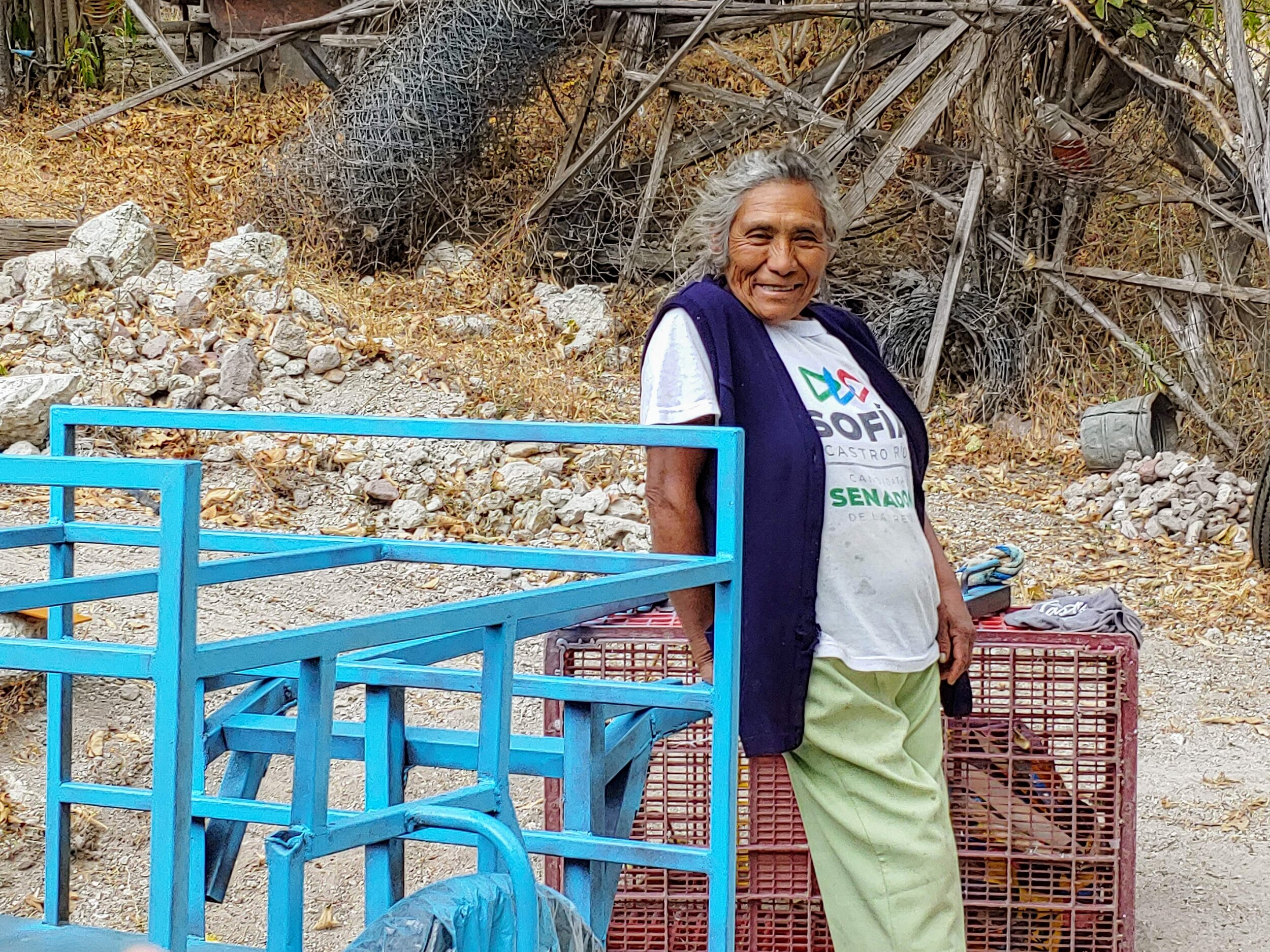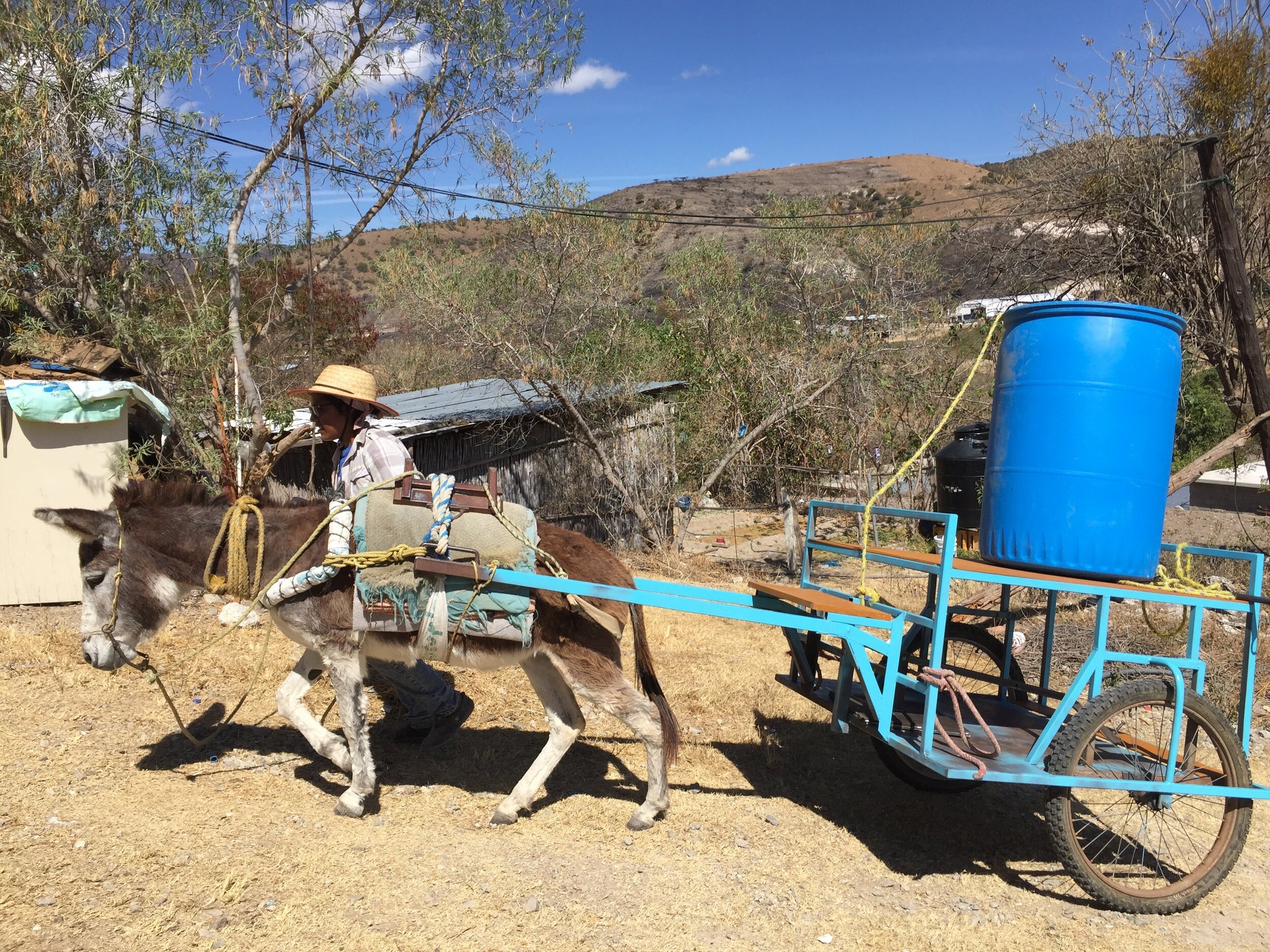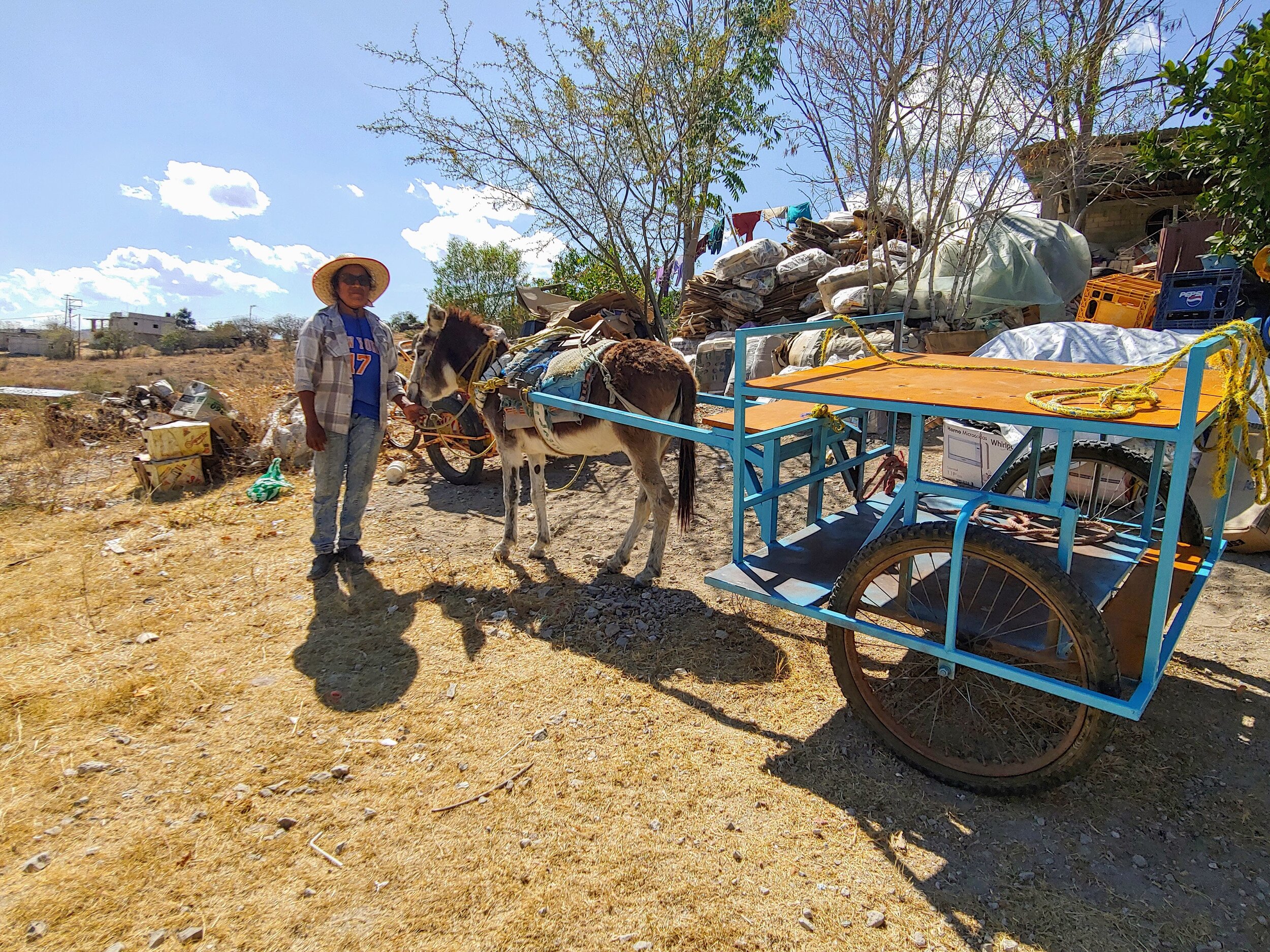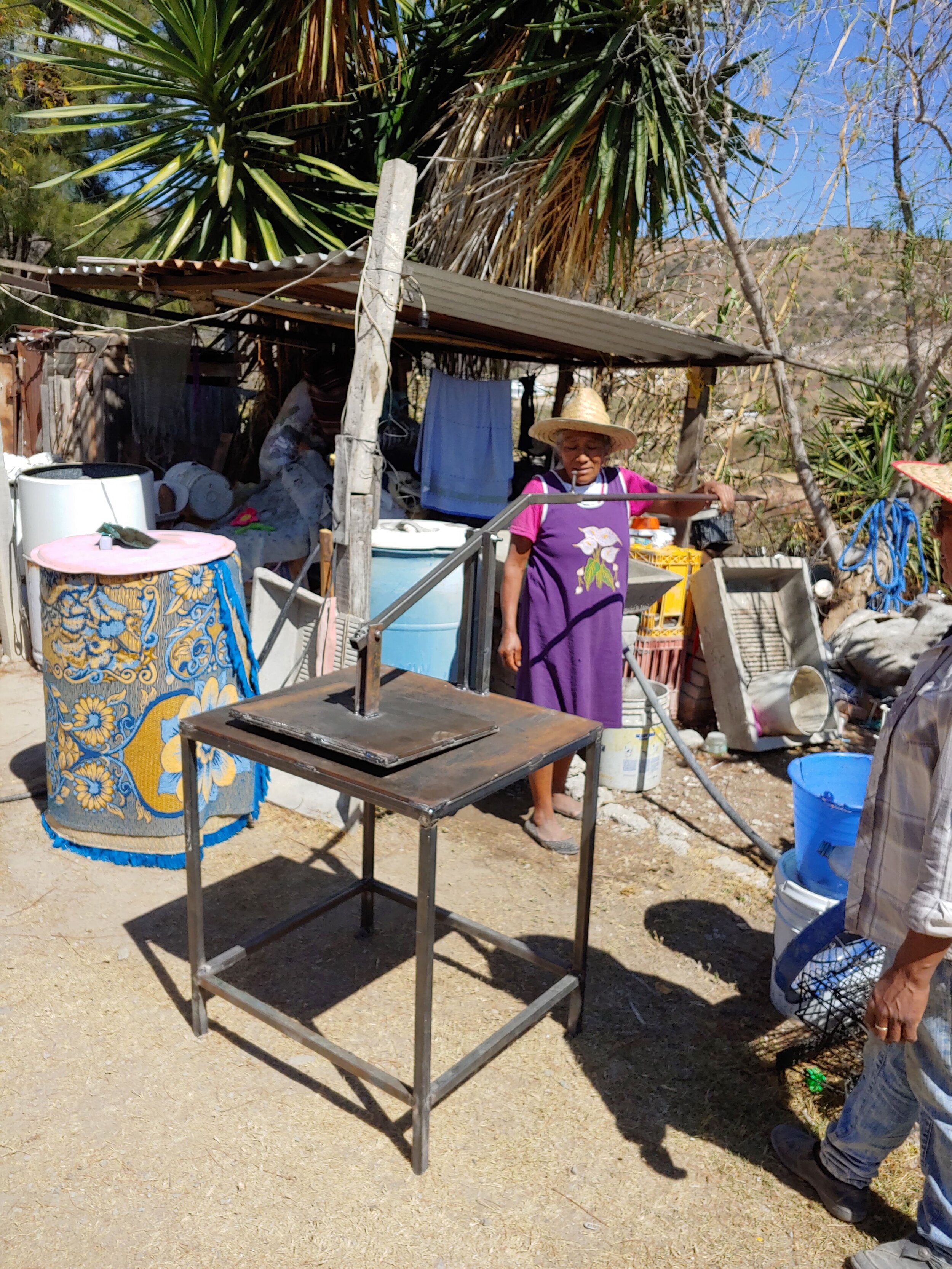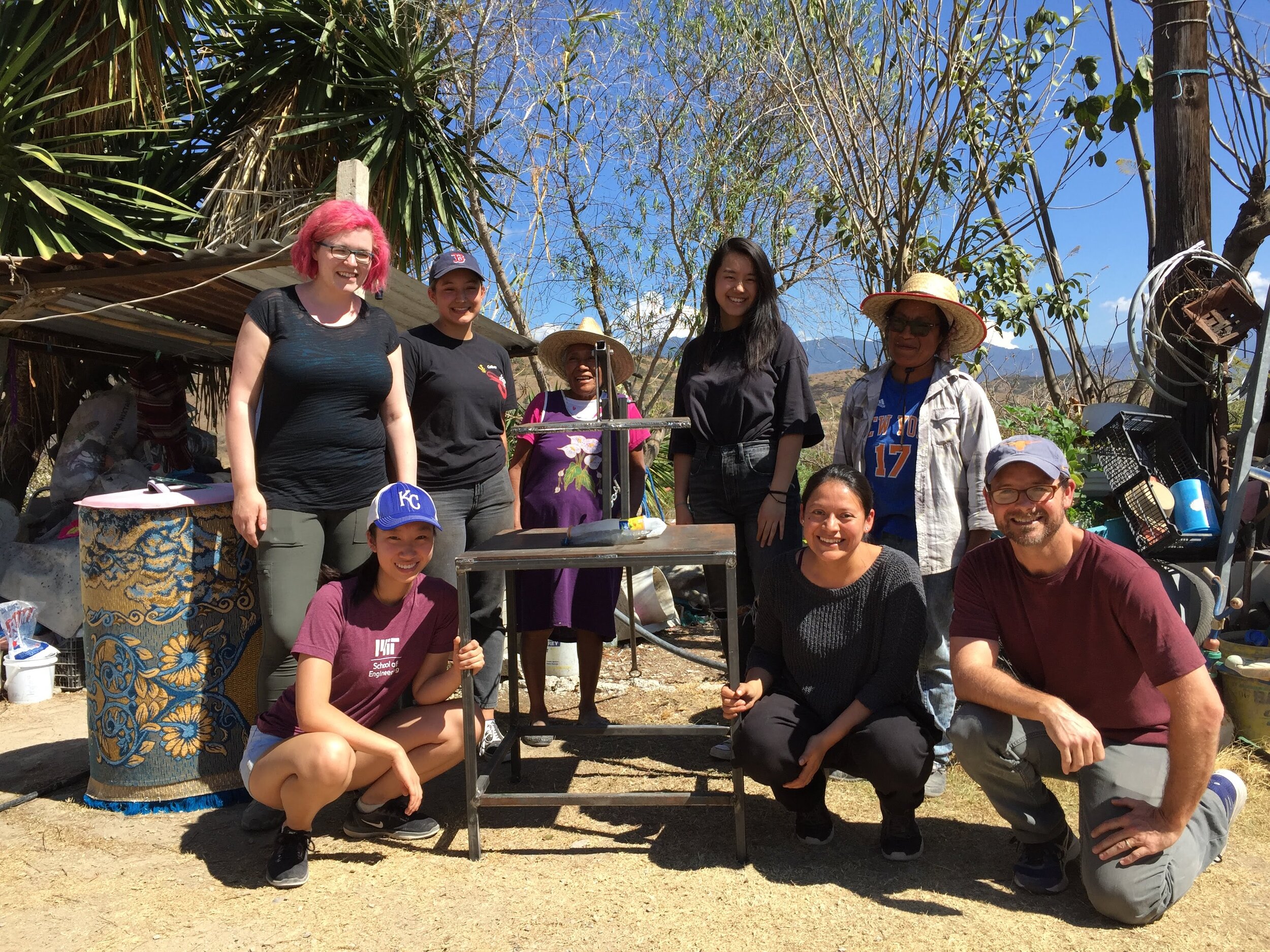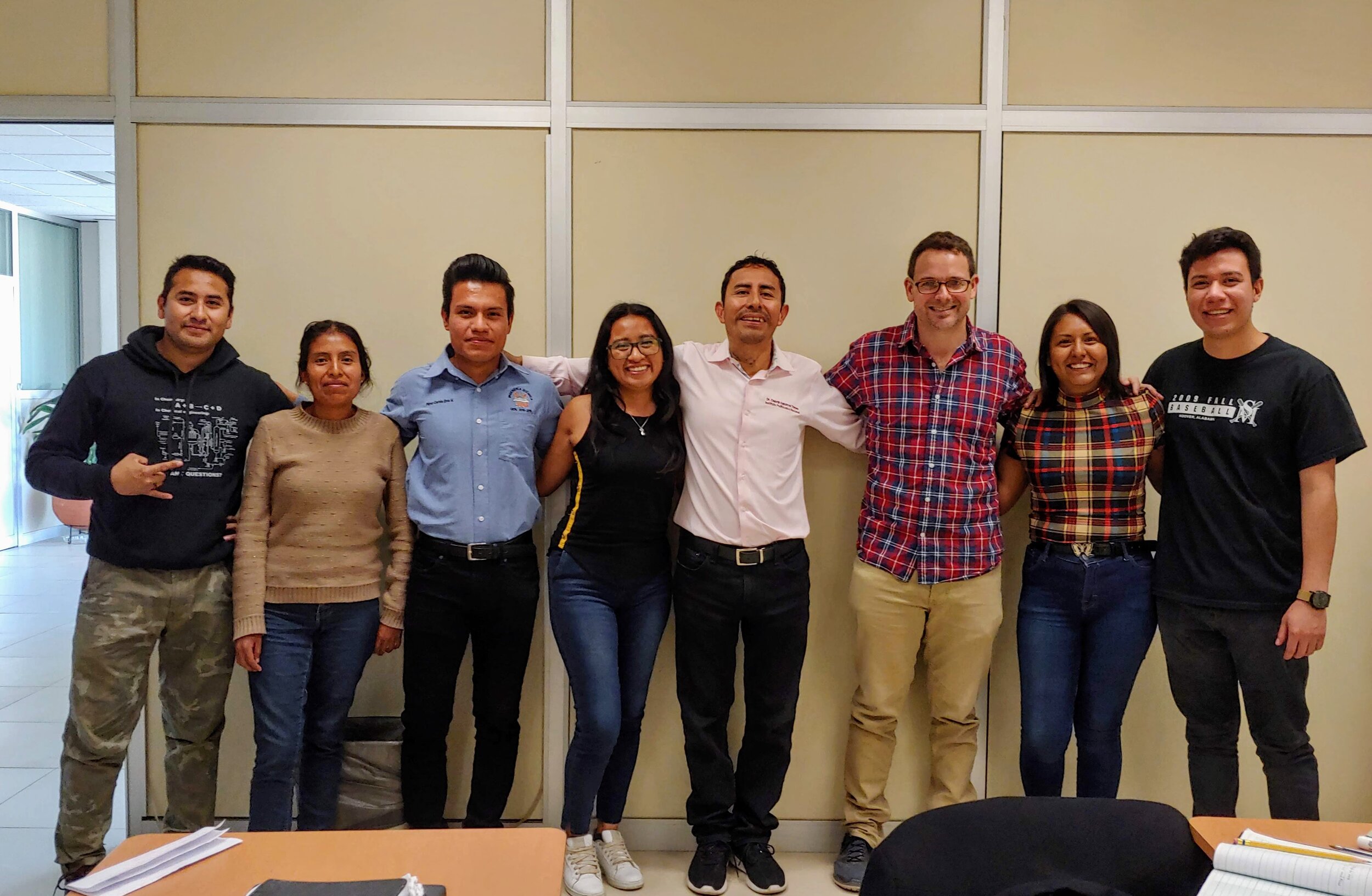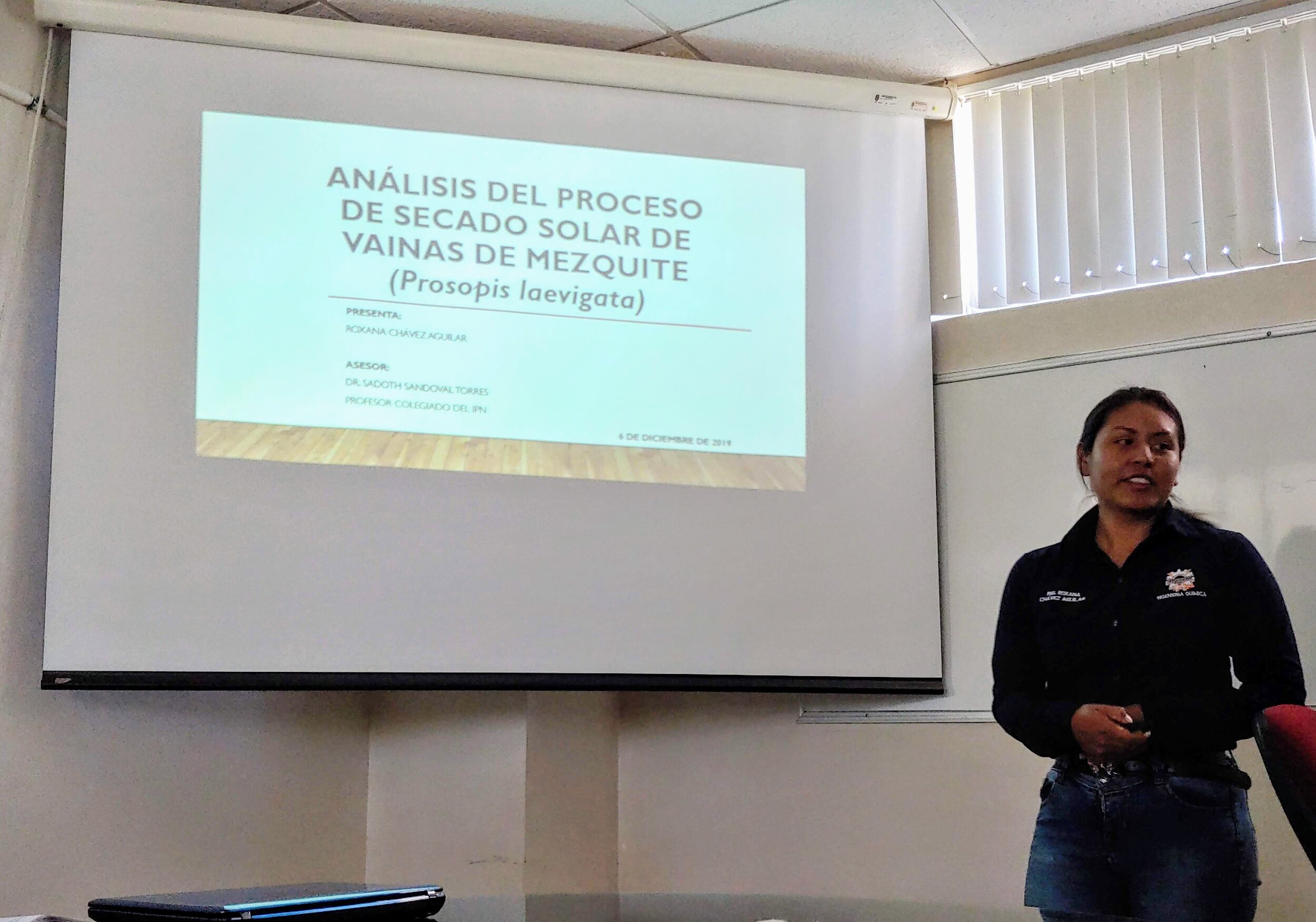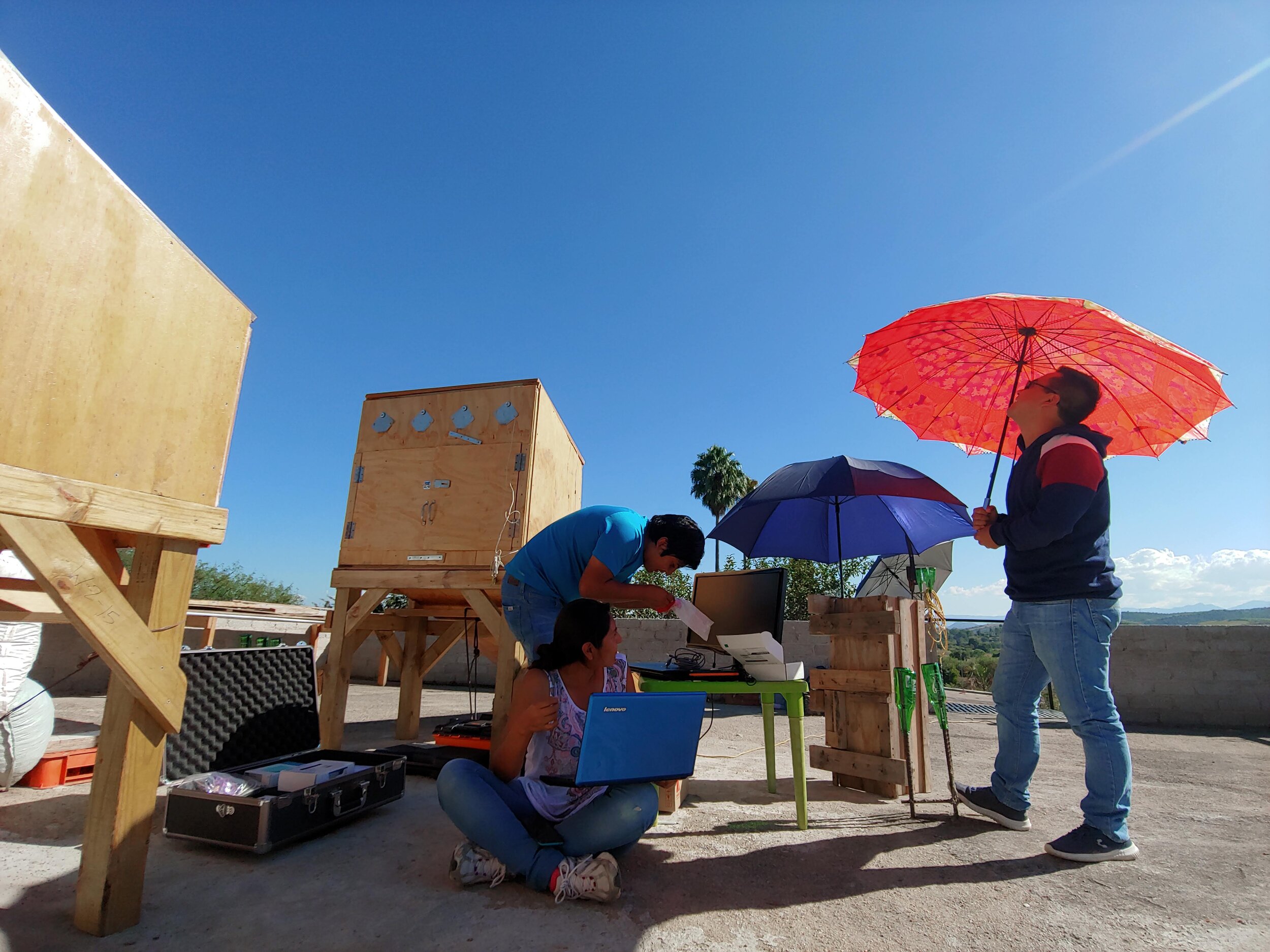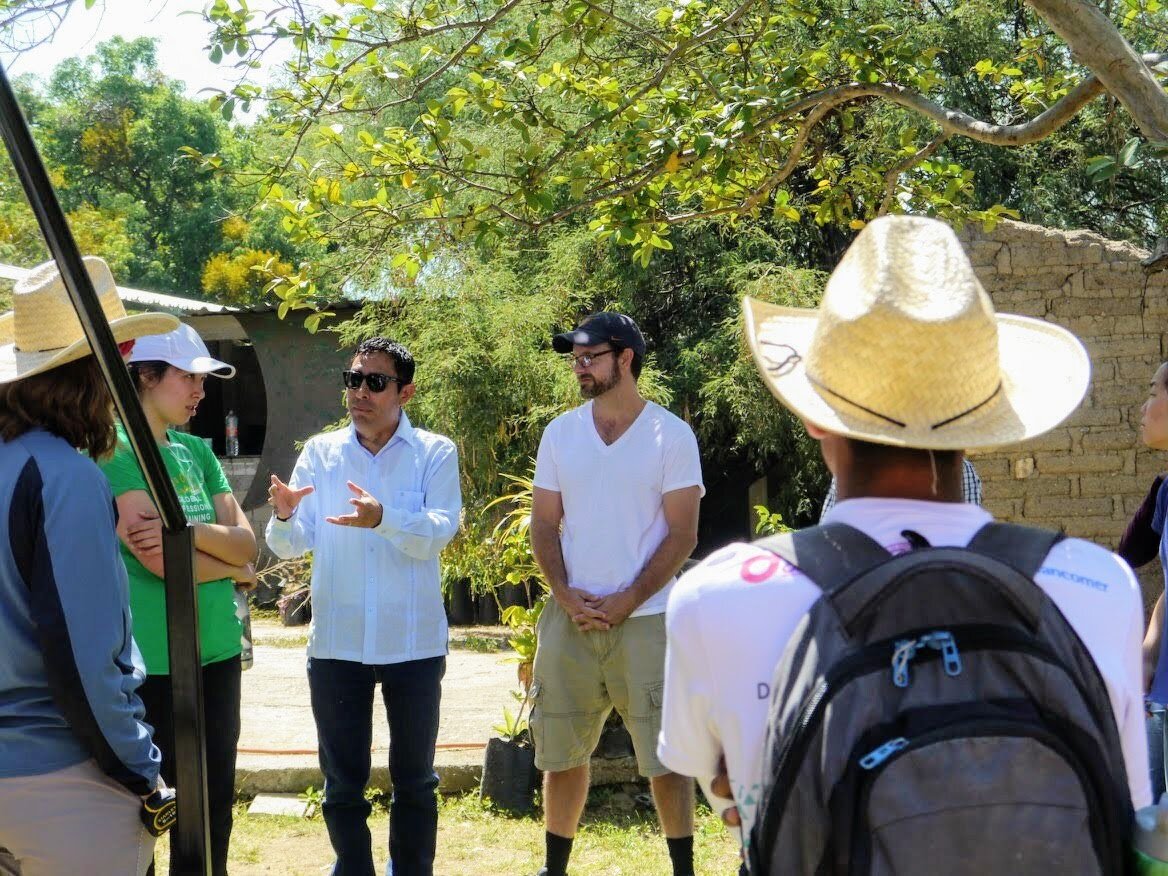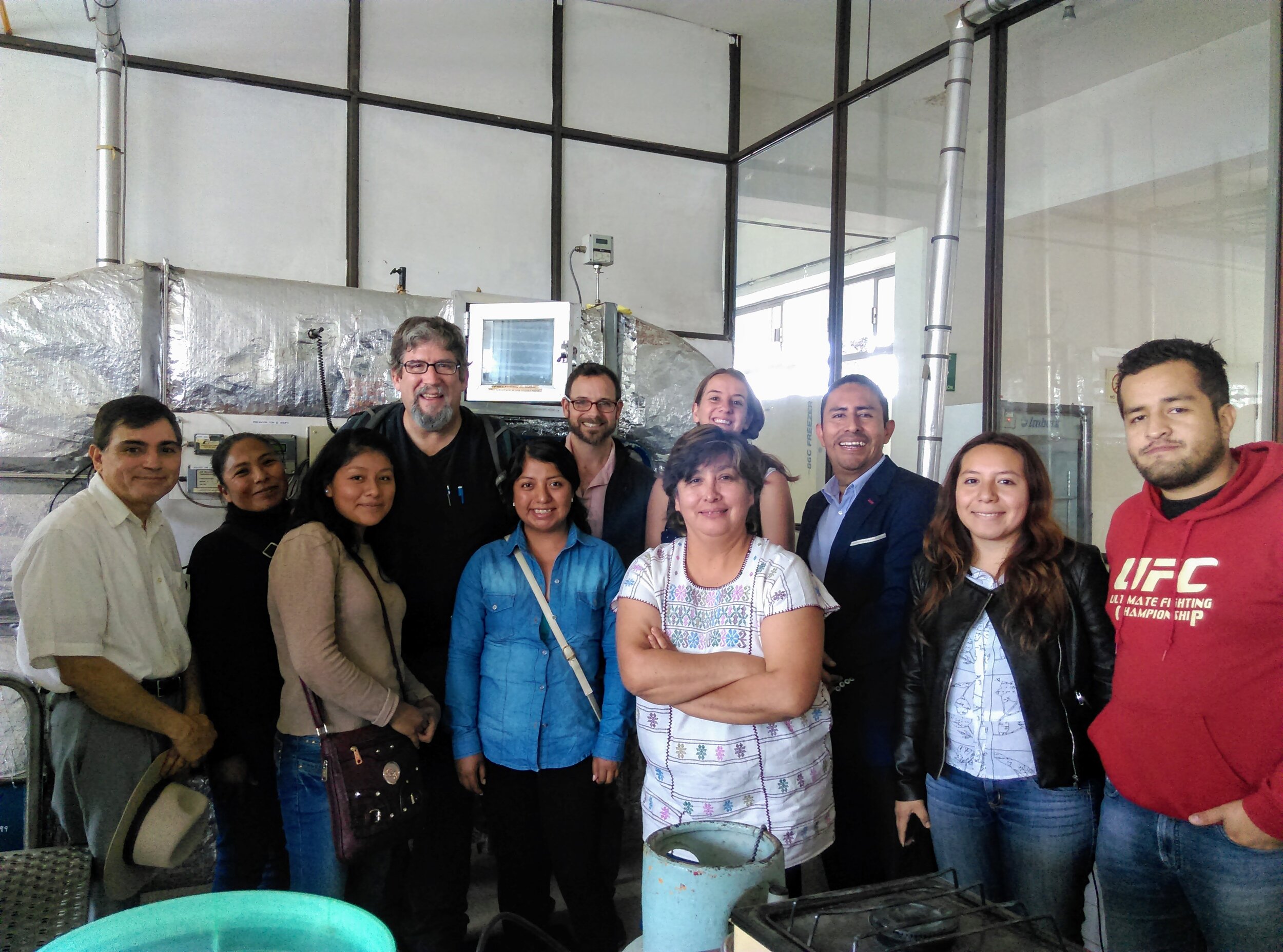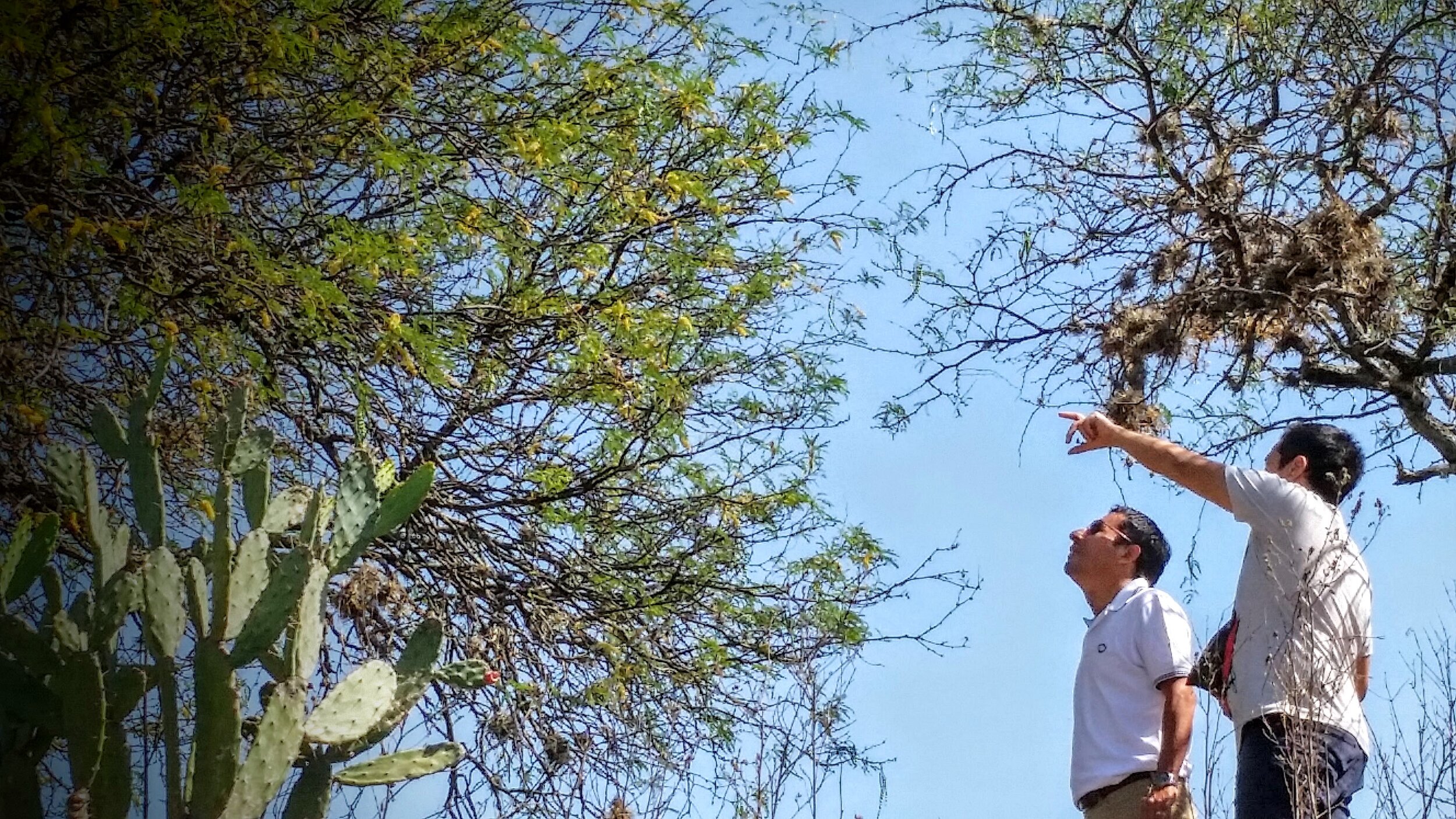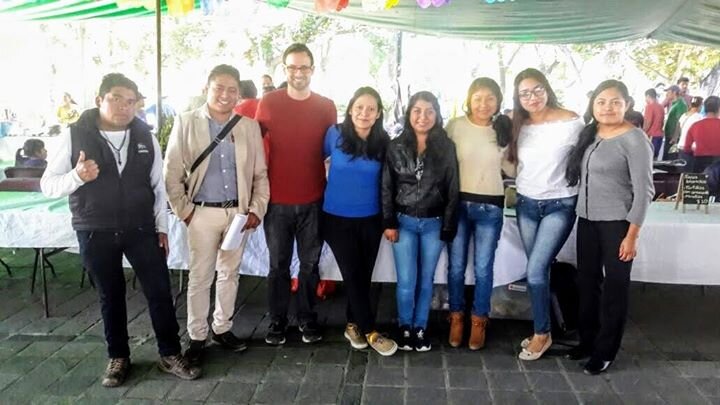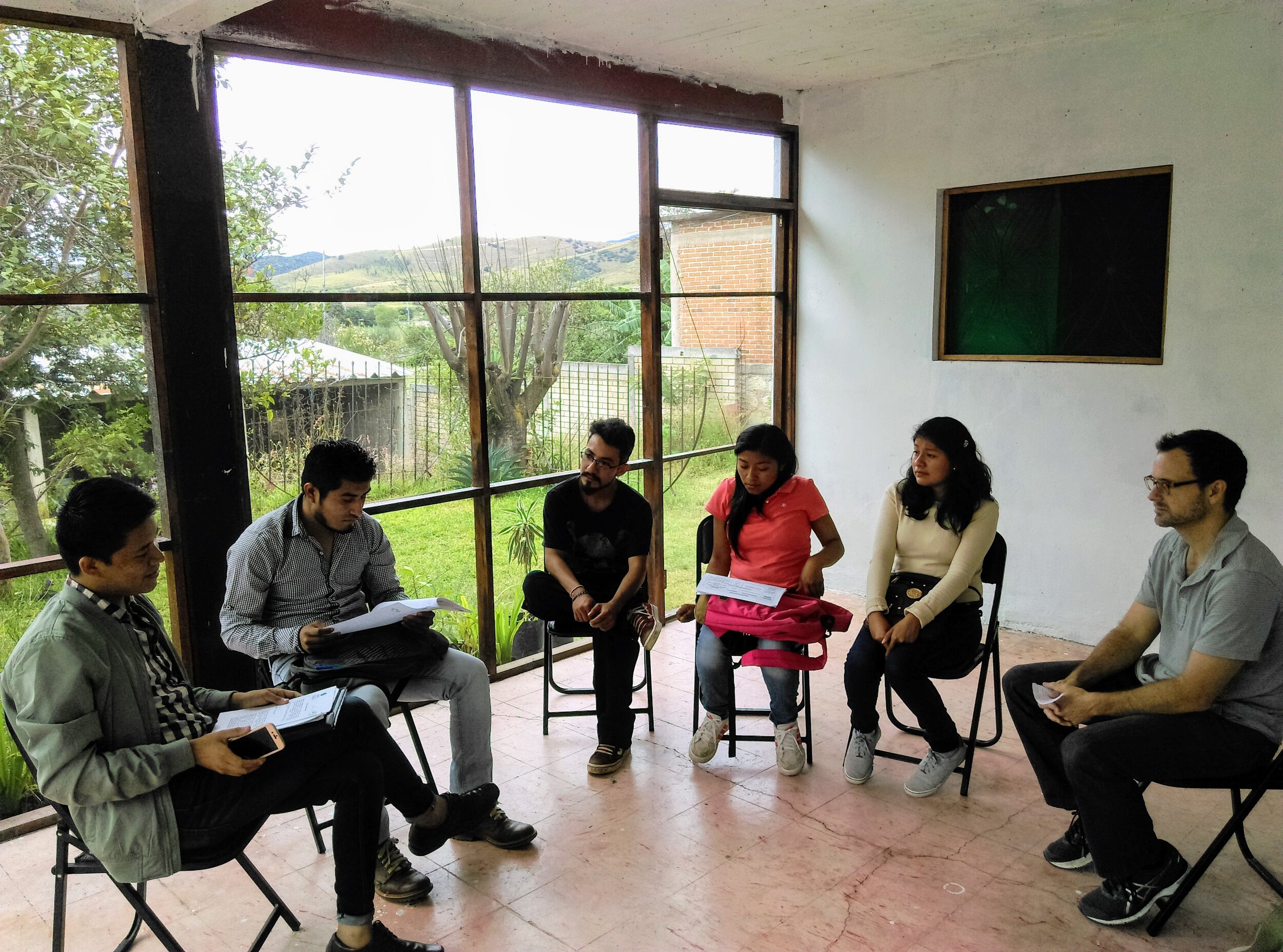The University Connections Program
The potential for unique partnerships to directly benefit rural communities represented a huge factor in creating Tejiendo Alianzas. Ambitious and noble goals require a pot of diverse knowledge and experience which frequently lay beyond the reach of one small group of people. However, we must be strategic in how we put together these teams. What expertise do we not have that would be most useful for the local groups we serve? Do we have a clear mechanism for translating that information into action on the ground, with a clear result that the community wants? How can we design the collaboration to guarantee greater participation, especially from our local business owners? We take the question of local ownership and engagement seriously because we want these collaborations to work over the long term.
Another priority of ours is to source locally as much as possible, celebrating the rich academic traditions and field experience of experts in Oaxaca. We have heard and seen frequently how much Oaxacans want to support their own communities. Accordingly we have every intention to create those opportunities.
Our program University Connections reflects our commitment to explore these questions and hopes, learning from prior experiences, and fine tuning partnerships over time. The program does not reflect one precise methodology, rather the tailoring of collaborations and activities to suit the needs of its participants using available resources.
Objective:
University Connections seeks to increase the economic and social impact in rural communities through specialized volunteering done in person or remotely.
Students can participate in:
Research on local resources, knowledge, culture and history, community challenges, opportunities for projects, information and data that can inform diverse aspects of local project development and success; designing strategies for applying these resources.
Creating and designing new or revised resources (physical or digital, processes or materials) for projects.
Assembling and carrying out diagnoses and evaluations of current projects, designing strategies for how to convert their findings into programming.
Collaborating with local groups to structure out new ideas for enterprises and projects.
Co-designing infrastructure improvements, consulting to improve, scale, and make more efficient production cycles.
Co-creating/editing digital resources for diverse uses, such as to promote the community businesses we work with and educate others about how these groups created and developed their enterprises, as well as their strategies for tackling the myriad of challenges they face.
Designing and running educational workshops and activities for residents in the communities where we work.
Fundraising for Tejiendo Alianzas and/or the community businesses we support.
Communications: social networks, publications to promote our non-profit and/or the community enterprises.
To date, Tejiendo Alianzas has worked with numerous groups of students from the Cockrell School of Engineering and the McCombs School of Business at the University of Texas in Austin, MIT's D-Lab, the National Polytechnic Institute CIIDIR Oaxaca, and the Technical University of the Oaxaca Central Valley (UTVCO). Summaries of these activities follow below.
University of Texas
Cockrell School of Engineering
PUC Program (Program with Underserved Communities)
2017-2018: While consulting the Xuchil group, students designed the first solar drying system using the data from research conducted by students at CIIDIR-Oaxaca regarding the proper heat, humidity, and air circulation parameters for properly drying mesquite pods. They also constructed a "pod shoot" for quickly dropping the dried pods to the milling area. PUC funds were also used to build a staircase to the roof, providing access from the ground level, and a safety border around the perimeter of the roof.
2018-2019: Students constructed a larger drying station to increase production capacity, in addition to a pulley system for moving large quantities of mesquite pods to the roof, and a CO2 based raw materials storage and preservation system. Additional PUC funds were used to construct a staircase from the street down to the factory.
2019-2020: Students researched and designed the creation of a bean-rinsing/drying system. However, Covid-19 did not allow them to arrive for its installation.
2020-2021: Students improved the bean-rinsing/drying design. Again, unfortunately, their travel plans were disrupted by the pandemic.
FIG Program (First-Year Interest Groups)
In 2020, we hosted a group of electrical engineers from the the University of Texas at Austin Cockrell School of Engineering for one week. They explored how local projects and micro enterprises in Santiago Suchilquitongo create employment with available resources while tackling challenges related to ecological sustainability and nutrition. We combined social impact tourism, project needs consulting, and STEM skills workshops with local elementary school kids.
McCombs School of Business
Our work with the University of Texas McCombs School of Business has frequently anchored in market related research for determining how the products of our community businesses can and should reach US consumers.
MBA+ Program
2018 Go-to-market strategy for entering the Texas market, focusing on footwear
2021 Go-to-market strategy for entering the Texas market, focusing on home accessories
2019 Go-to-market strategy for entering the Texas market, focusing on mesquite flour
2020 Go-to-market strategy for entering the Texas market, focusing on mesquite based power bars
Mezcal Sinai:
2017 Go-to-market strategy for entering the Texas market, focusing on mezcal
MAP Program
2019: We hosted 11 MBA students in Oaxaca during one week, in which they learned about the origins of local community businesses and the cultural influences that shape them, exploring their challenges and potential solutions.
2020: For 50 MBA students, we hosted a virtual tour and videoconference about our projects and communities in Oaxaca, sending kits of products from local businesses we support.
Massachusetts Institute of Technology (MIT)
D-Lab: Co-creation of technological solutions to support a local business
2020: A week with Massachusetts Institute of Technology (MIT)'s D-Lab
Our work with engineering students and faculty from MIT allowed for exploring a local collection and recycling business’ entire production cycle, identifying areas that the entrepreneur saw as the most urgent to improve and that the team felt feasible to accomplish given the days available. With the participation of a local self-taught engineer, a Suchilquitongo resident extremely talented in soldering and mechanical designs, the participants increased the carrying capacity of the materials collection cart. The second challenge was to simplify the compacting and storage of collected materials, with the hope of reducing the physical strain on the family's knees and backs. The impressive result included a soldered metal table and seesaw crushing mechanism with minimal force required to operate. We'll be observing how well the prototypes function, considering future modifications, as well as new projects identified during the initial project idea mapping.
Student blog on the experience.
National Polytechnic Institute CIIDIR Oaxaca
Mesquite based research
Since 2017, we have partnered with Dr. Sadoth Sandoval Torres, professor at the National Polytechnic Institute CIIDIR Oaxaca, to create applicable knowledge through intensive research on mesquite pods, their composition and reaction to various processes of drying and milling. The data uncovered informed the development of solar drying systems prototyped by engineering students at the University of Texas and later built in Oaxaca with the Xuchil team. The ongoing collaboration involves representatives from two international universities, our Mexican non-profit, and a local Oaxacan community micro-enterprise and has led to continual improvements in the production capacity, thereby lowering production costs of mesquite based products, and increasing profit margins as a result.
The resulting publication:
Sandoval Torres, S., Lopez Cravioto, D., Rodríguez Ramírez, J., Méndez Lagunas, L.L., Barriada Bernal, L.G. and González, L.V.A. (2020), "Drying technology of mesquite pods (Prosopis laevigata) and microstructural insights", British Food Journal, Vol. 122 No. 9, pp. 2953-2963. https://doi.org/10.1108/BFJ-07-2019-0487
Technical University of the Oaxaca Central Valley (UTVCO)
Development of a Business Plan for Xuchil Products
In 2018, a group of undergraduate students studying business administration at UTVCO in Oaxaca began working with Tejiendo Alianzas and Xuchil Products to create a business plan for increasing sales. After continual meetings with all groups, the students collected information that allowed for the community business to fine-tune their costs of production and begin projecting costs and sales goals.



